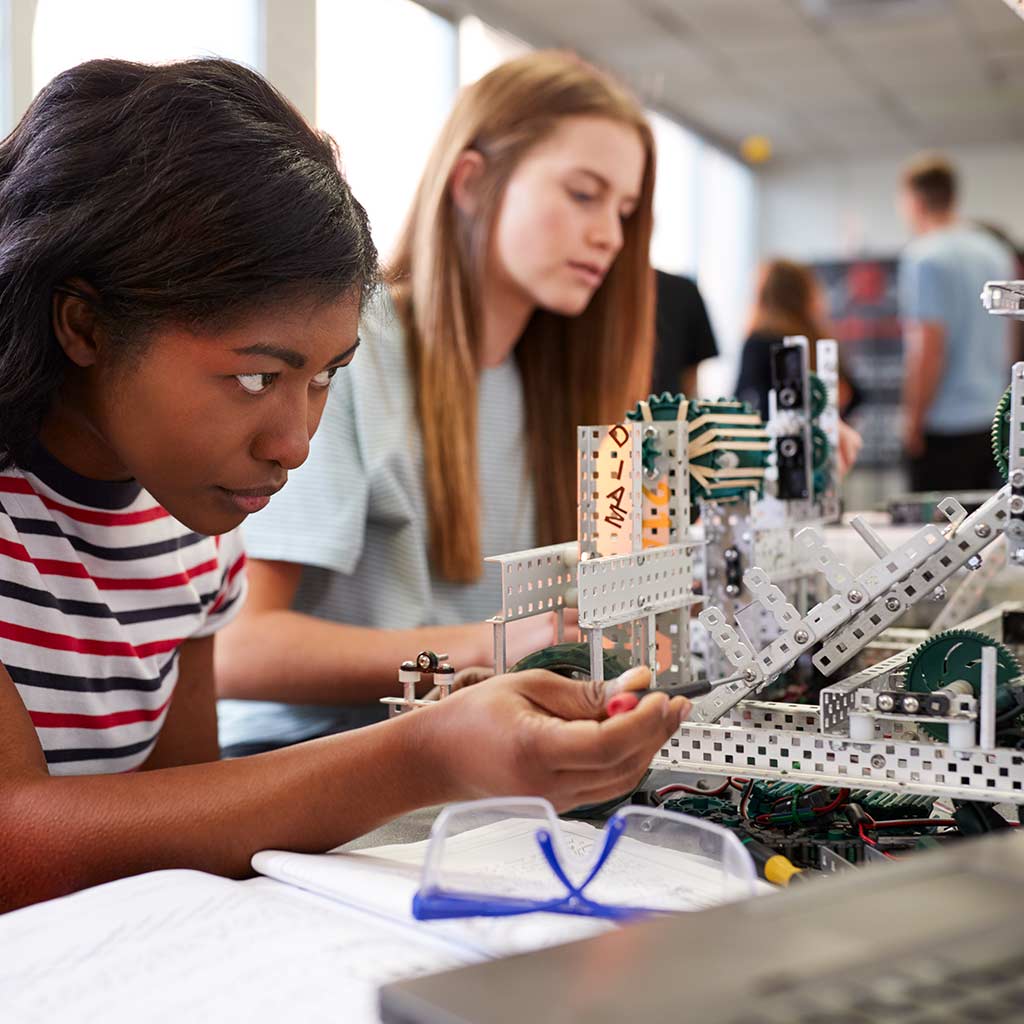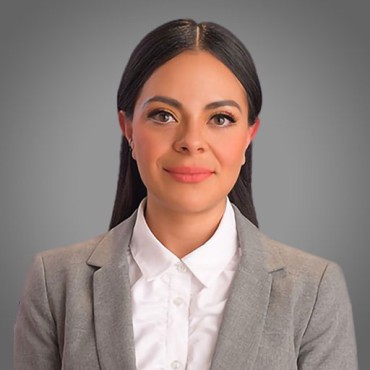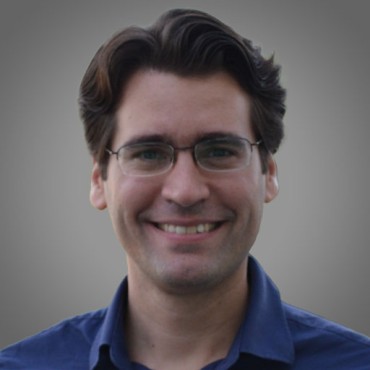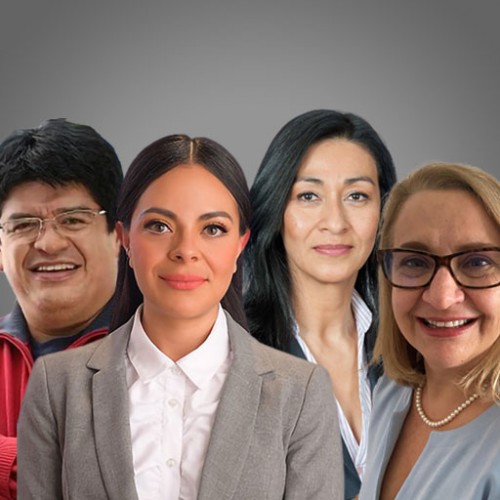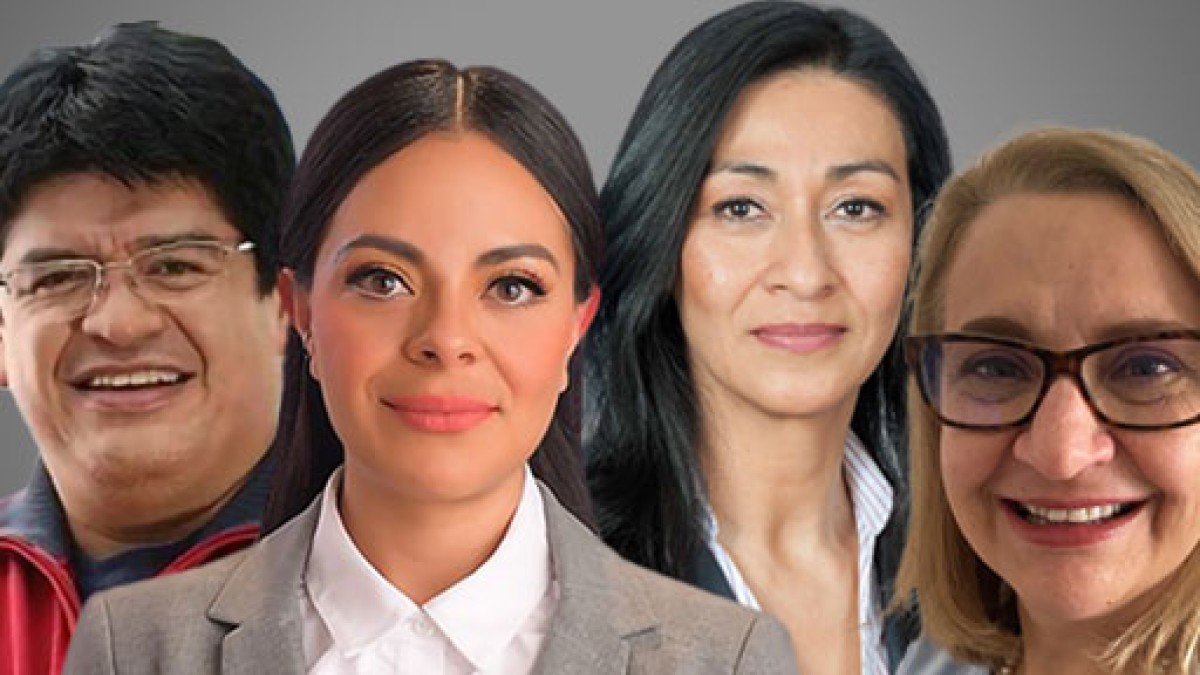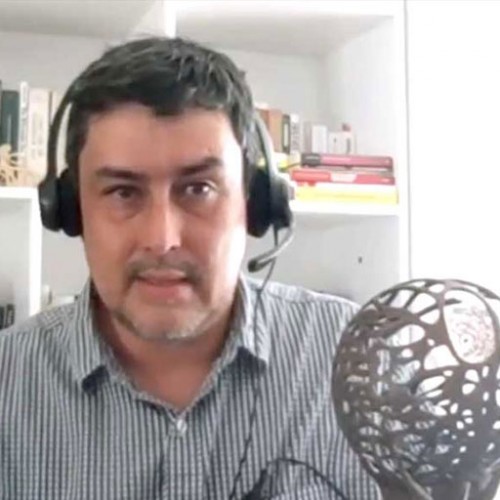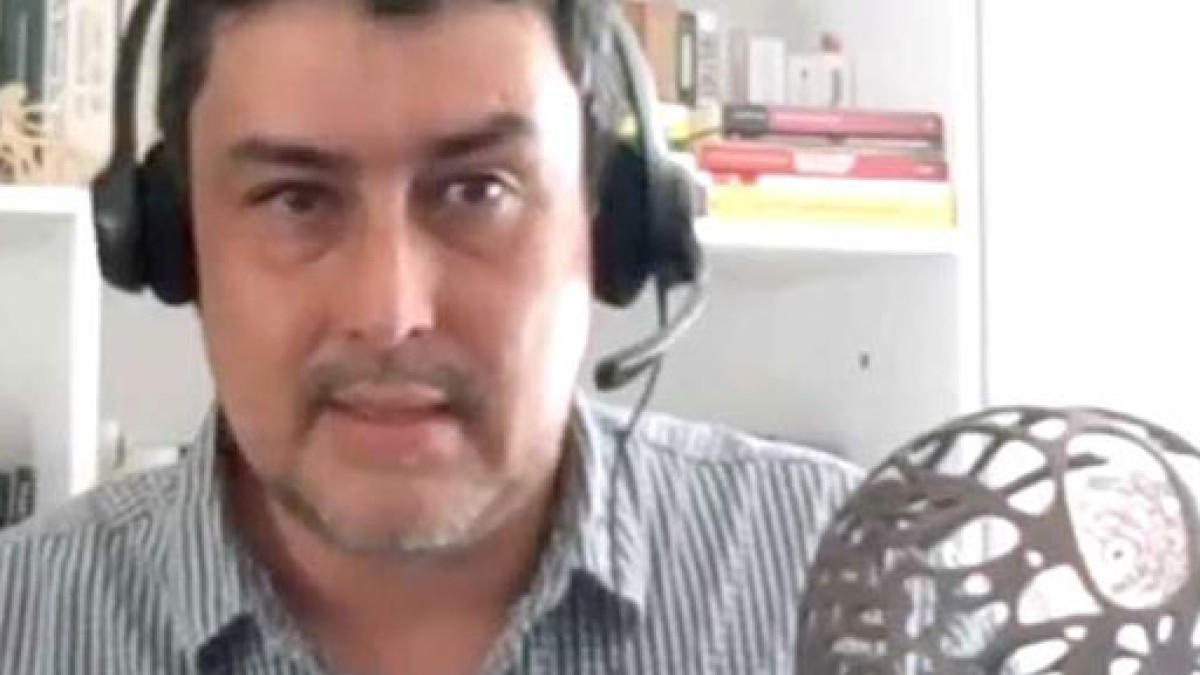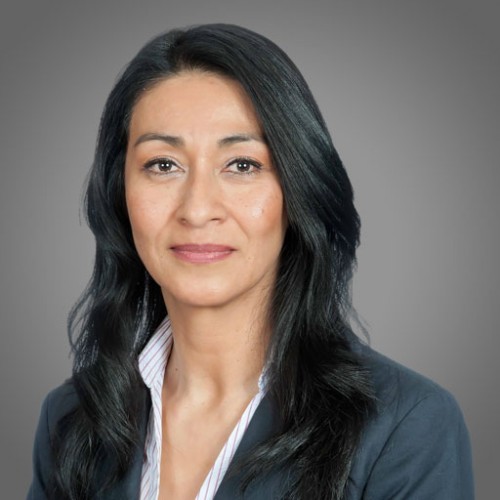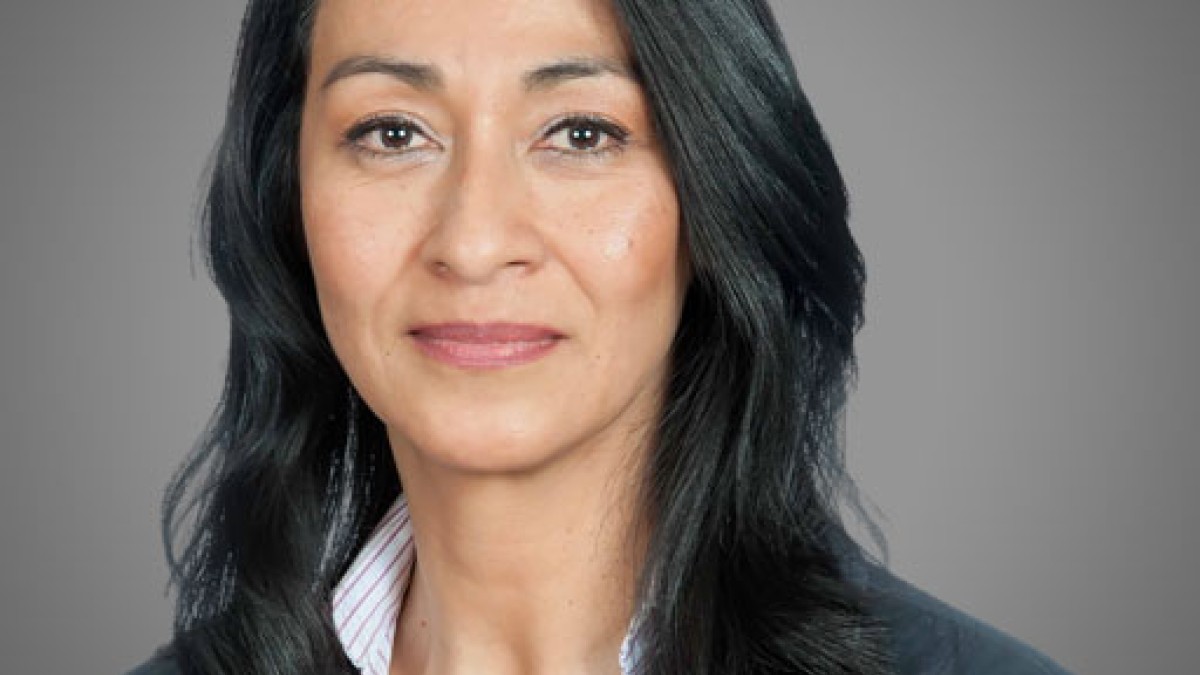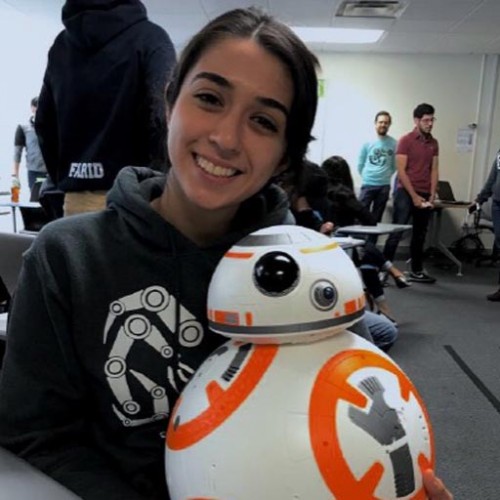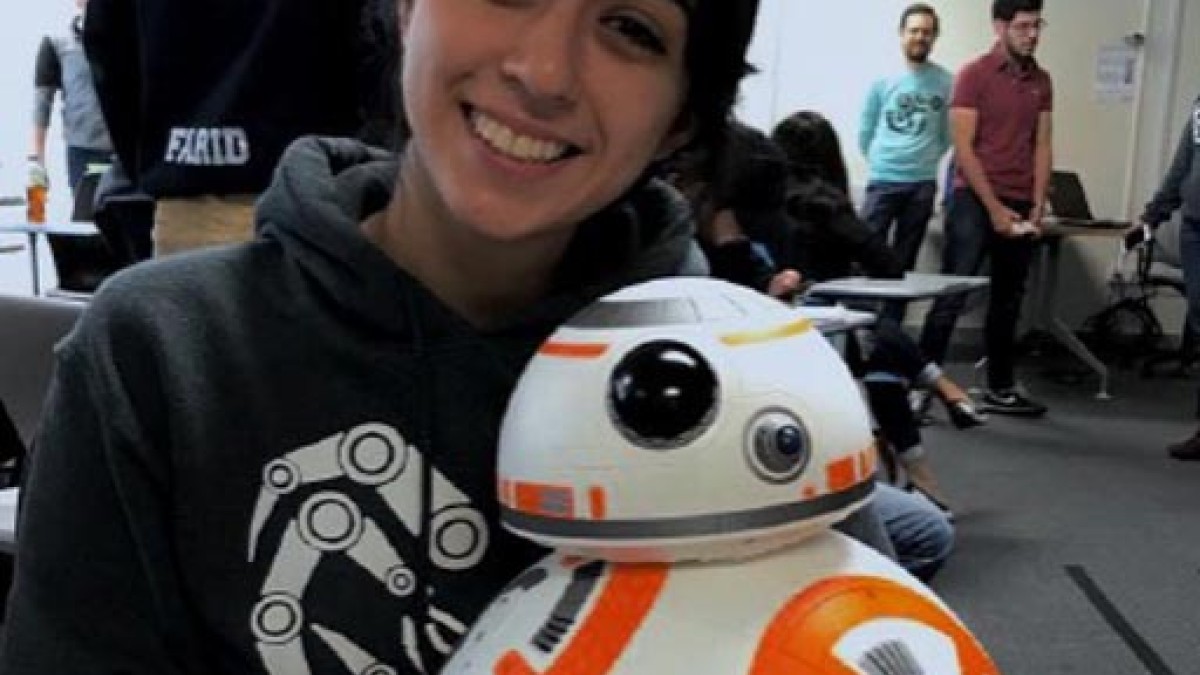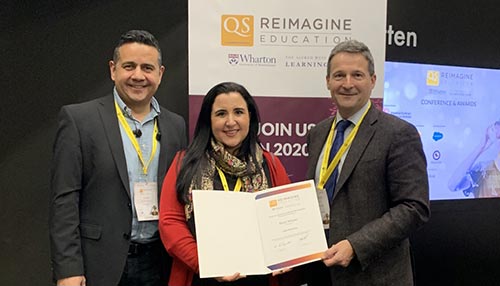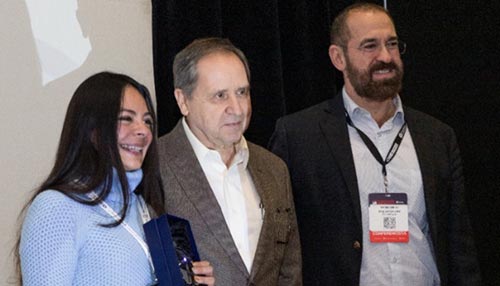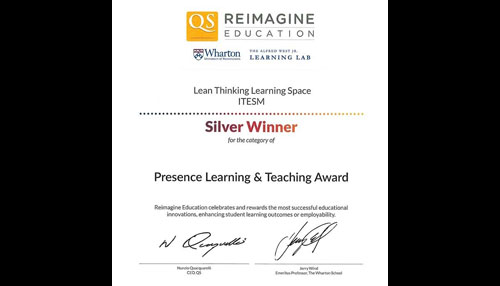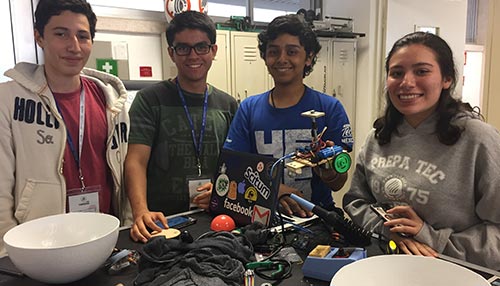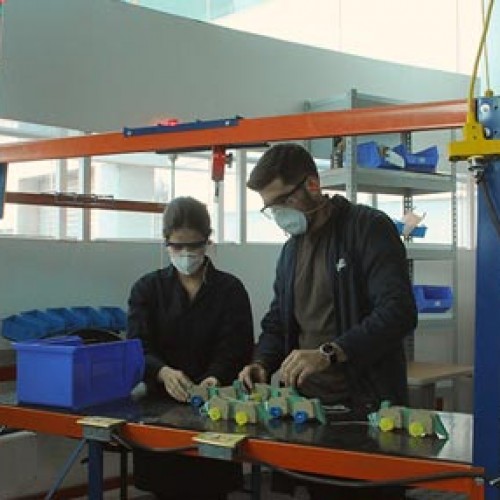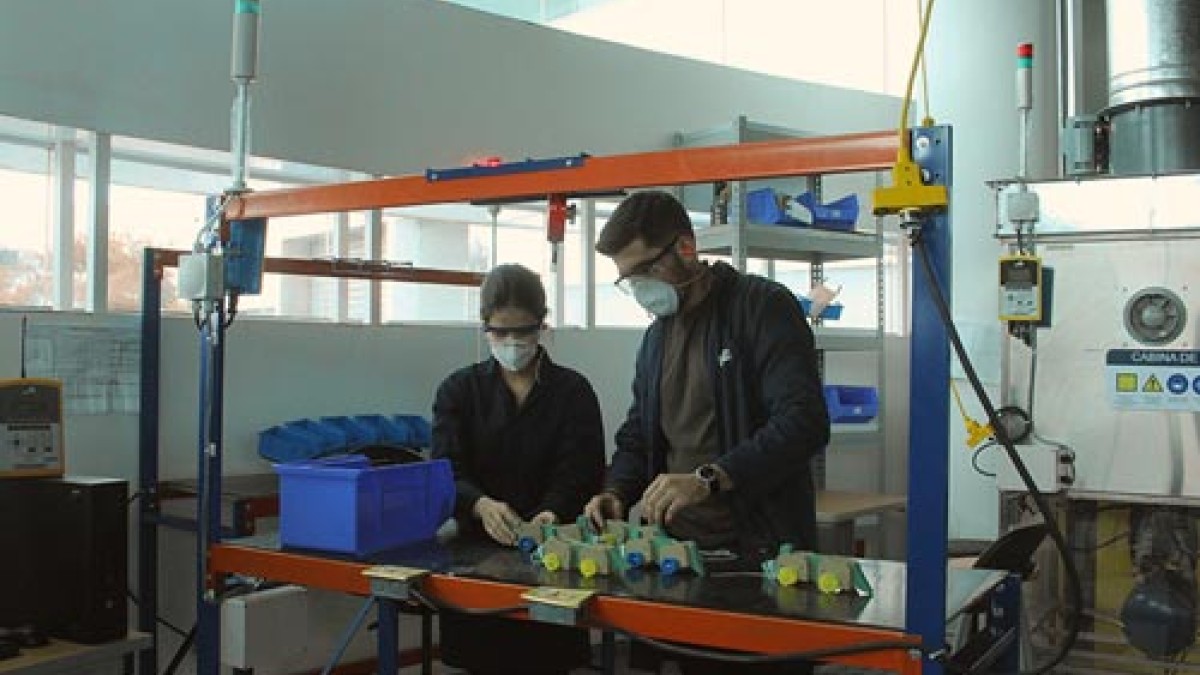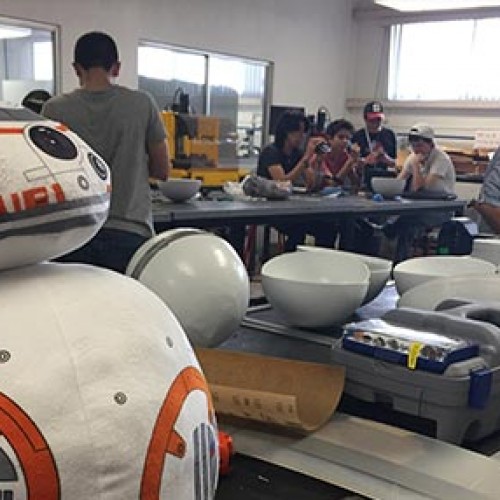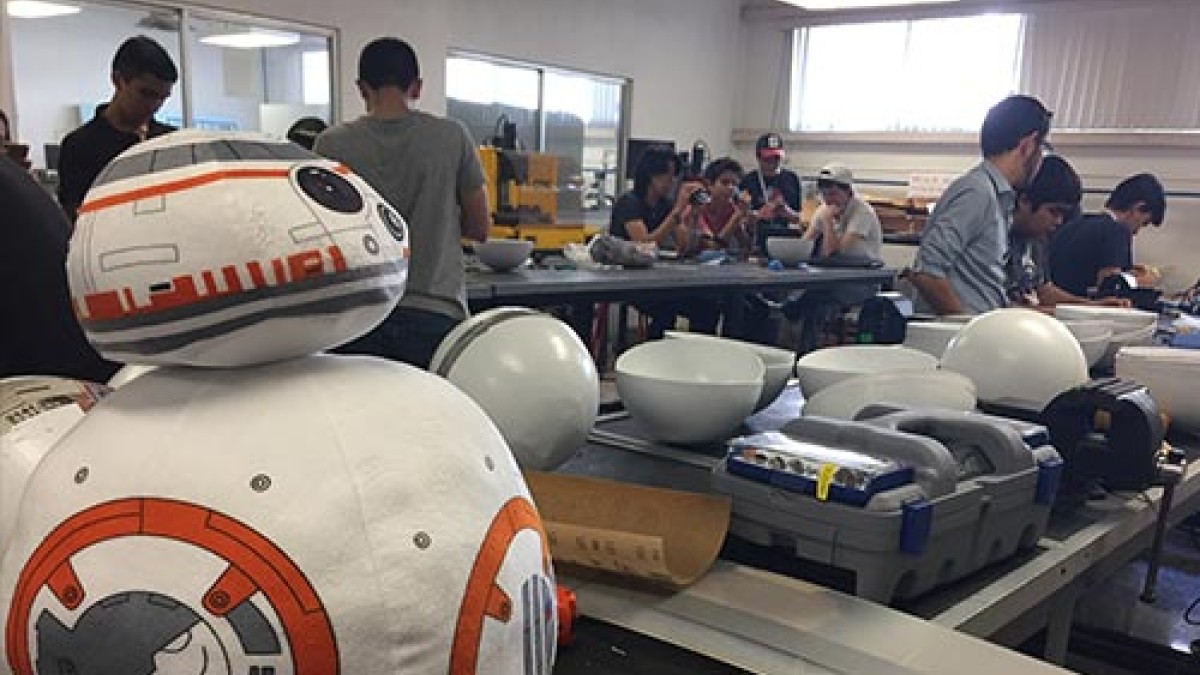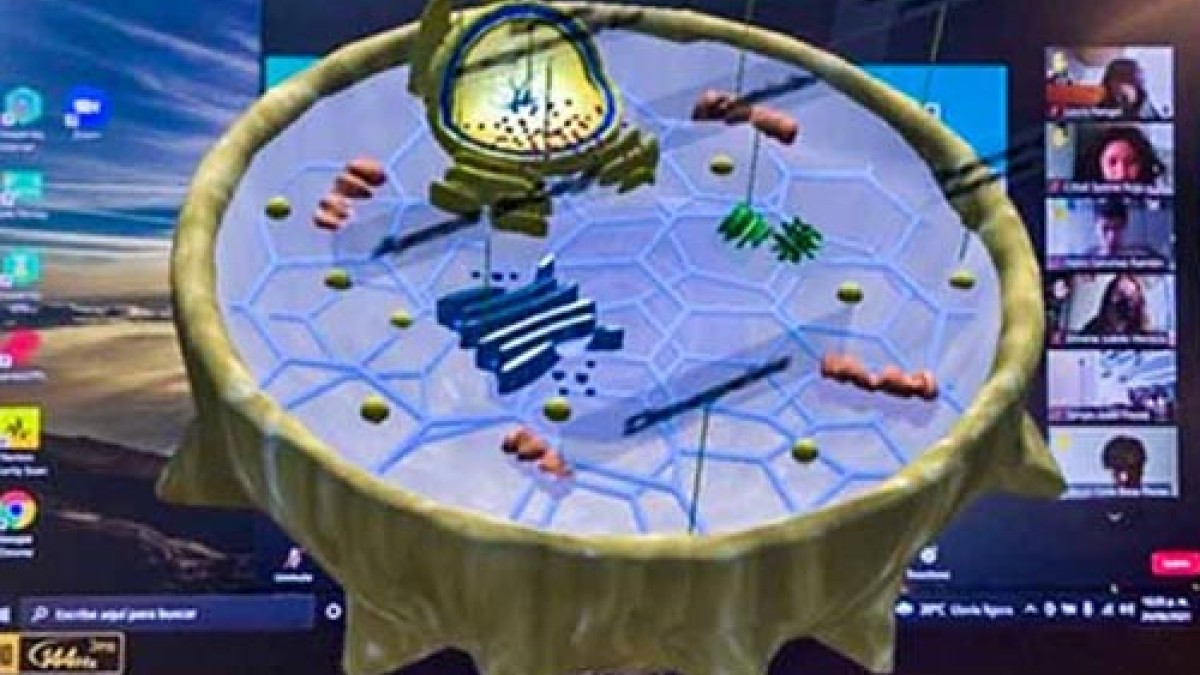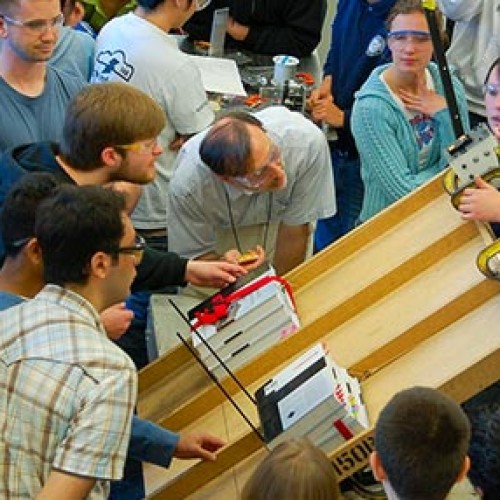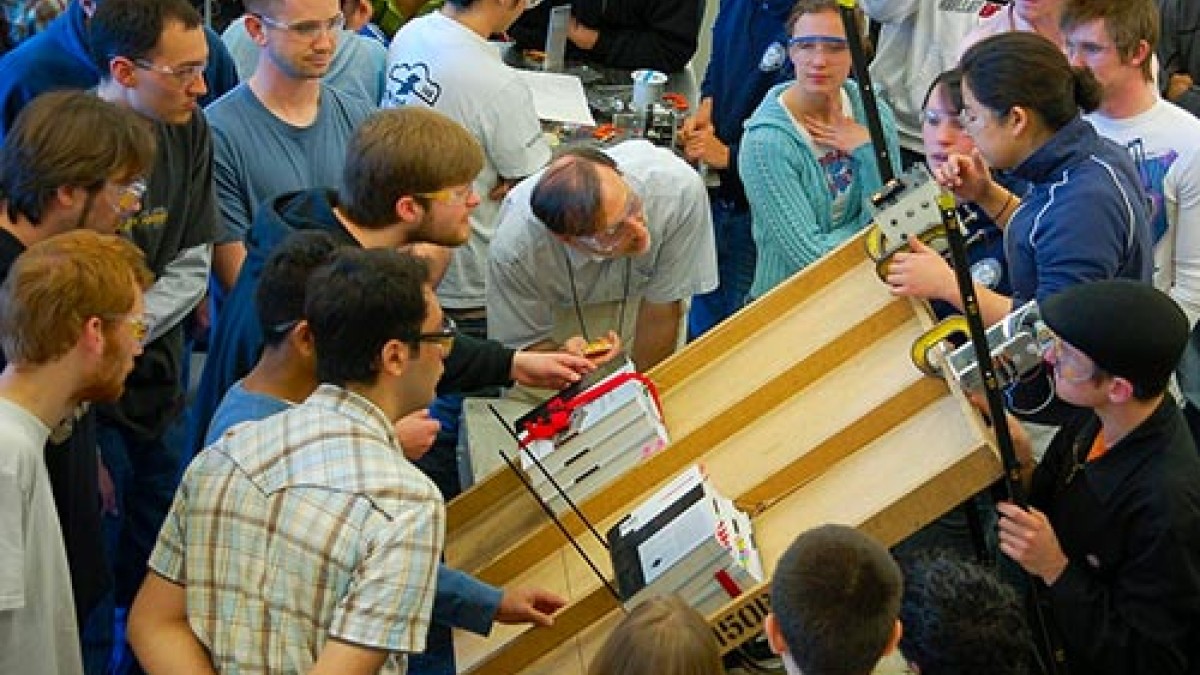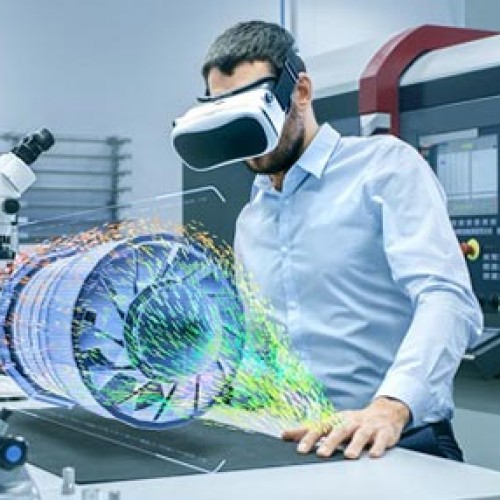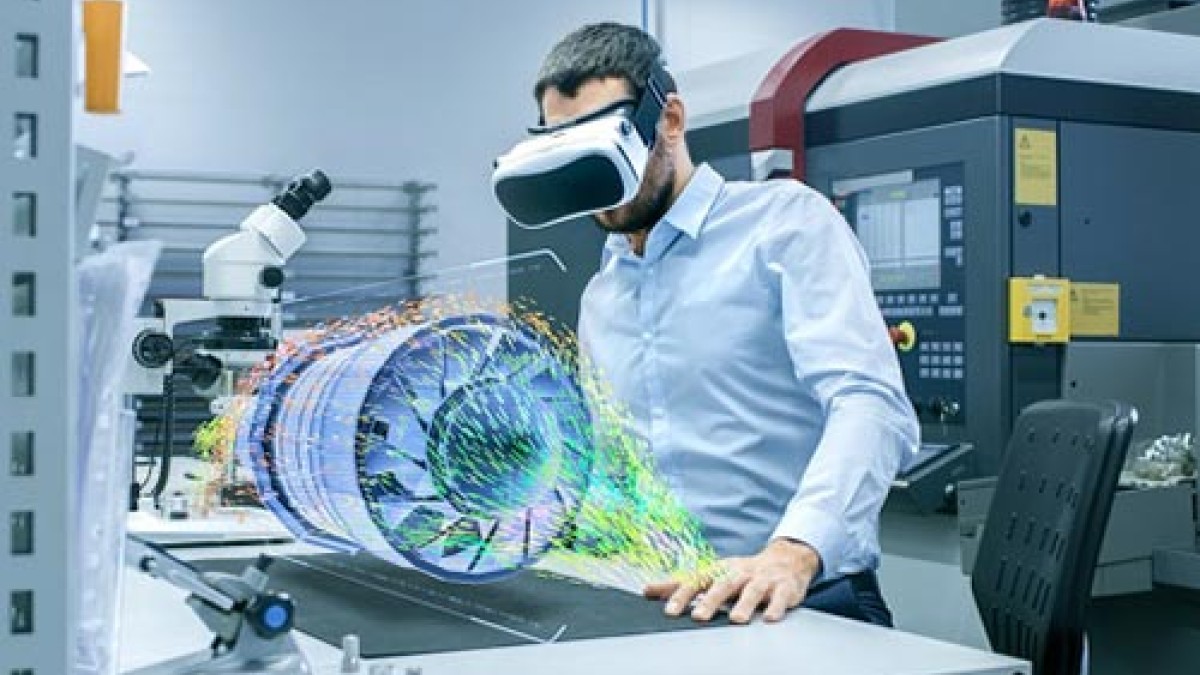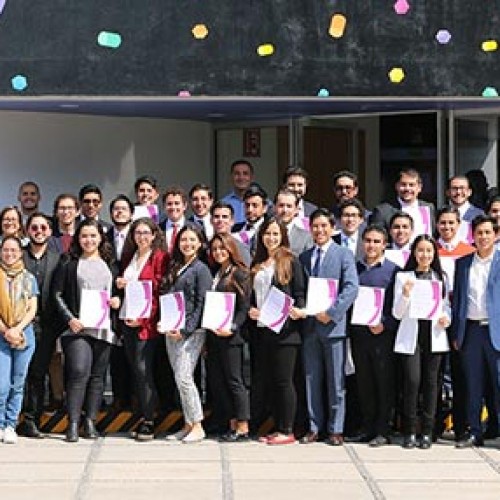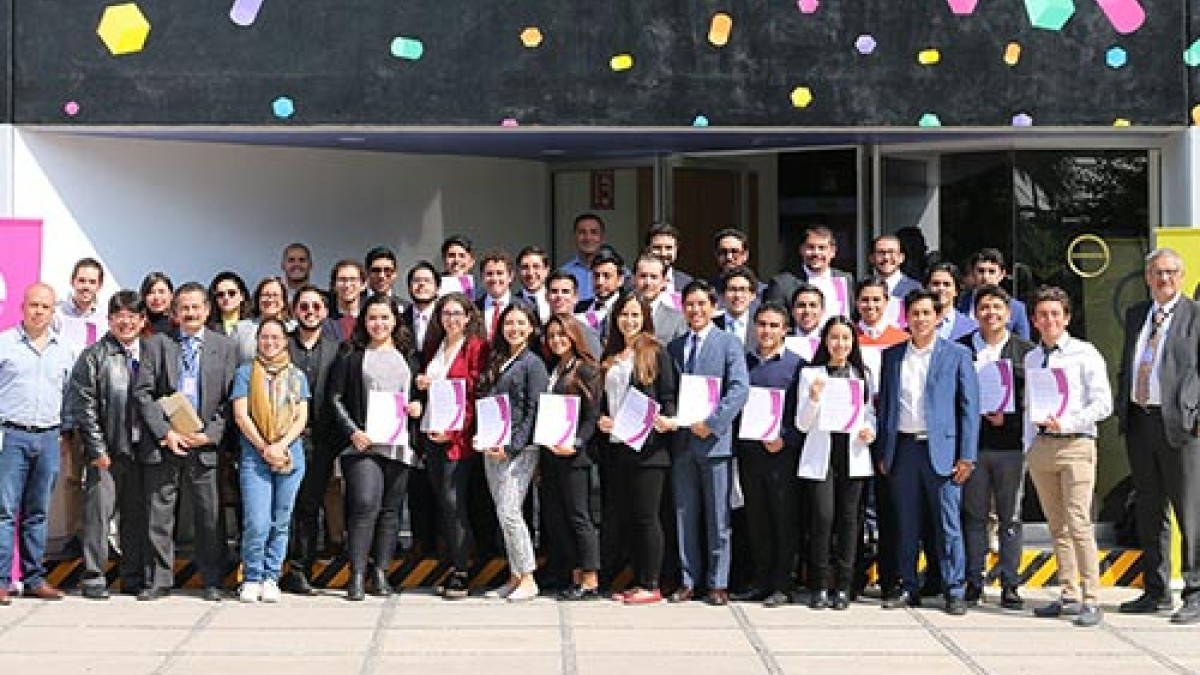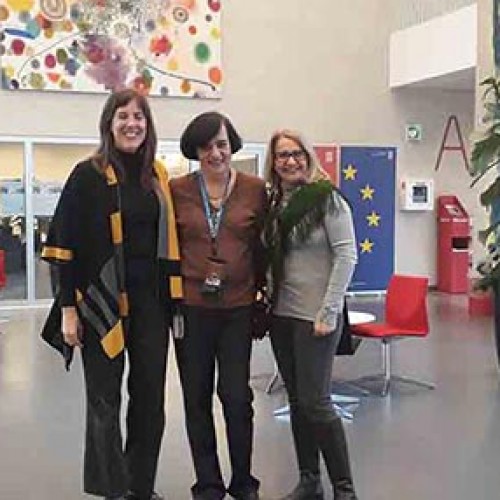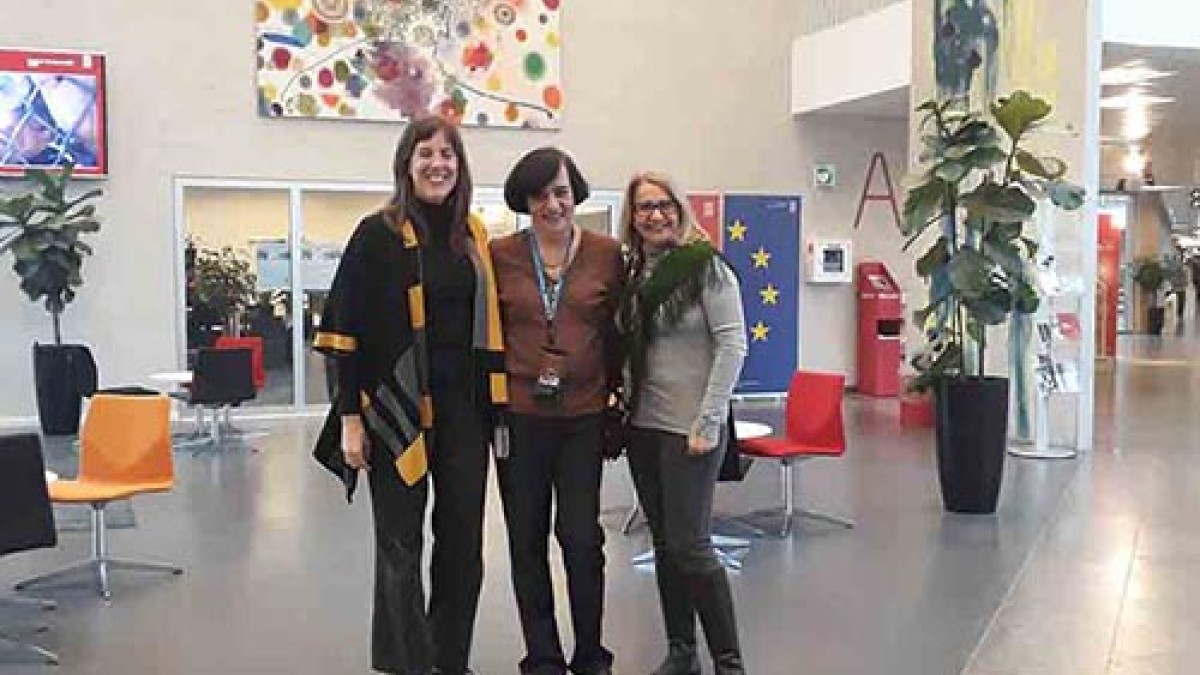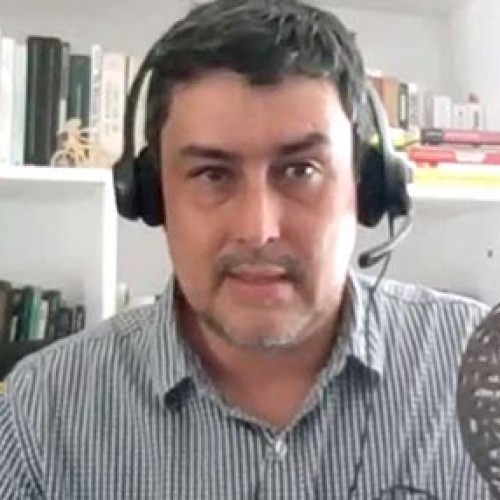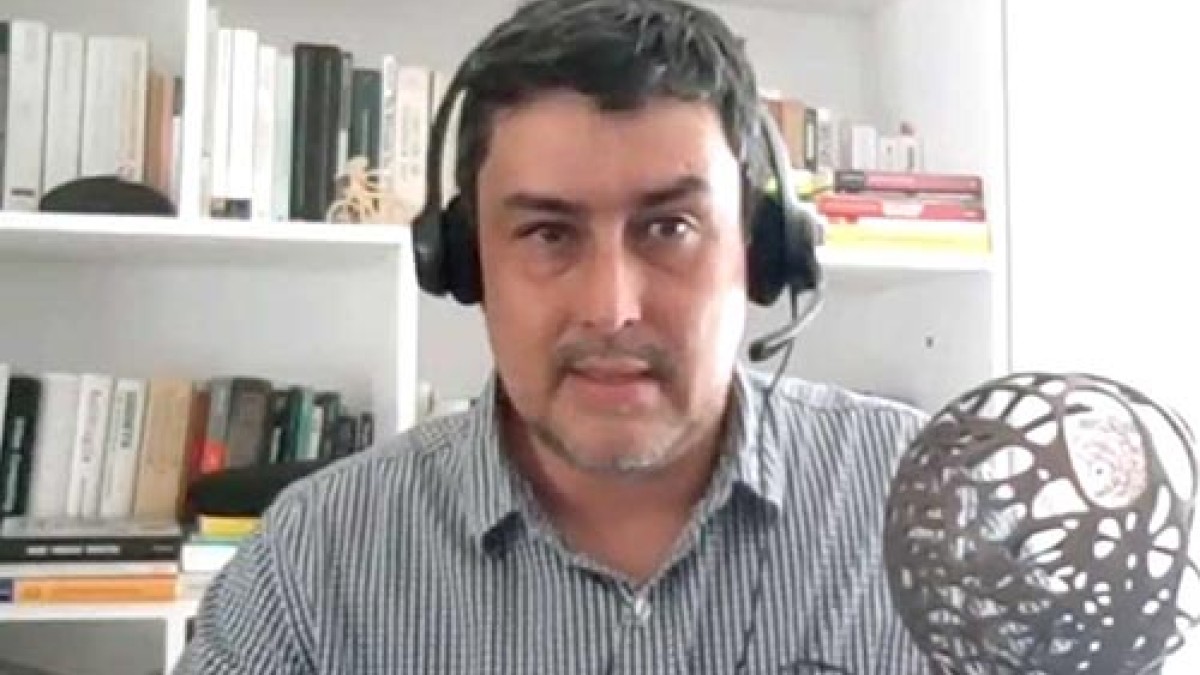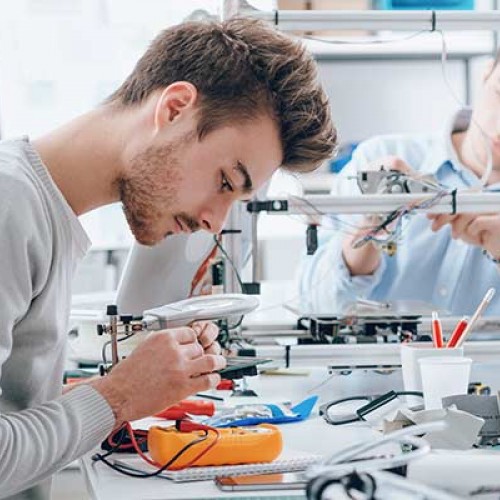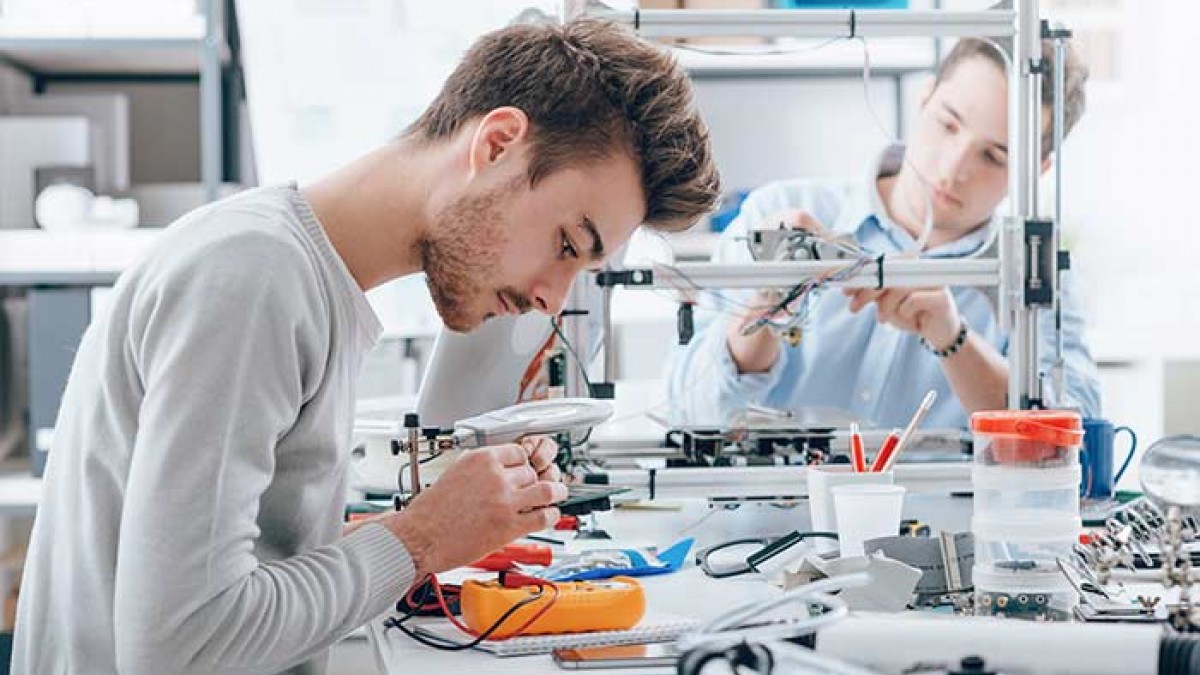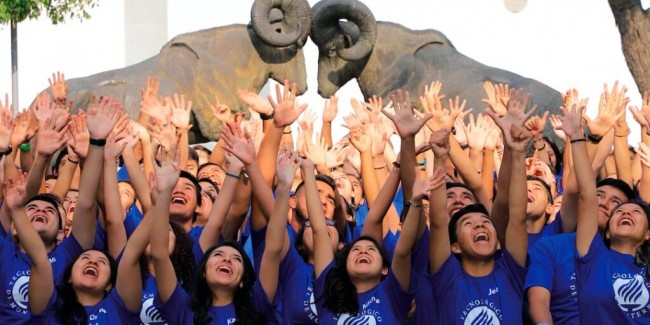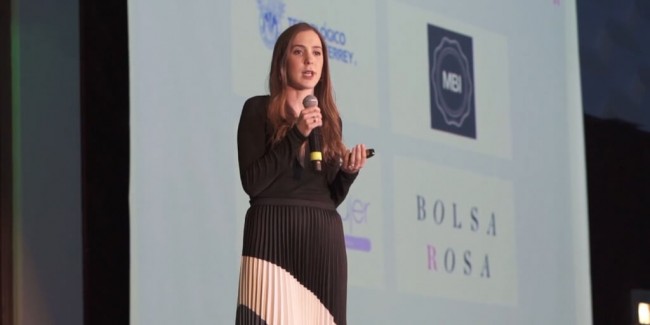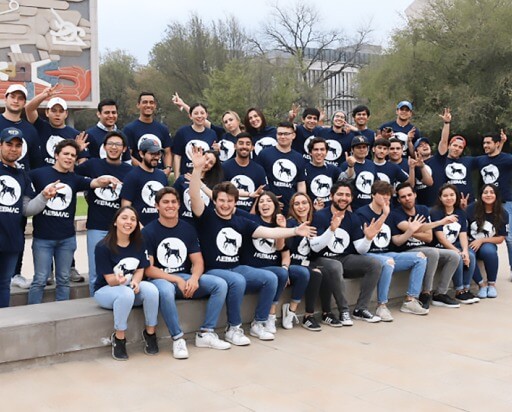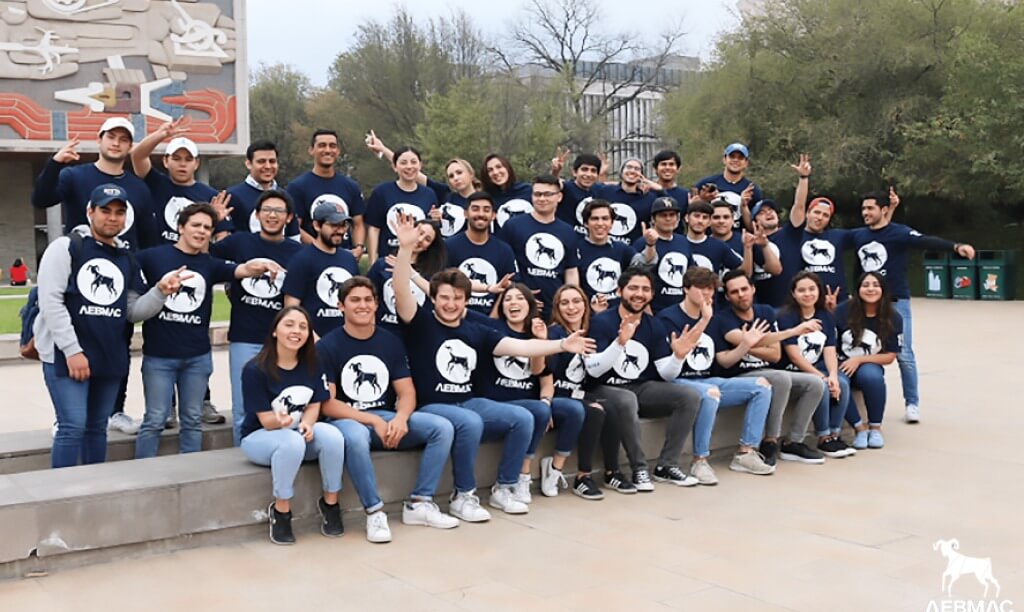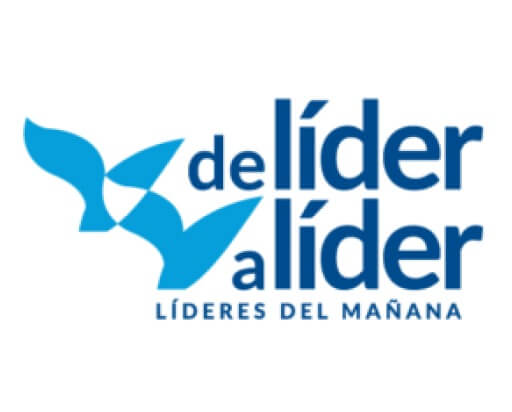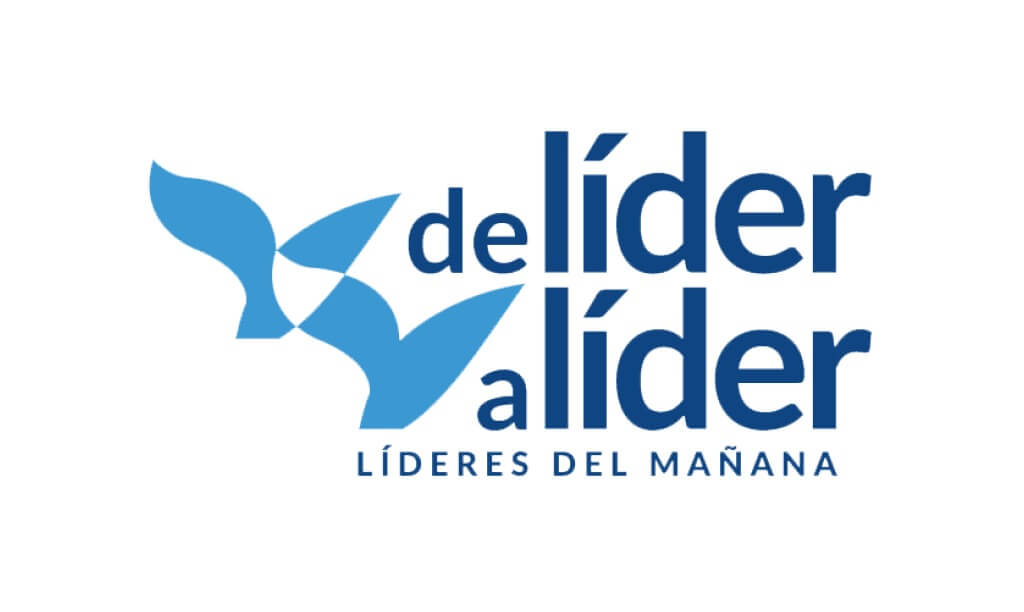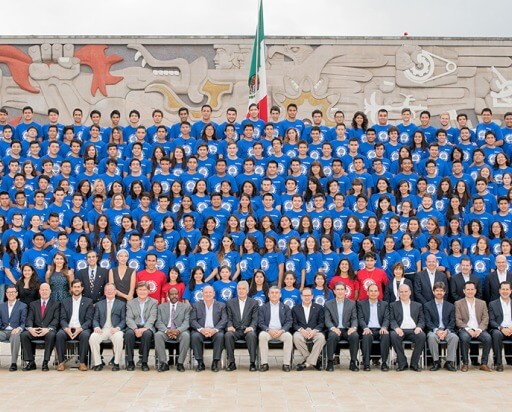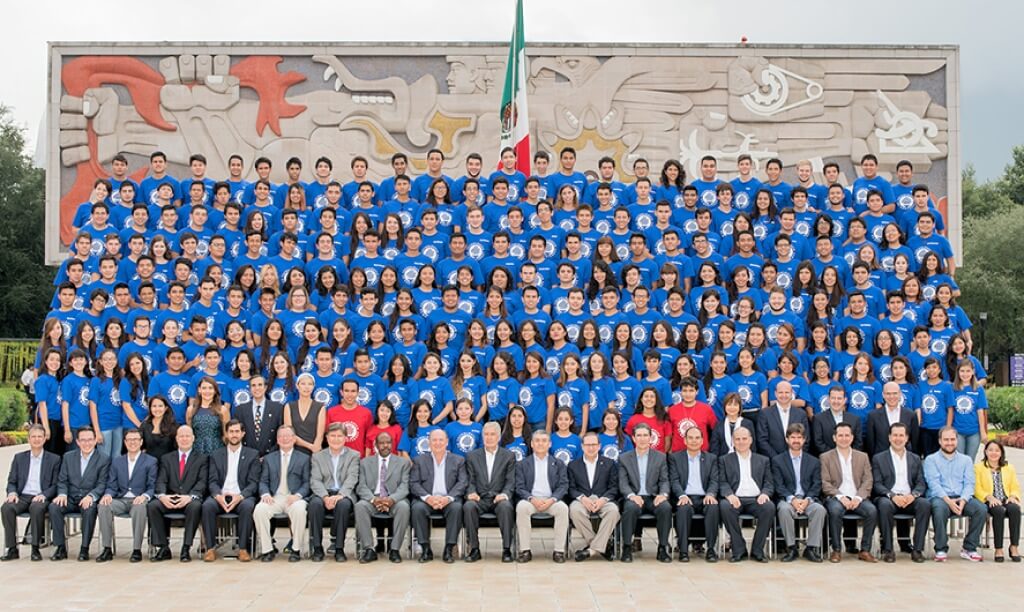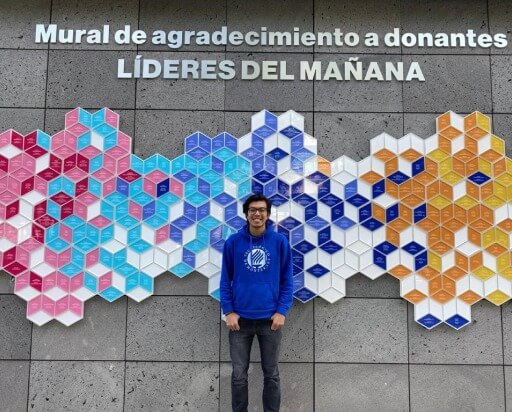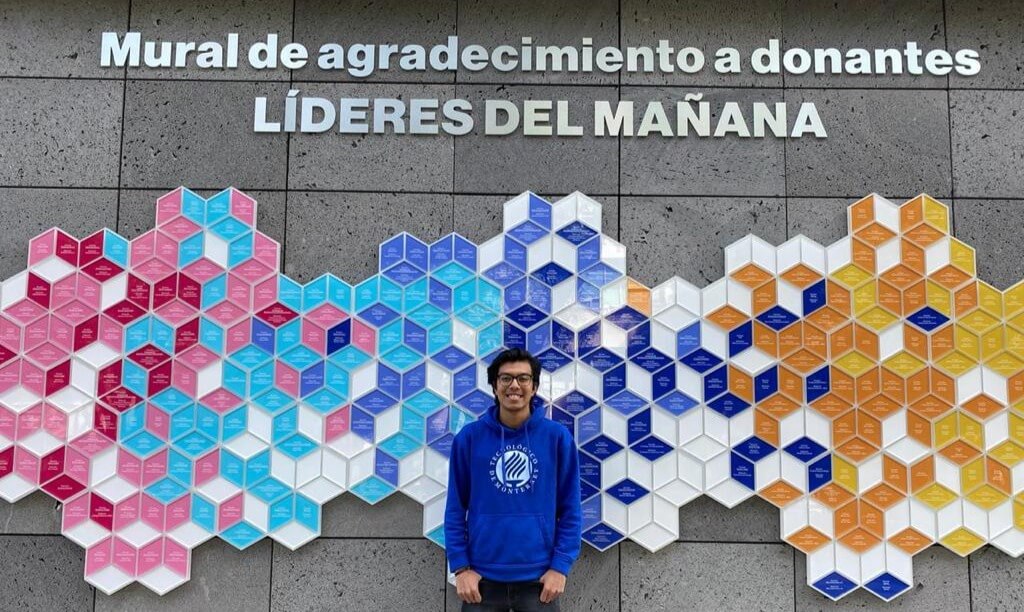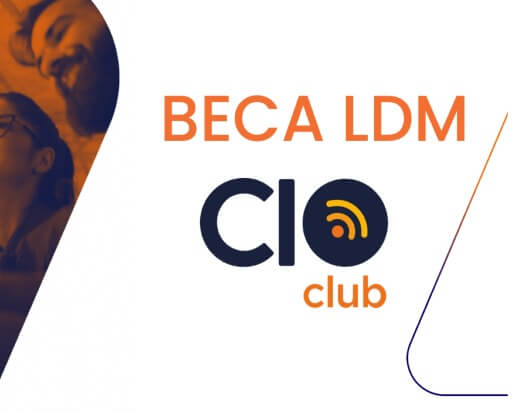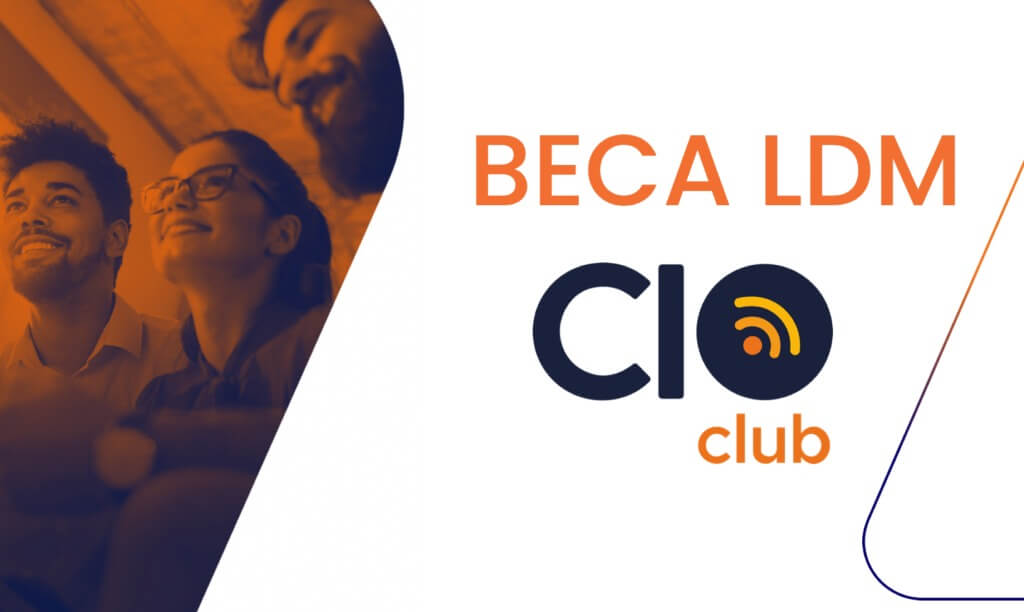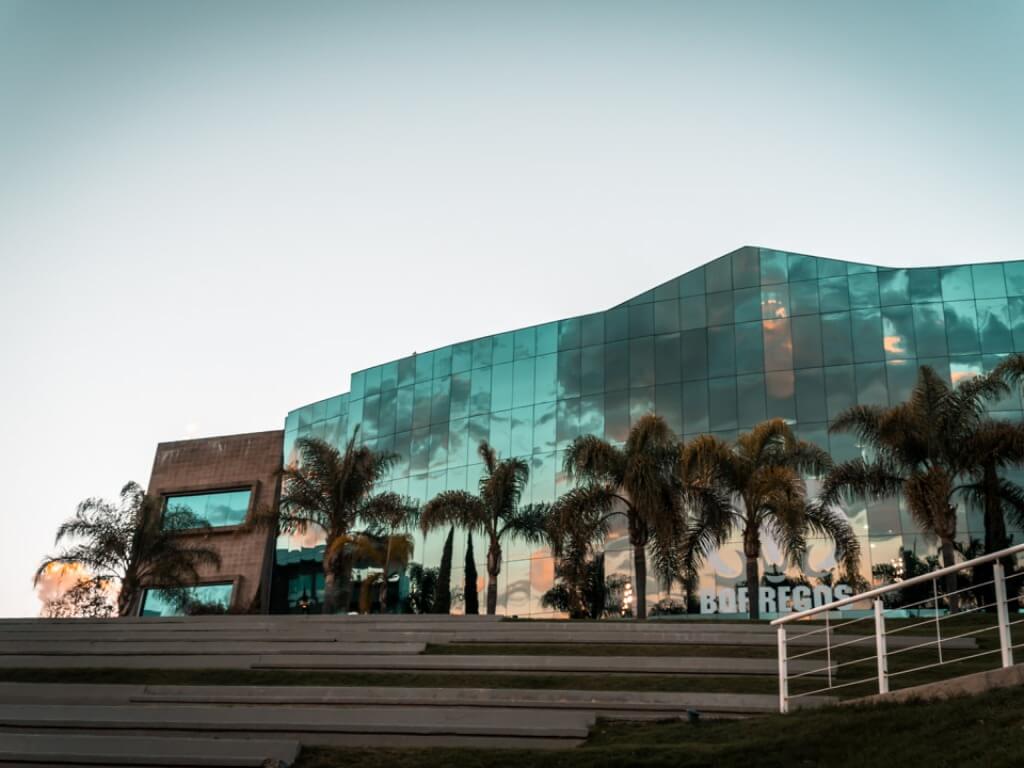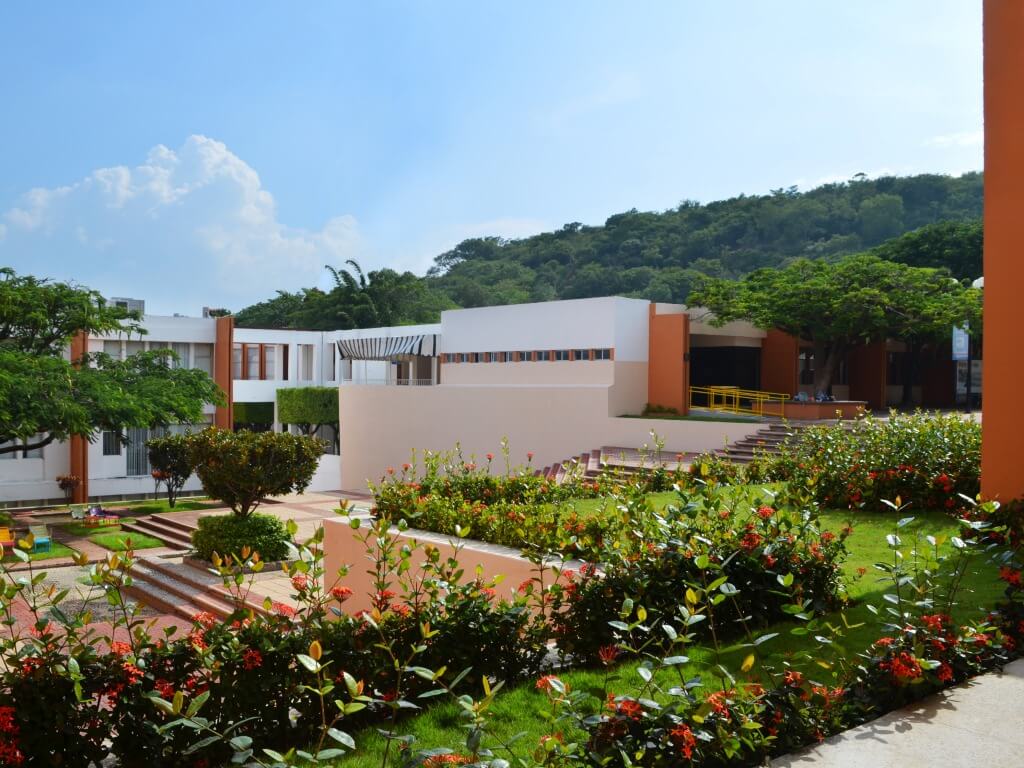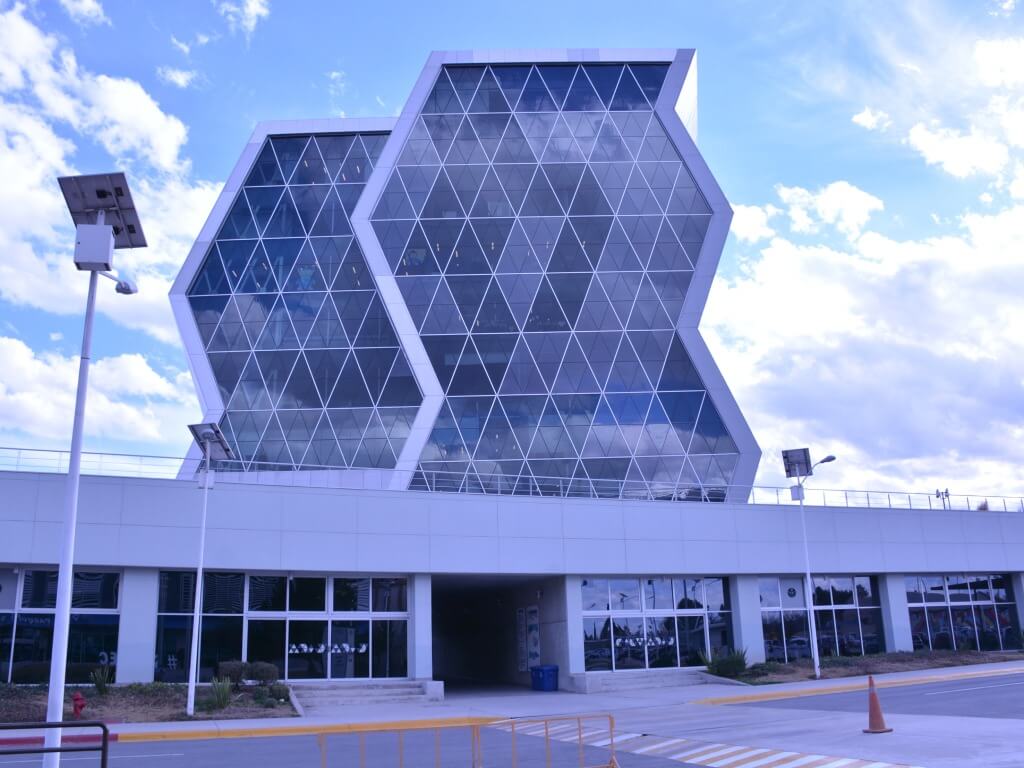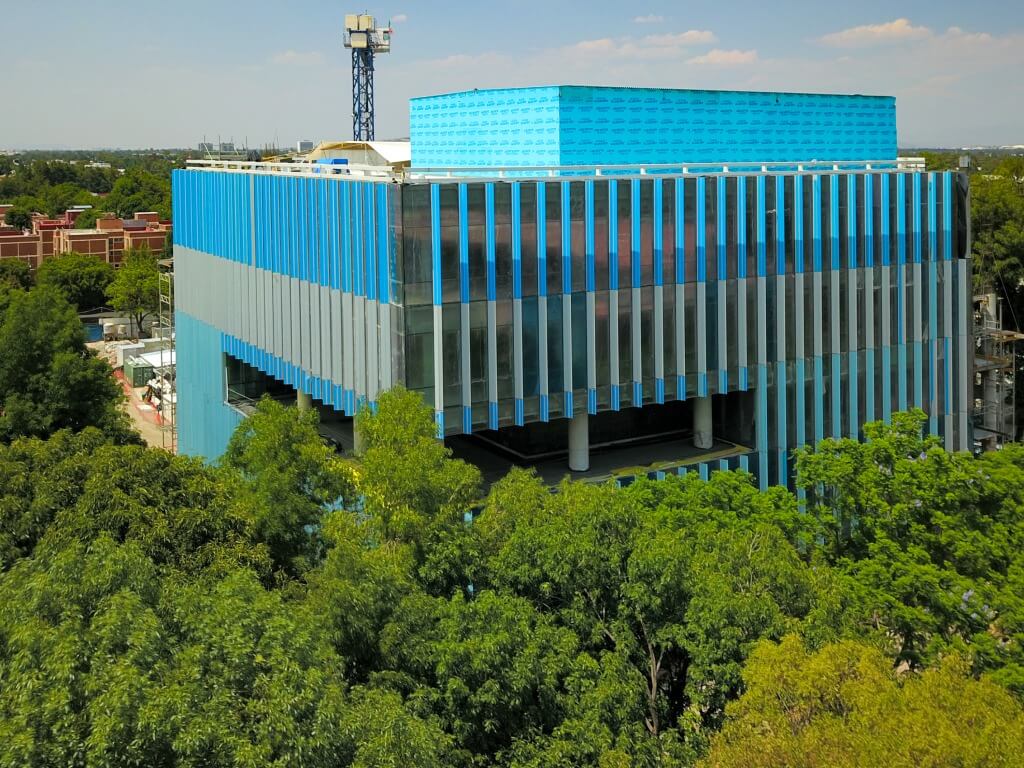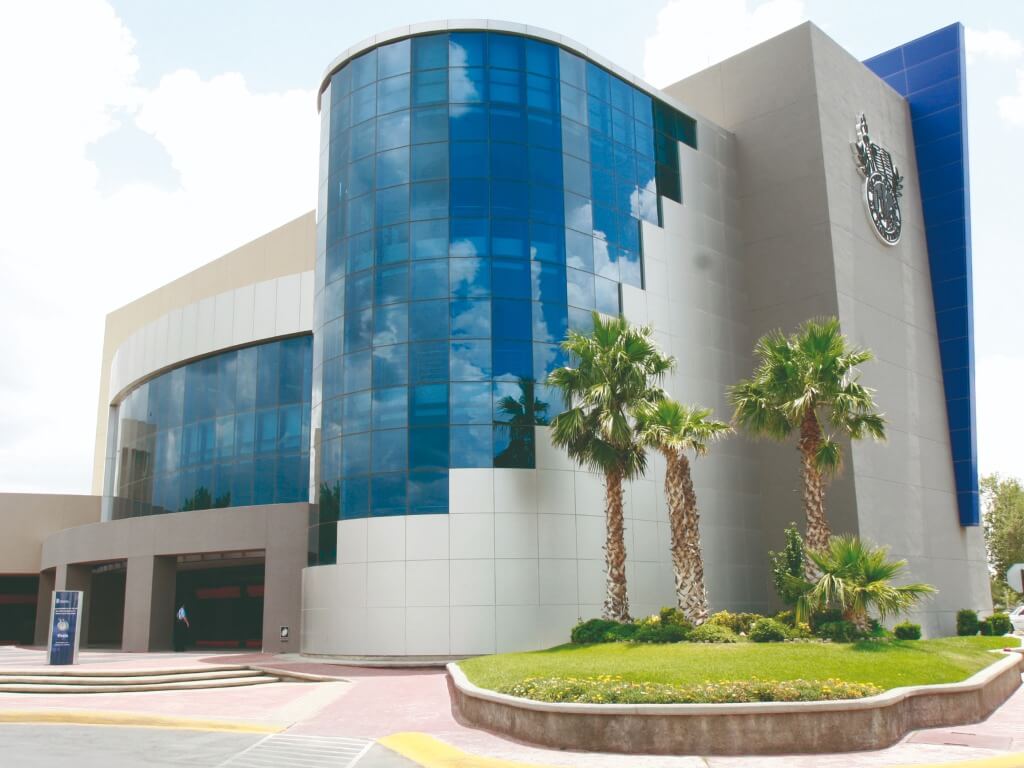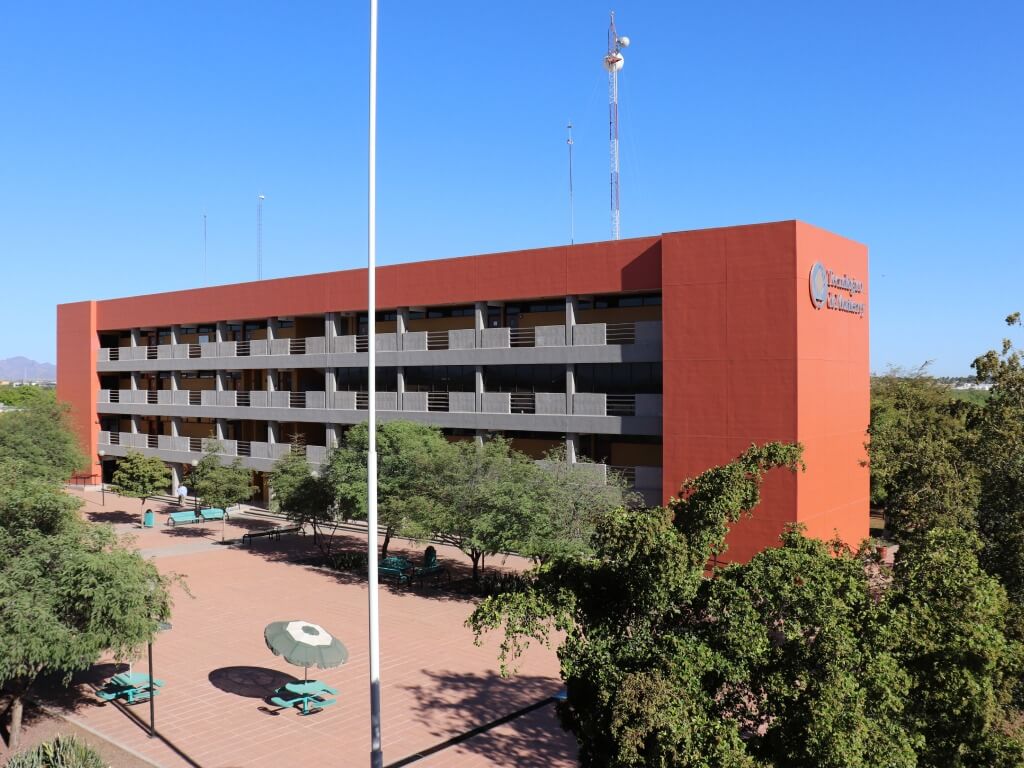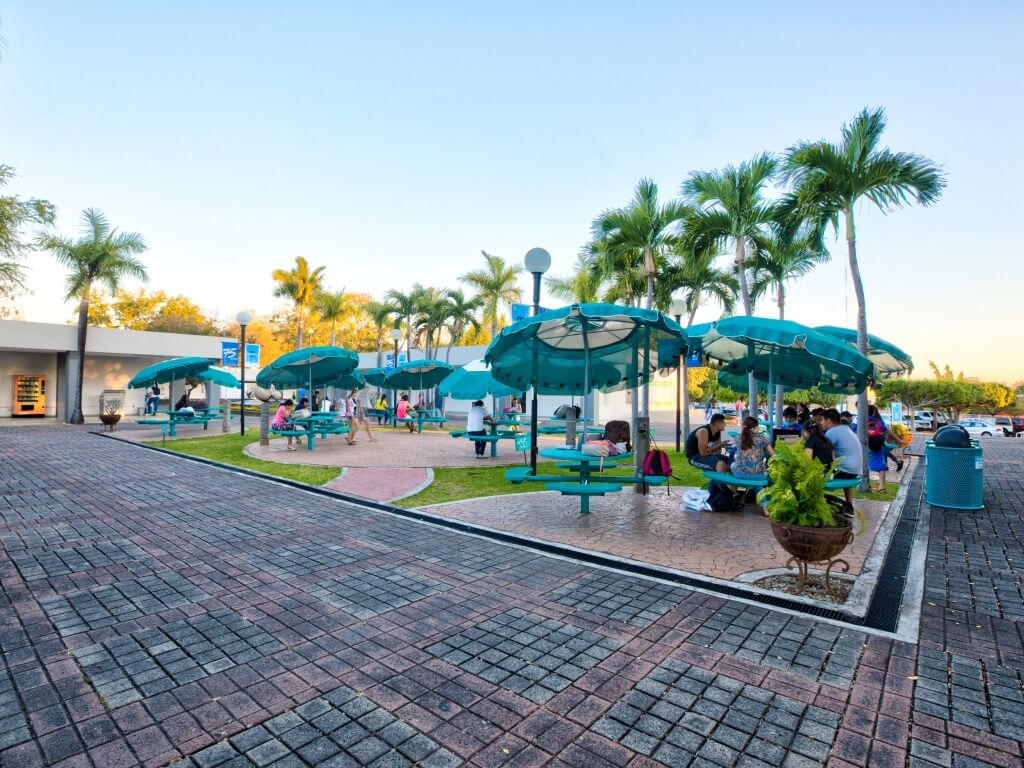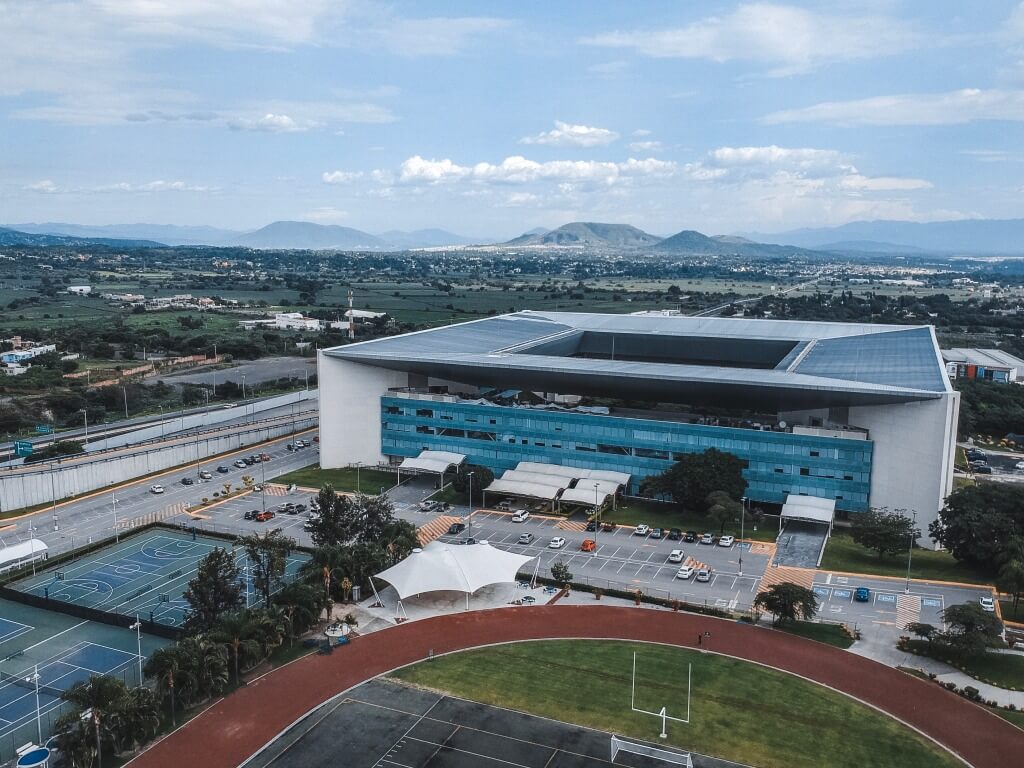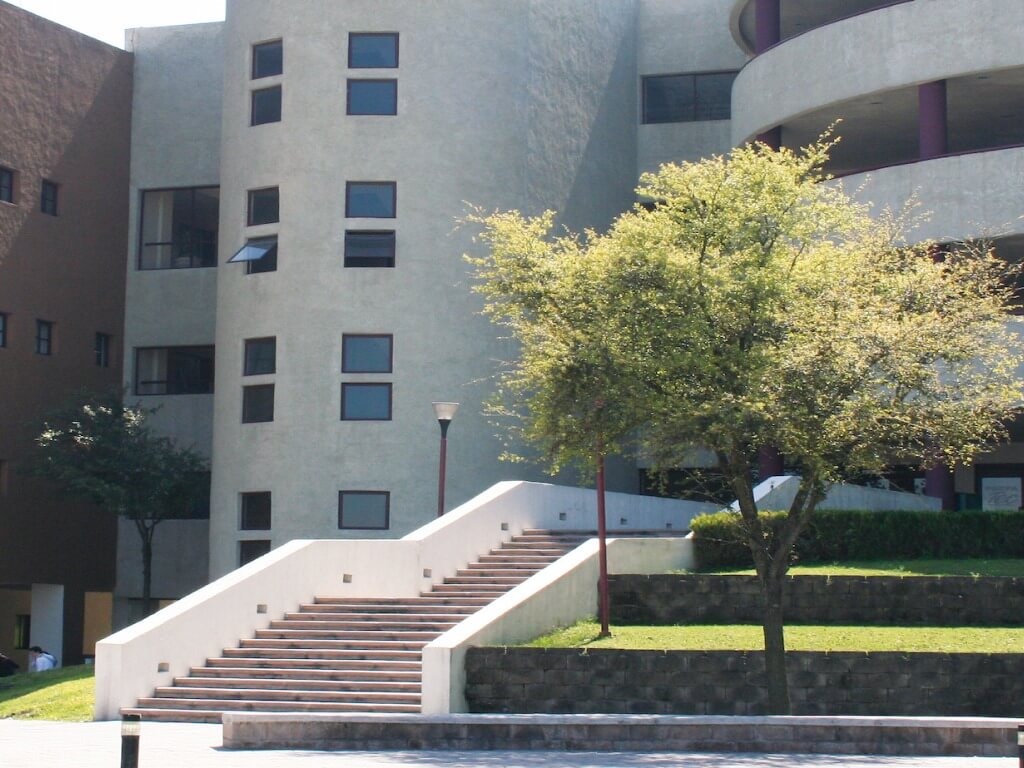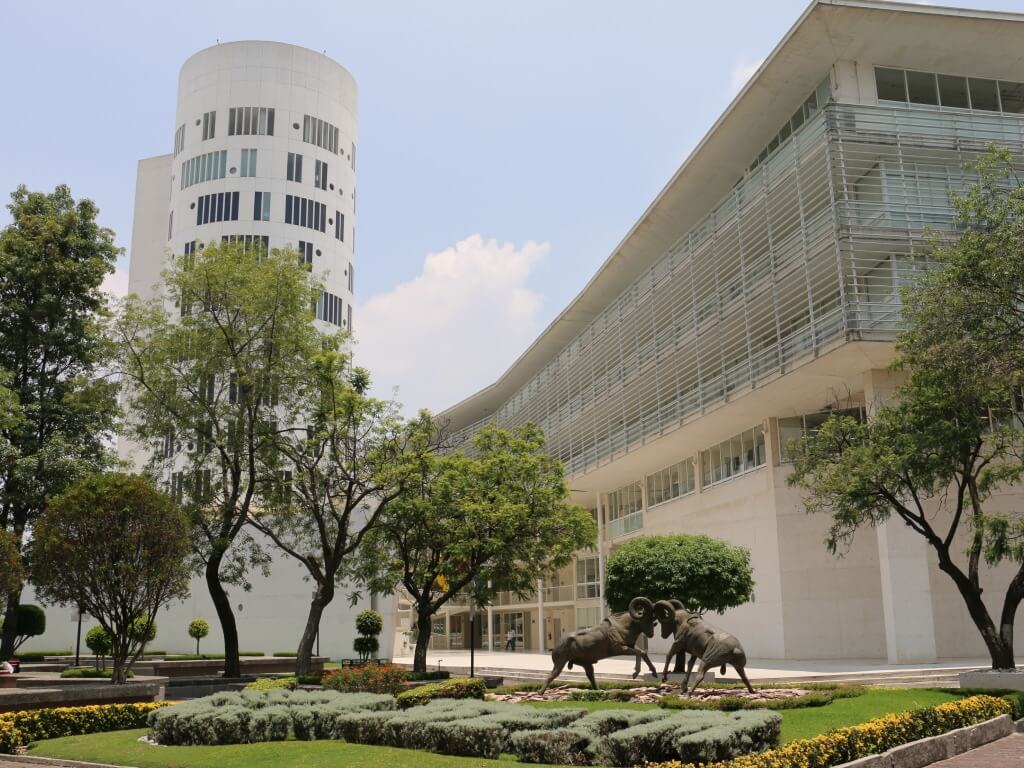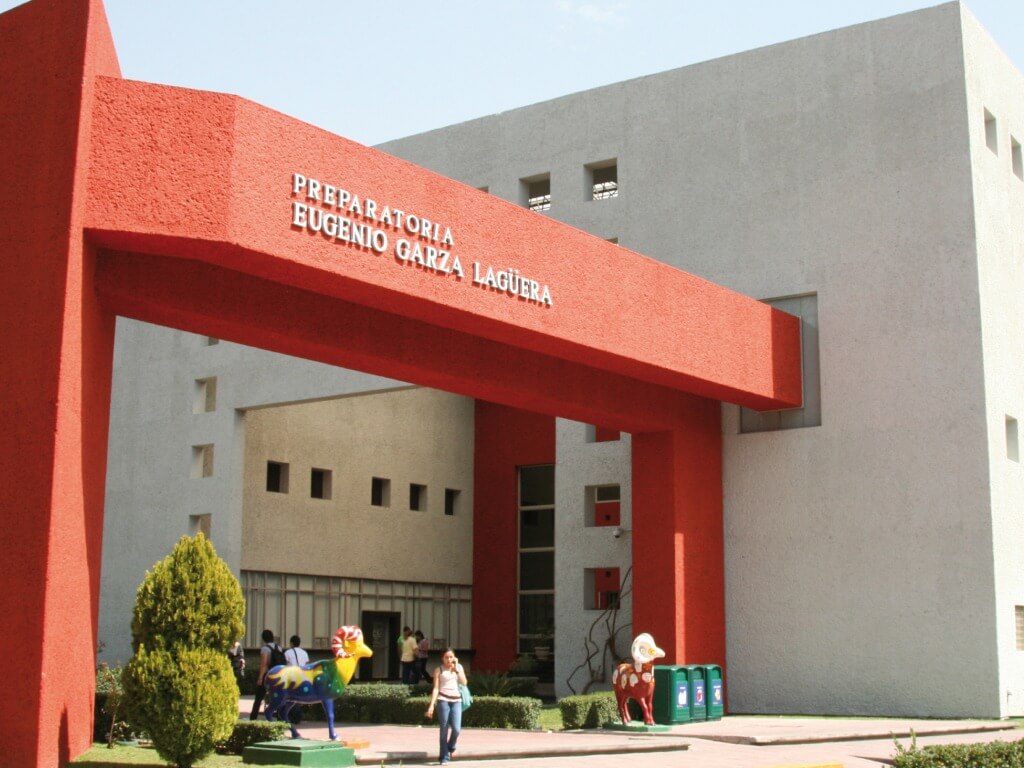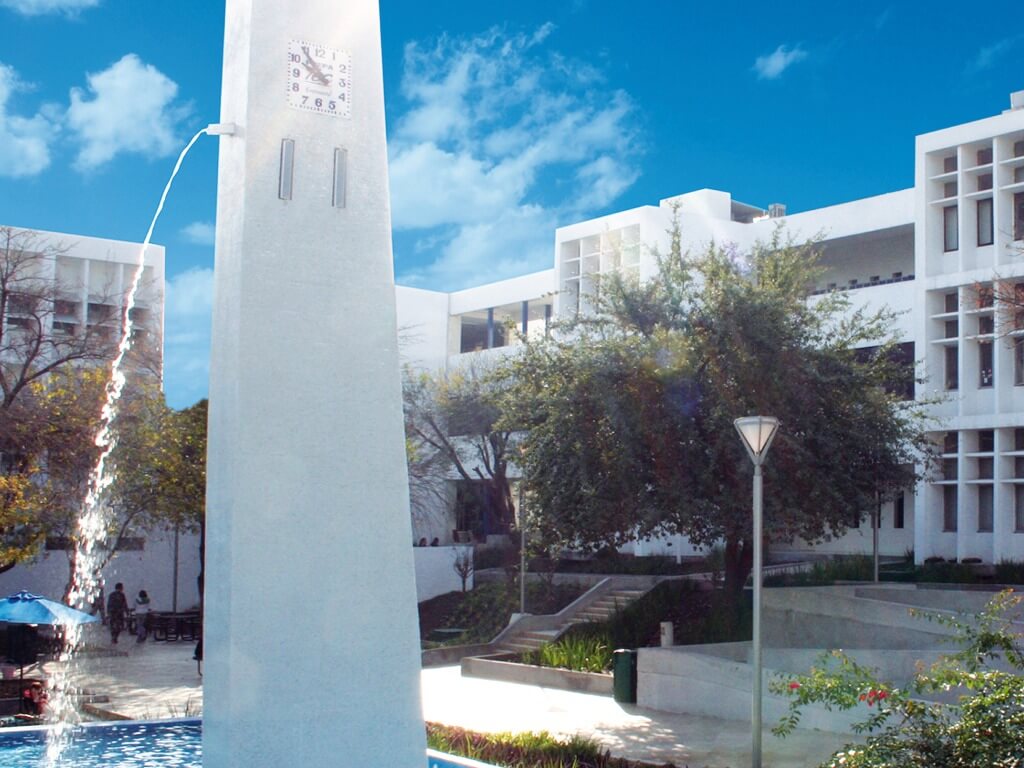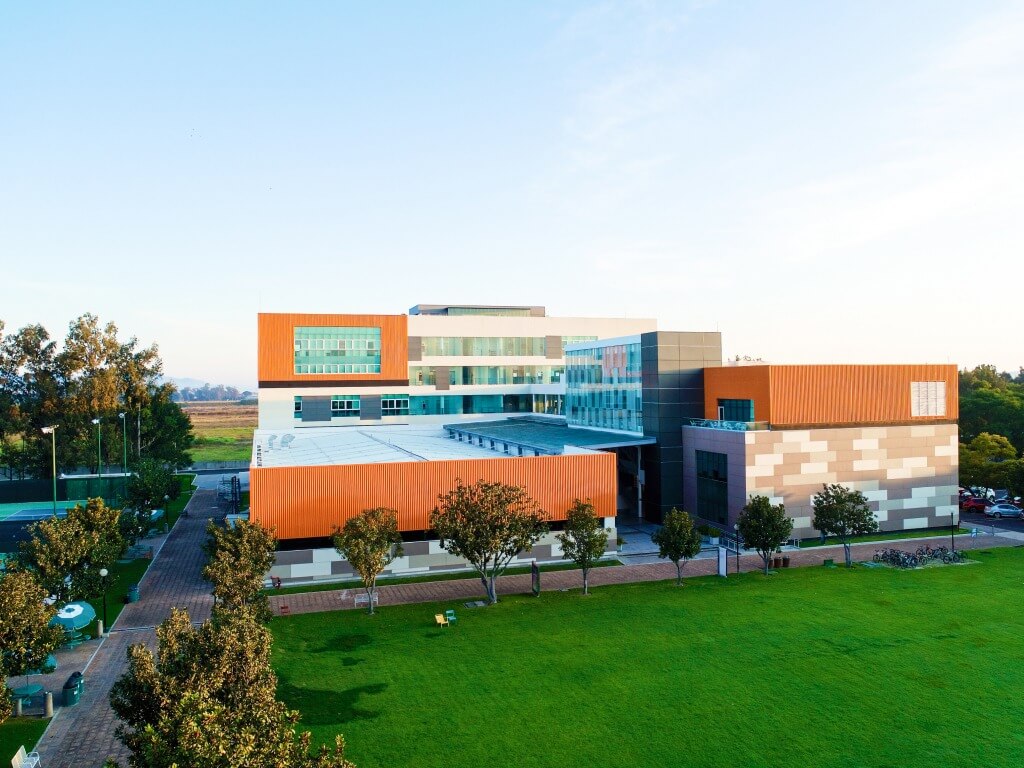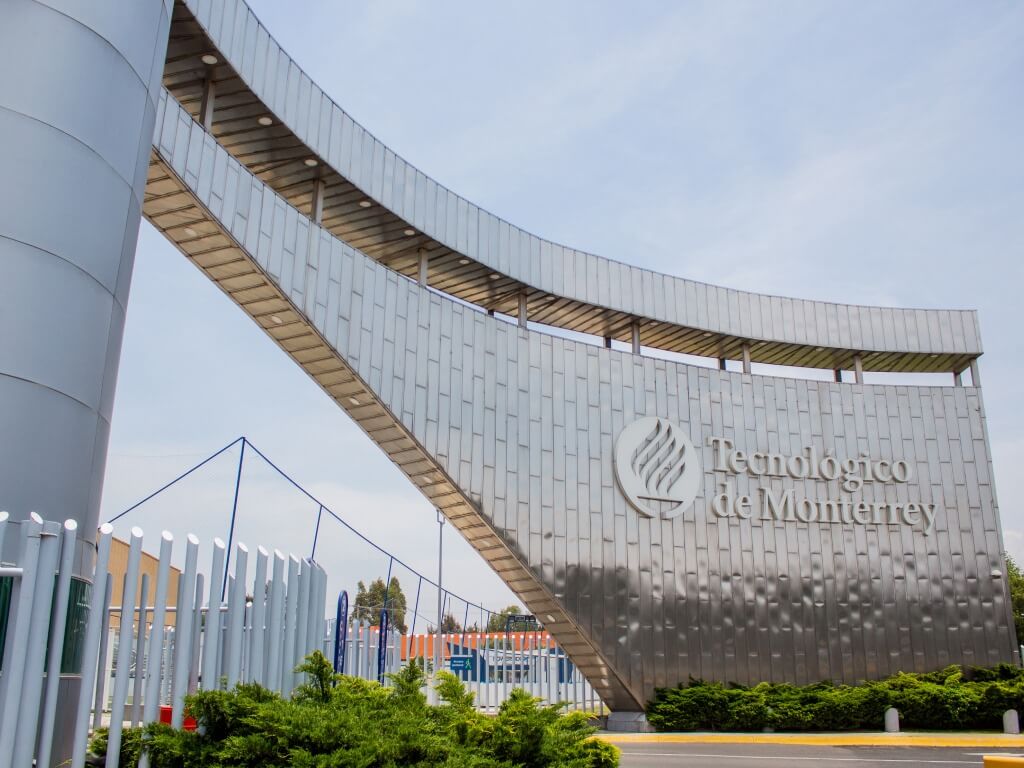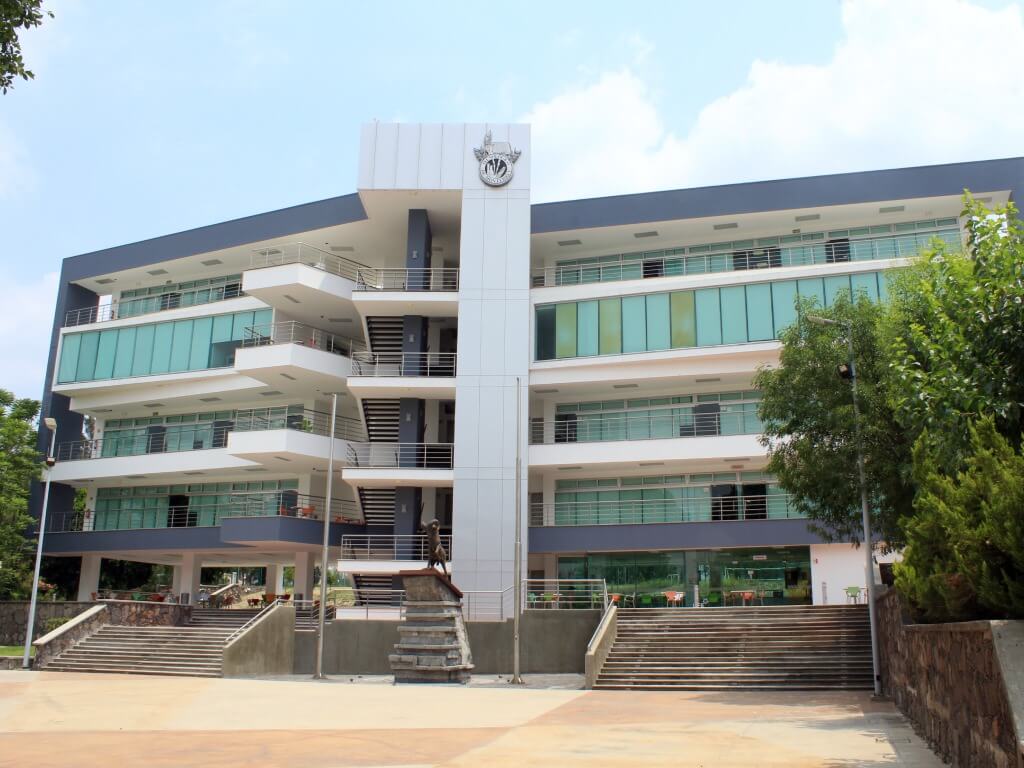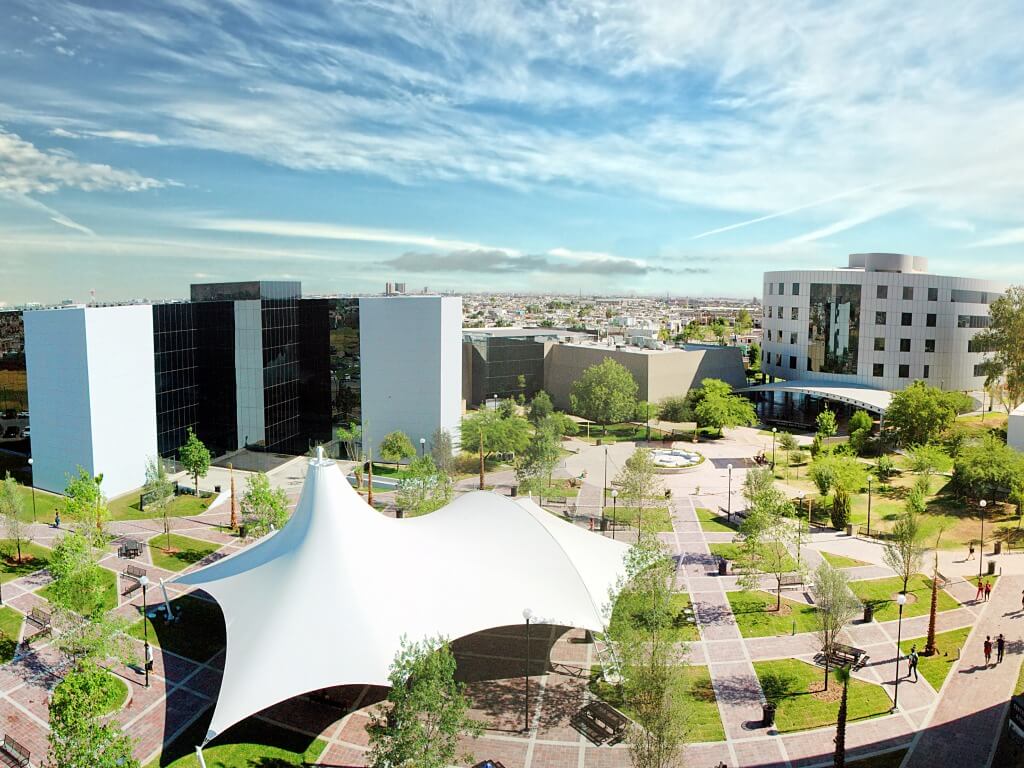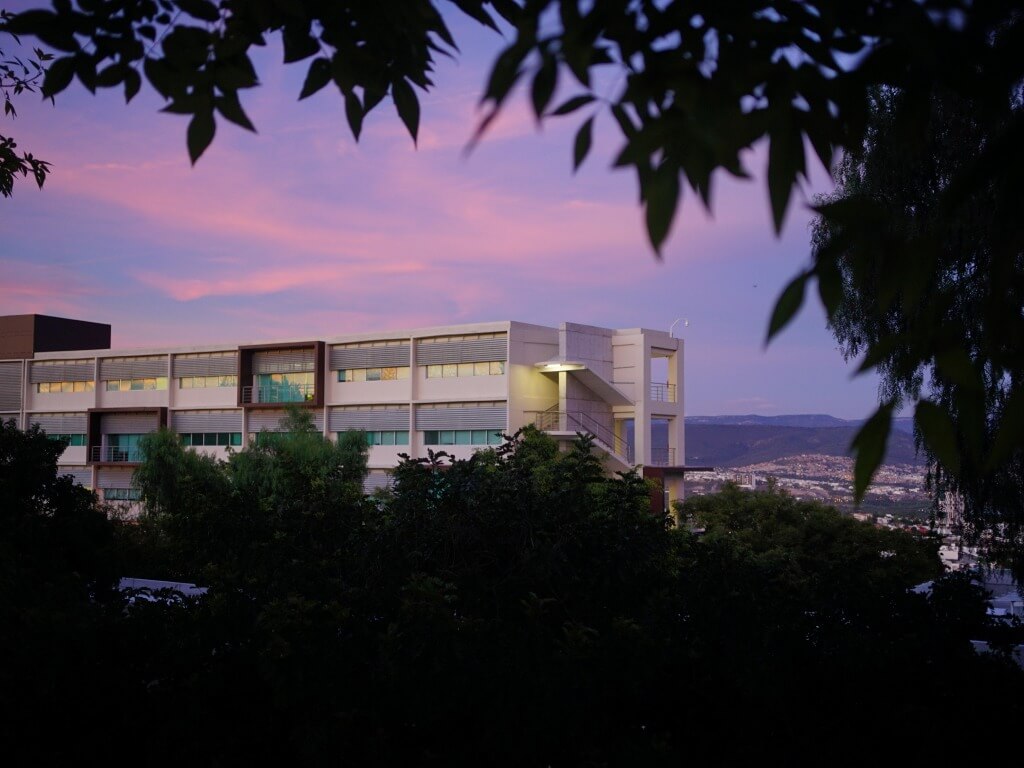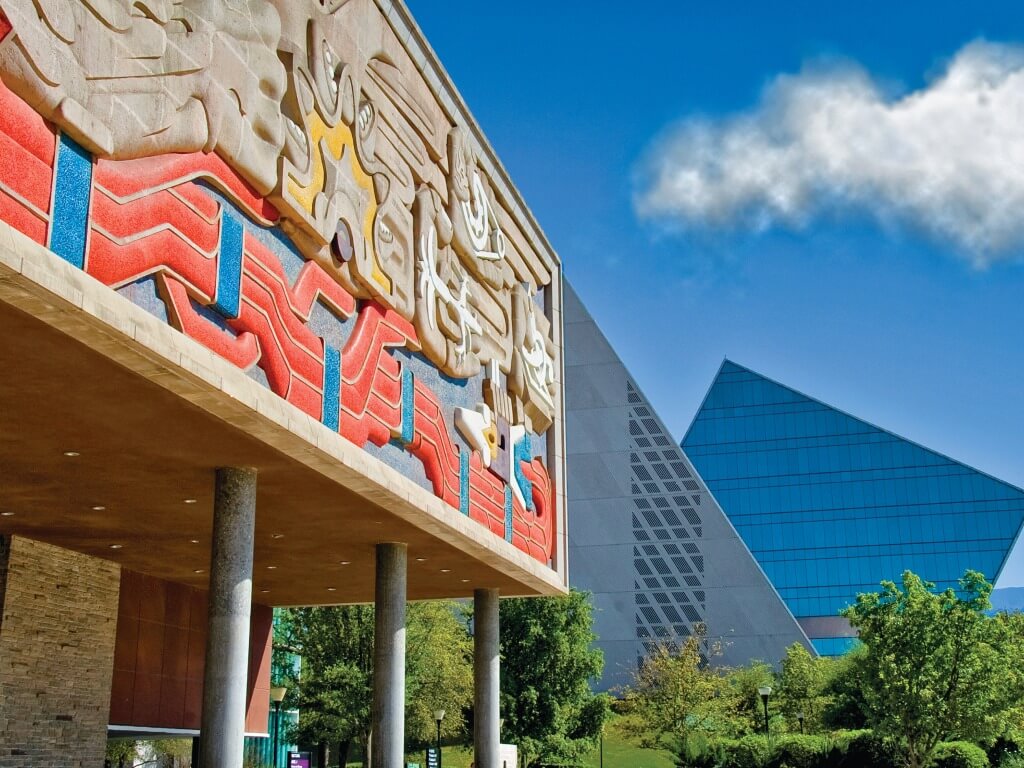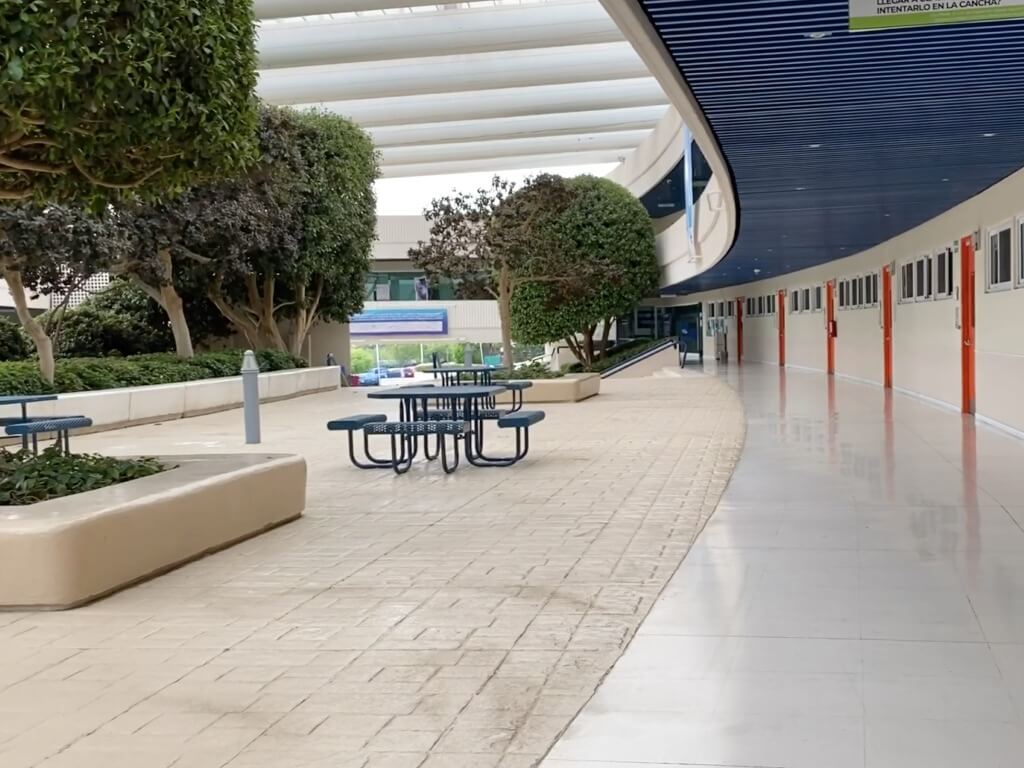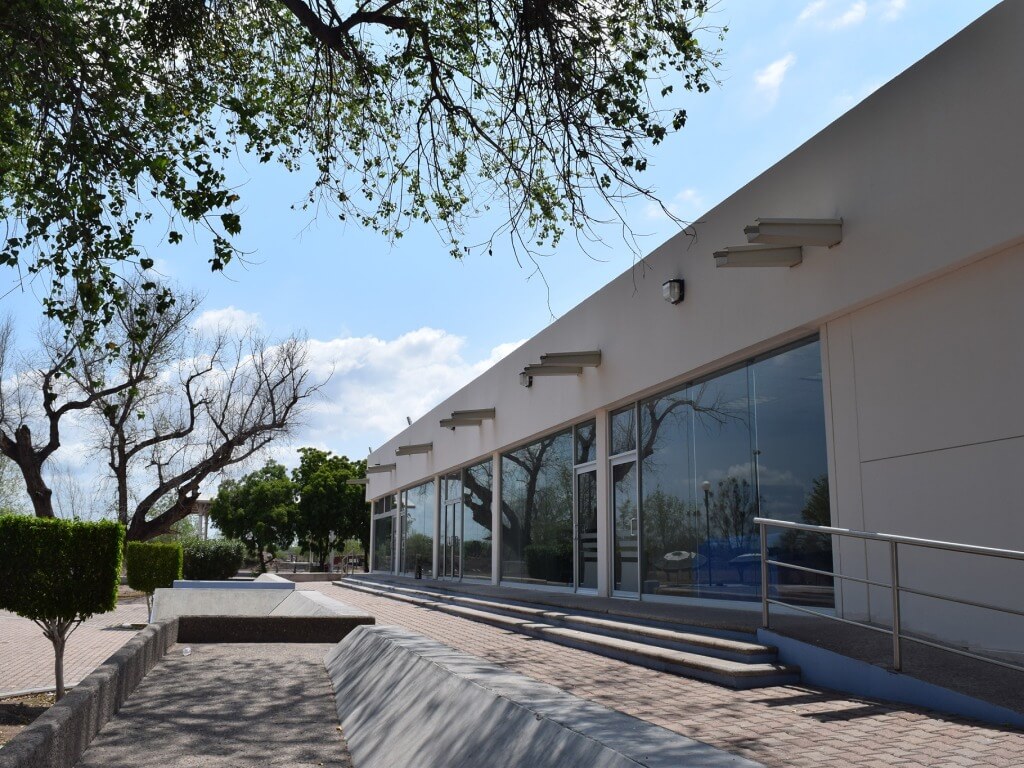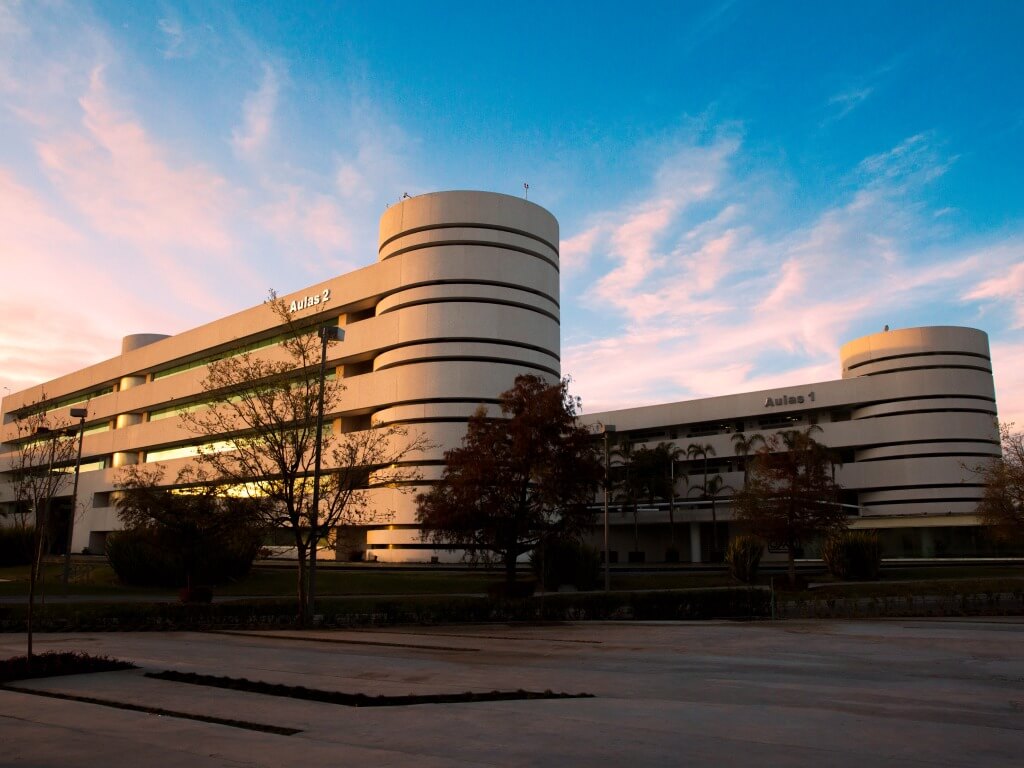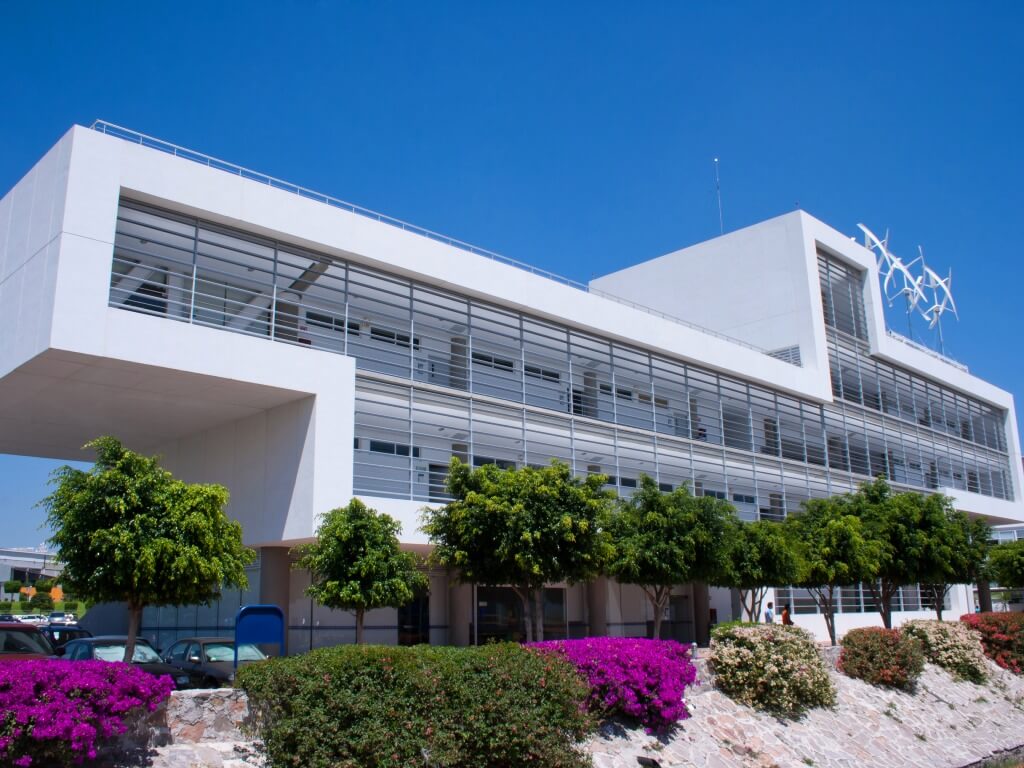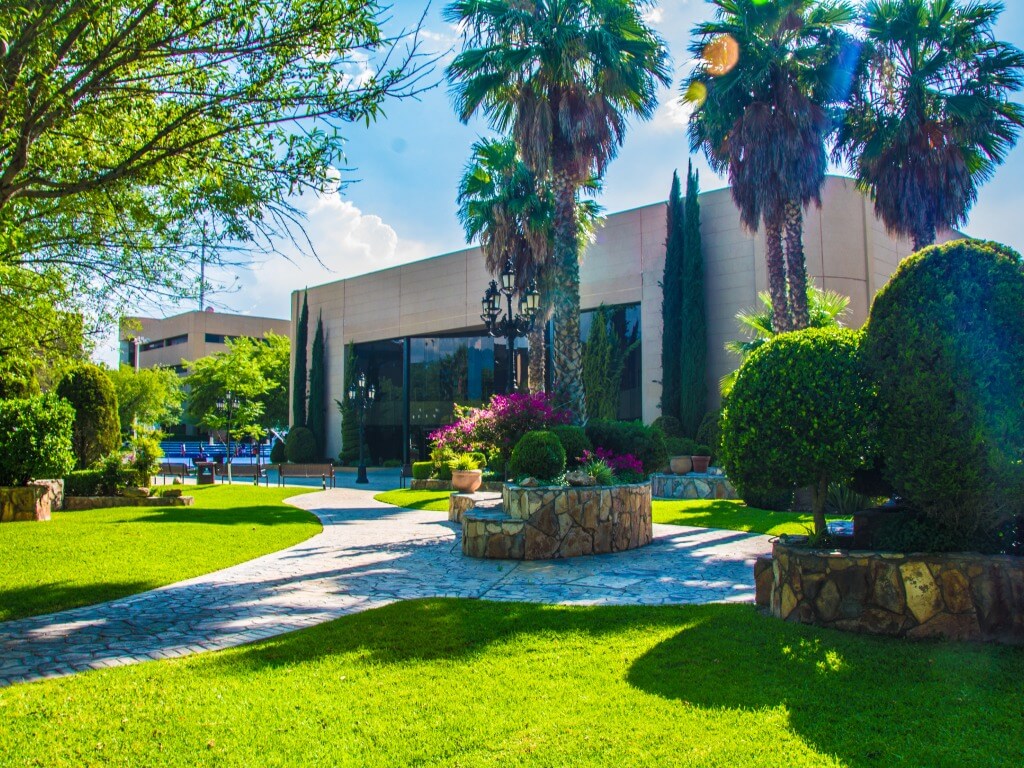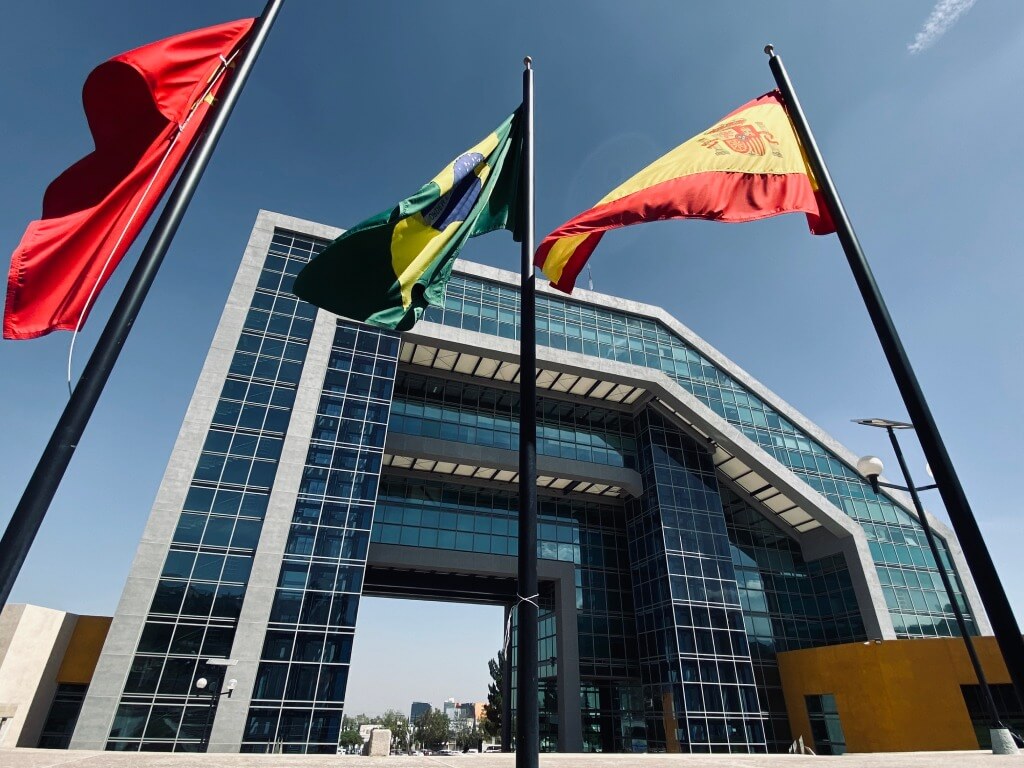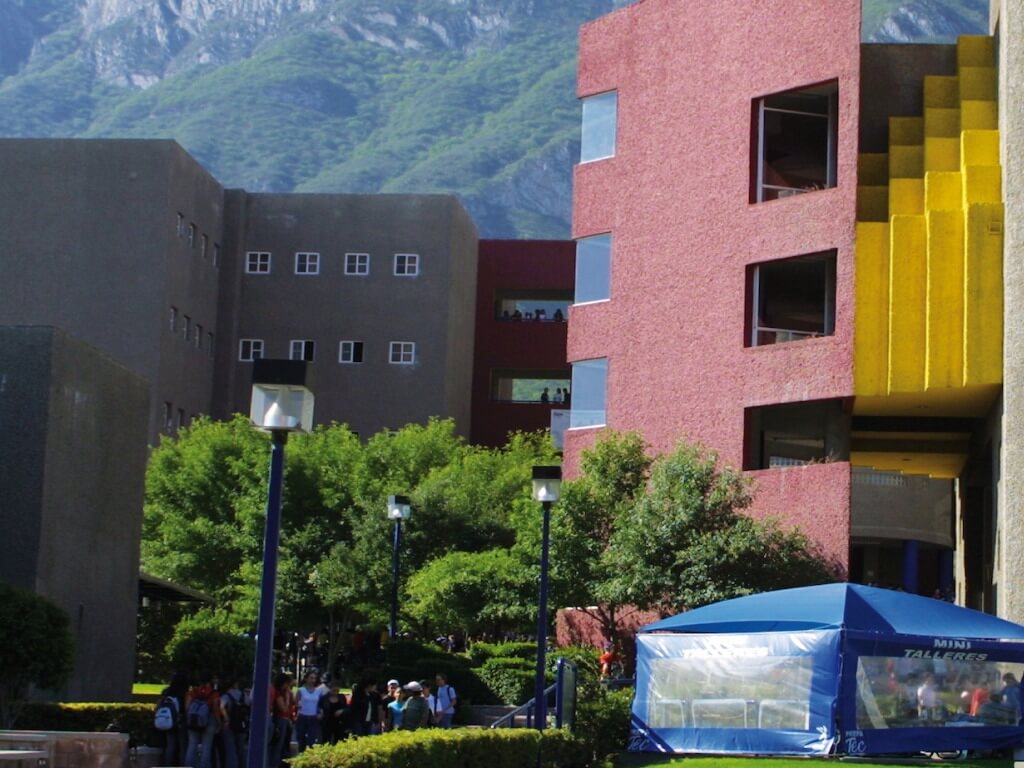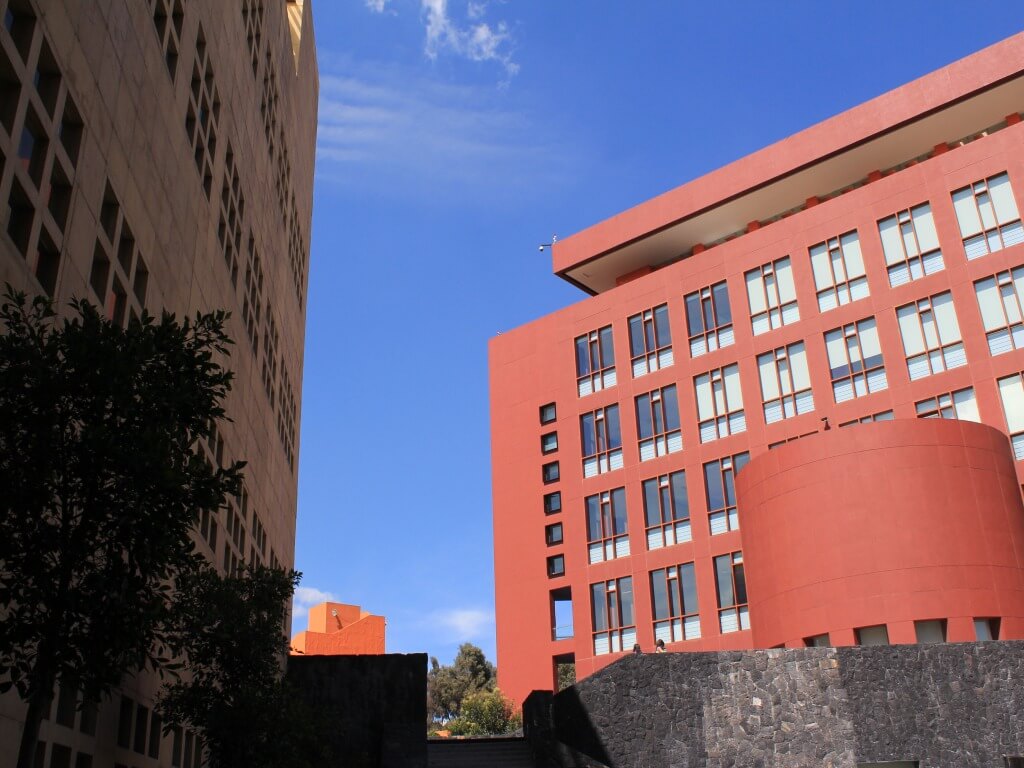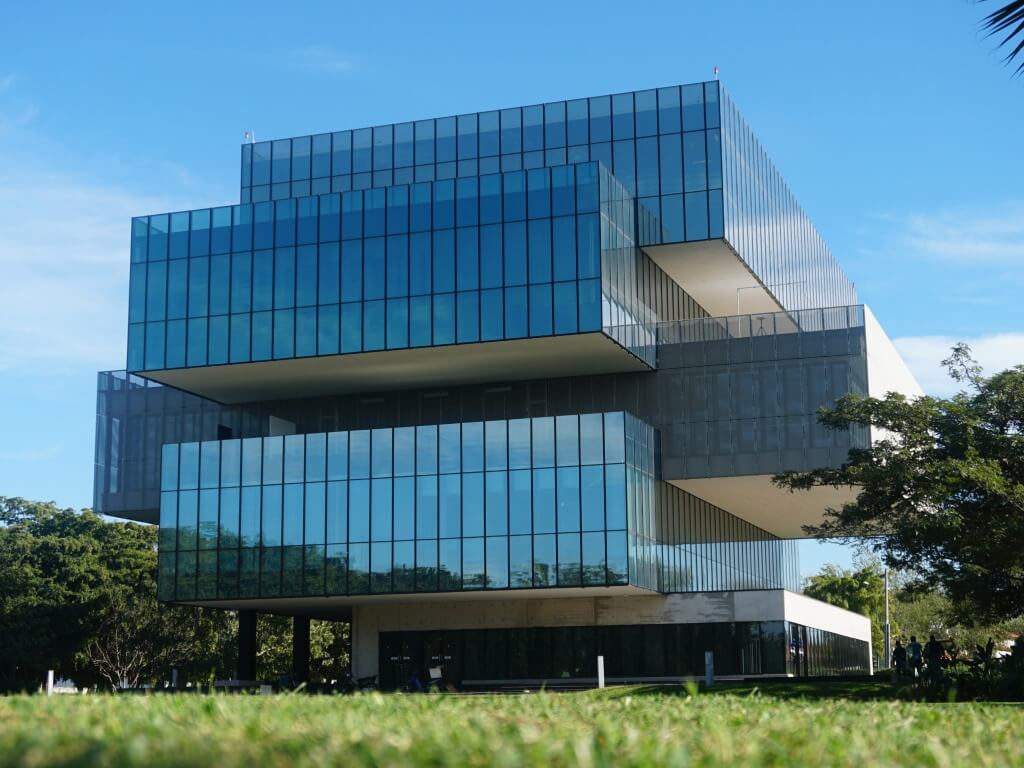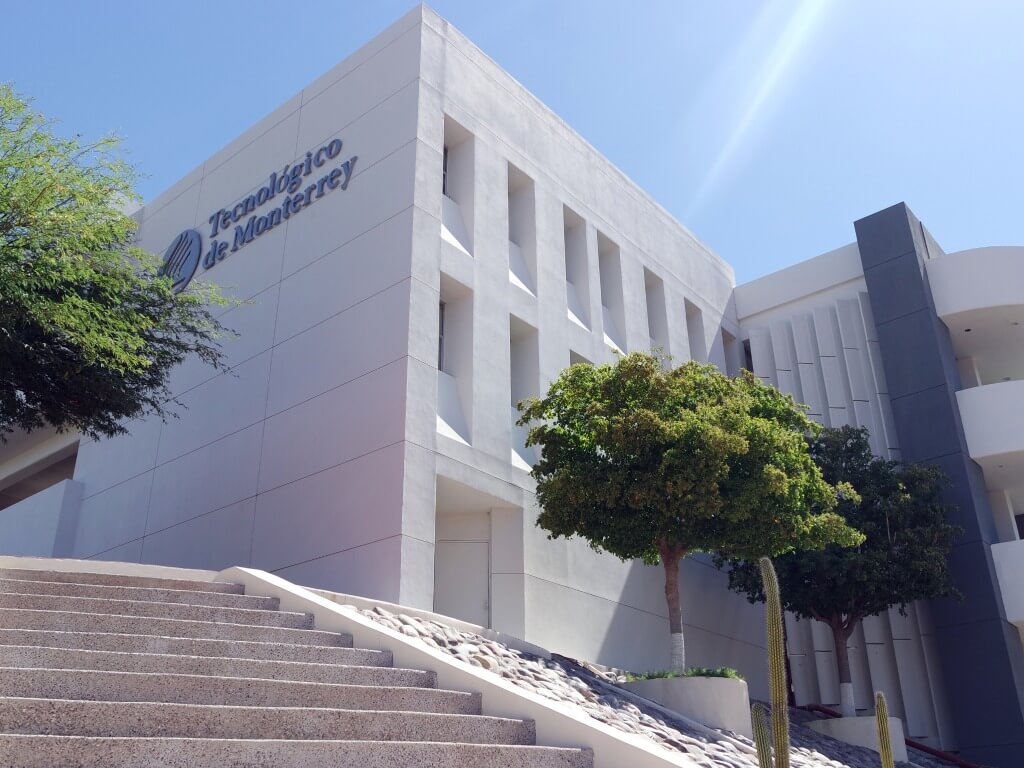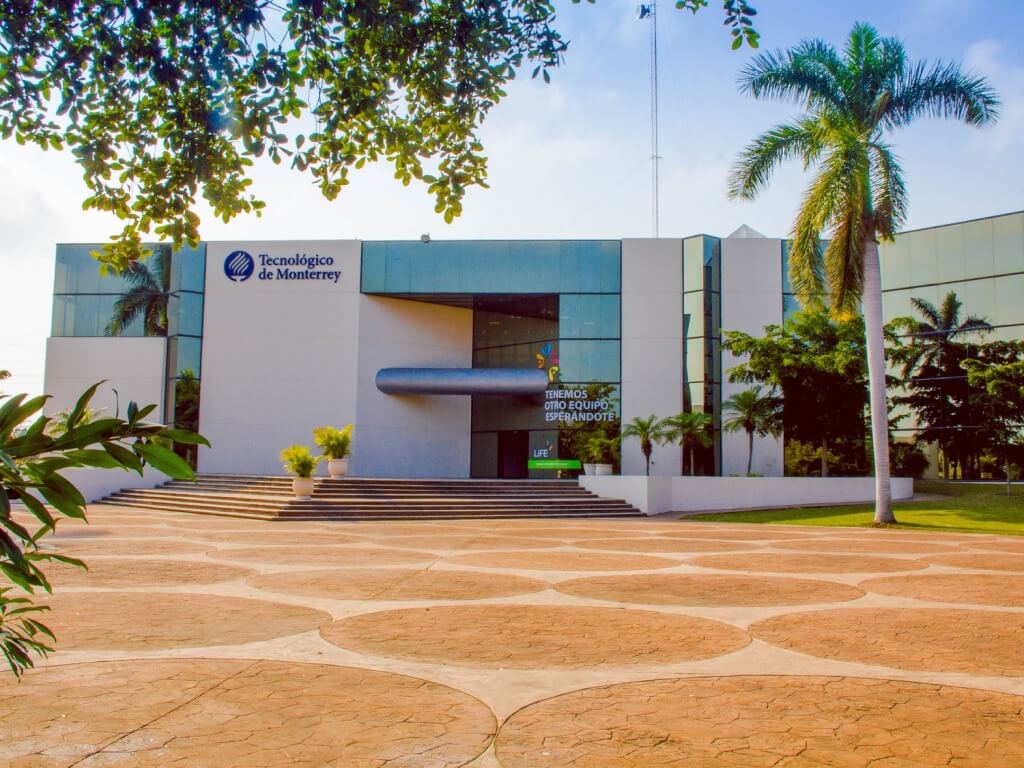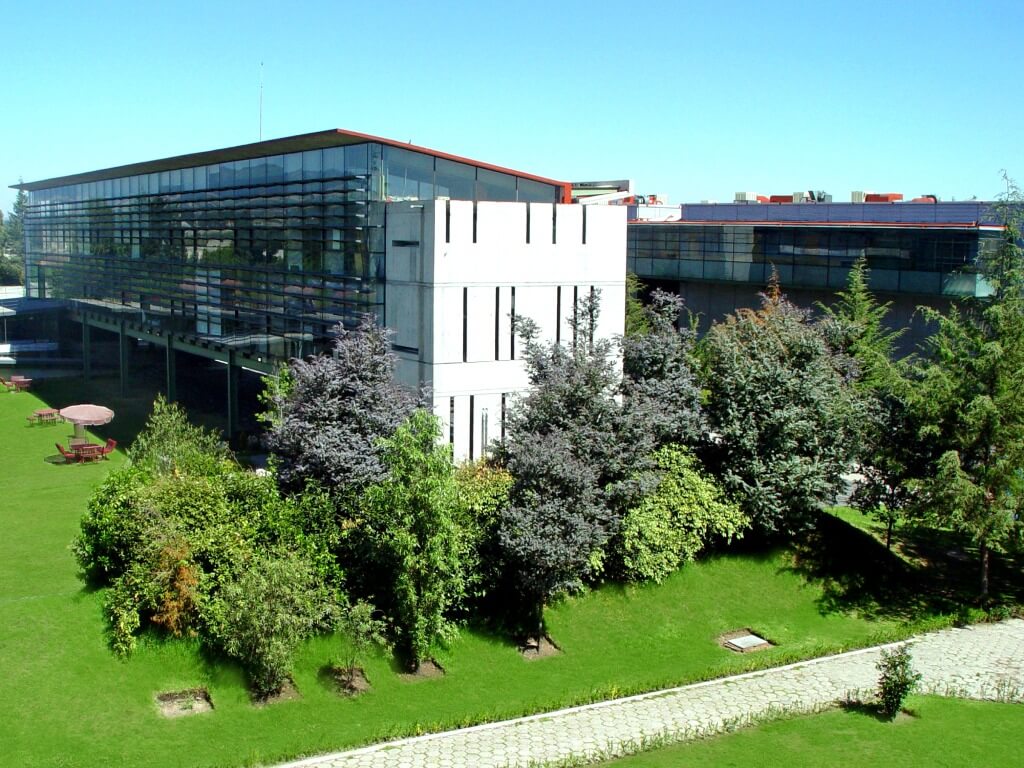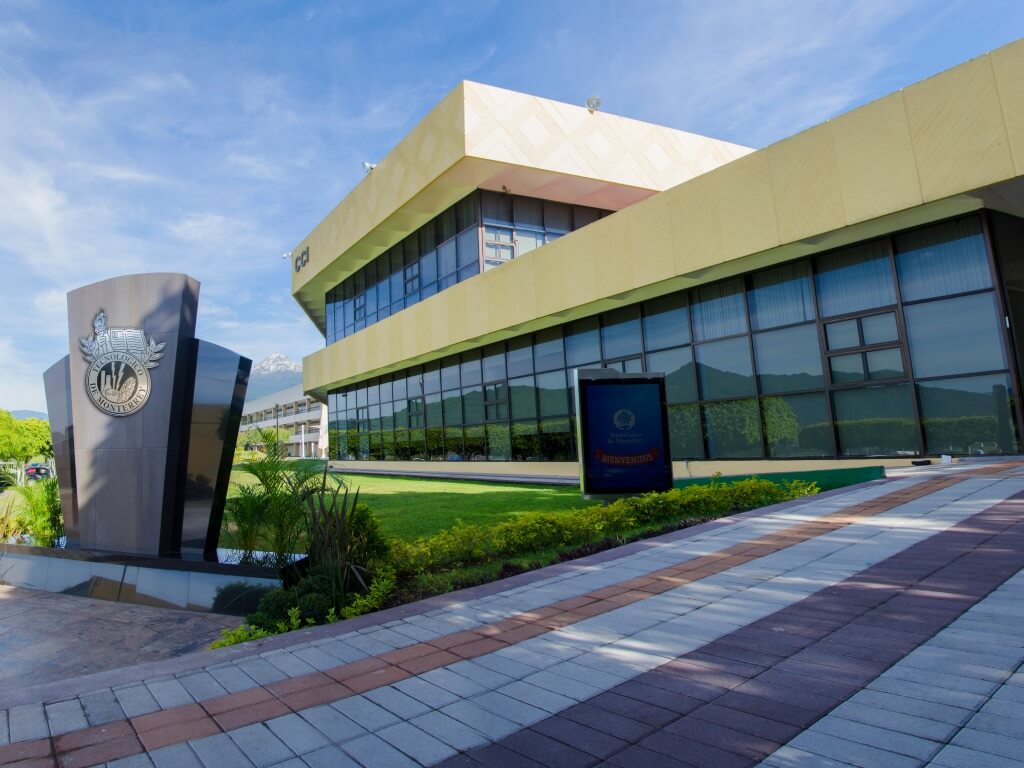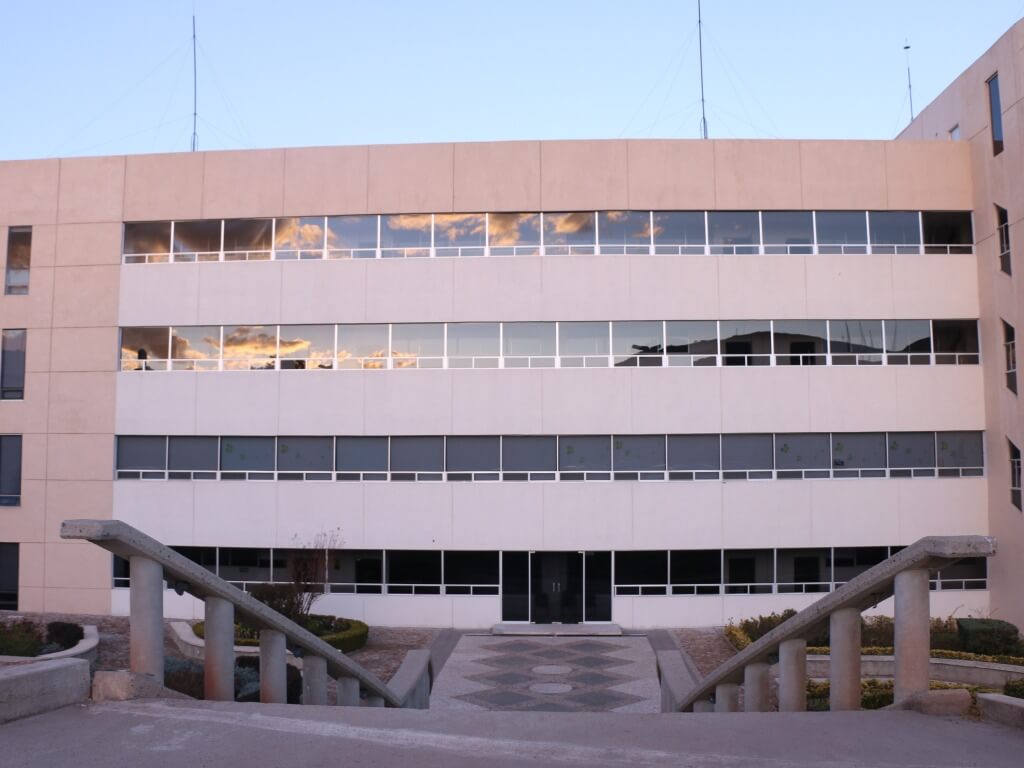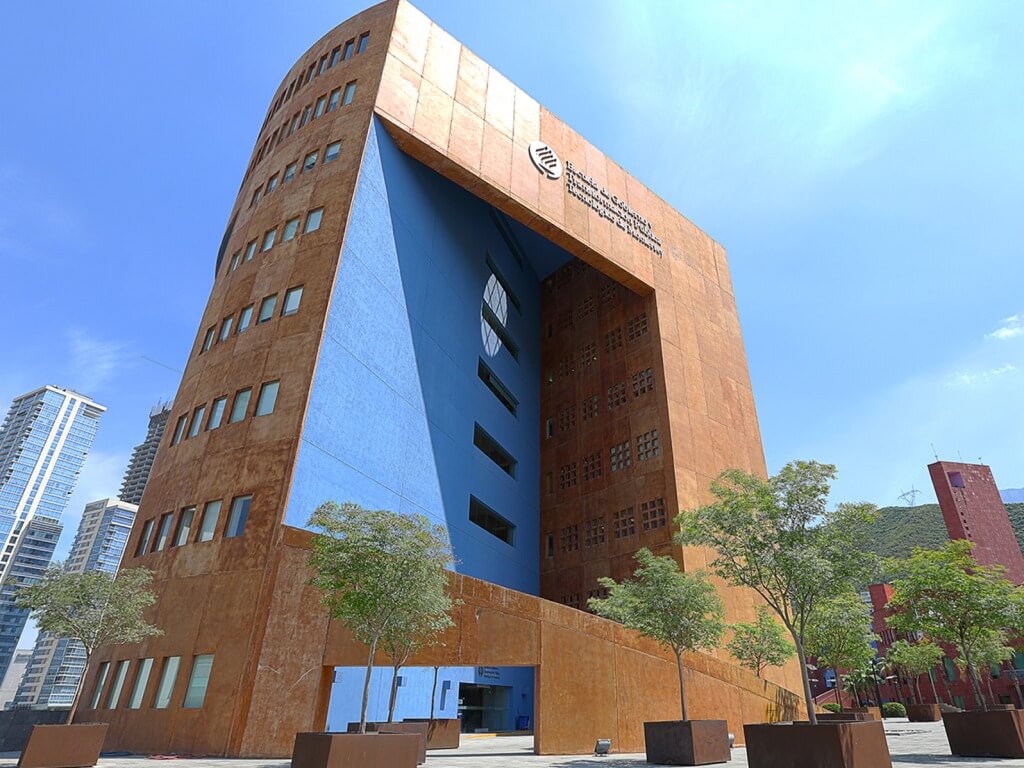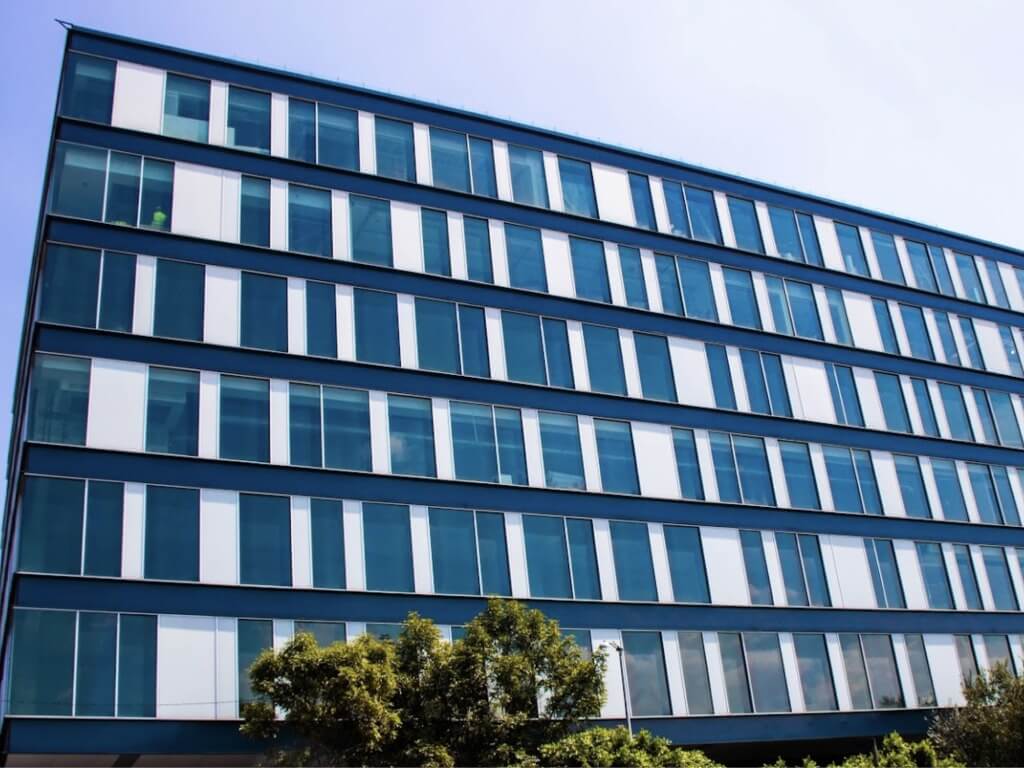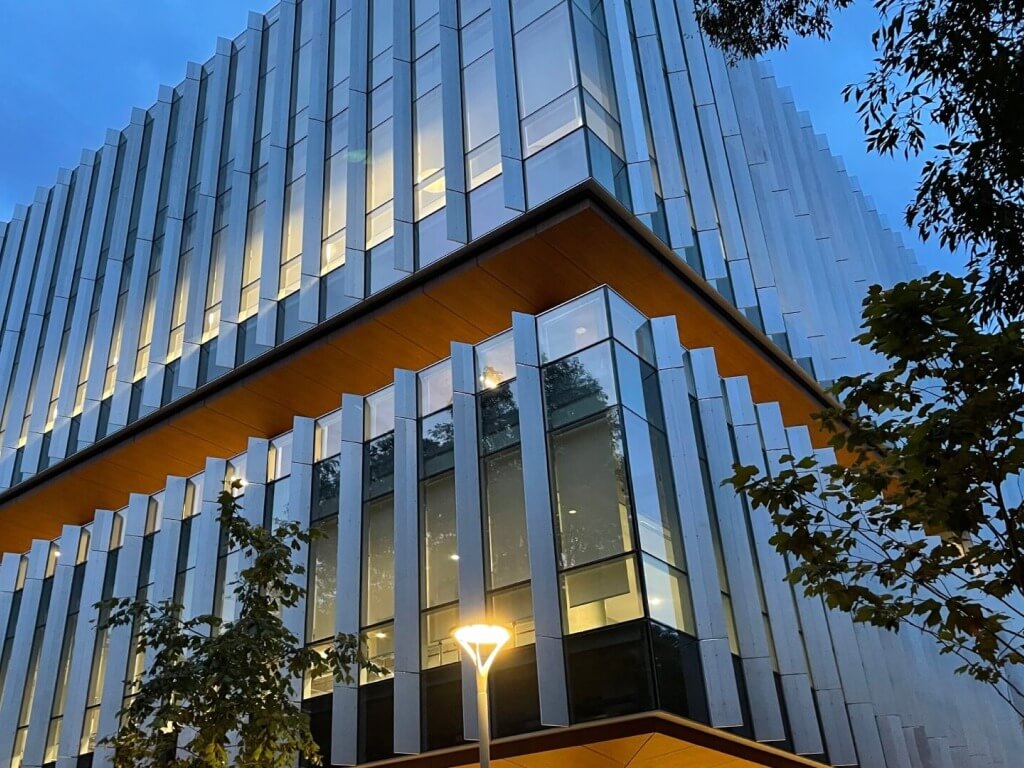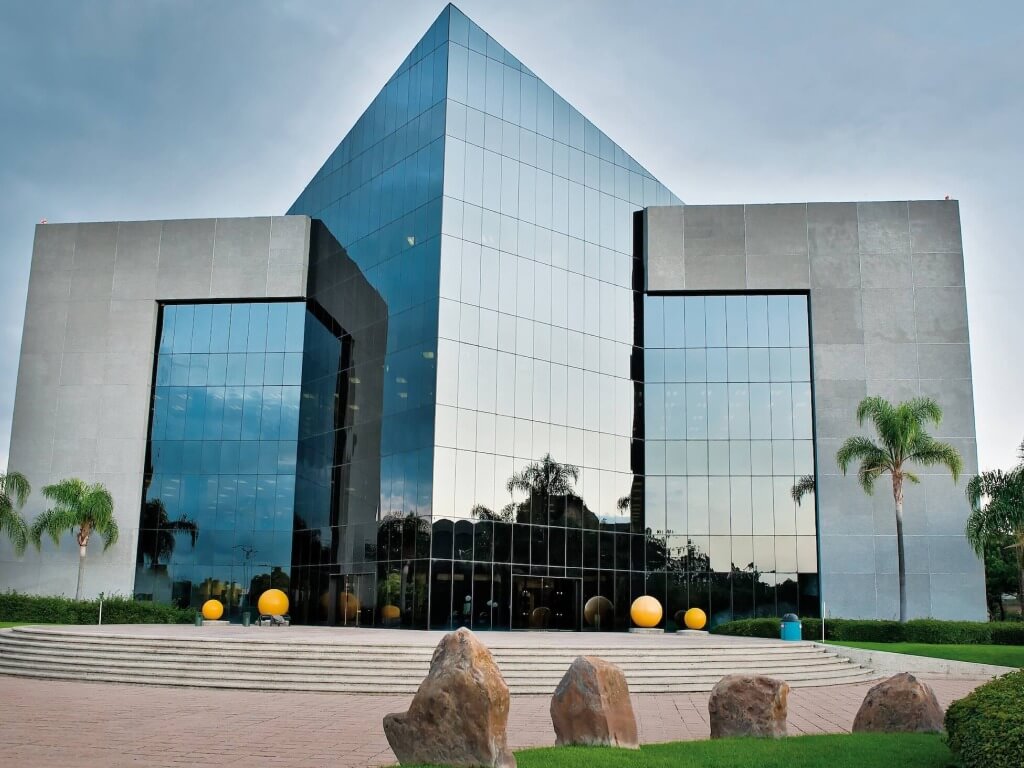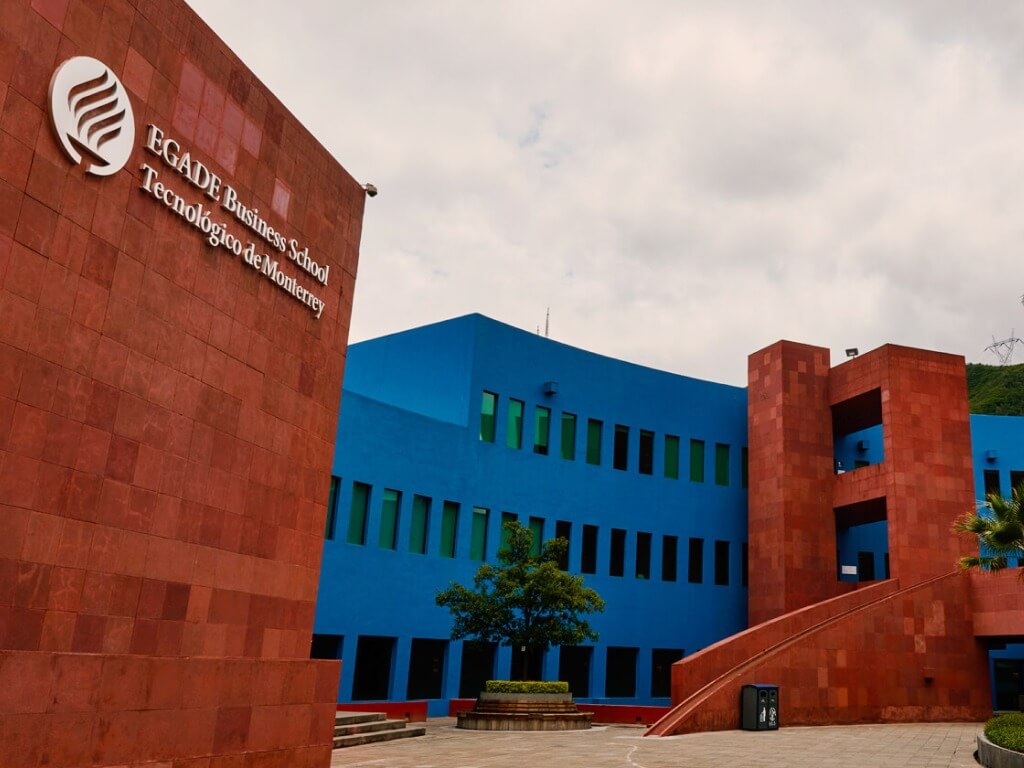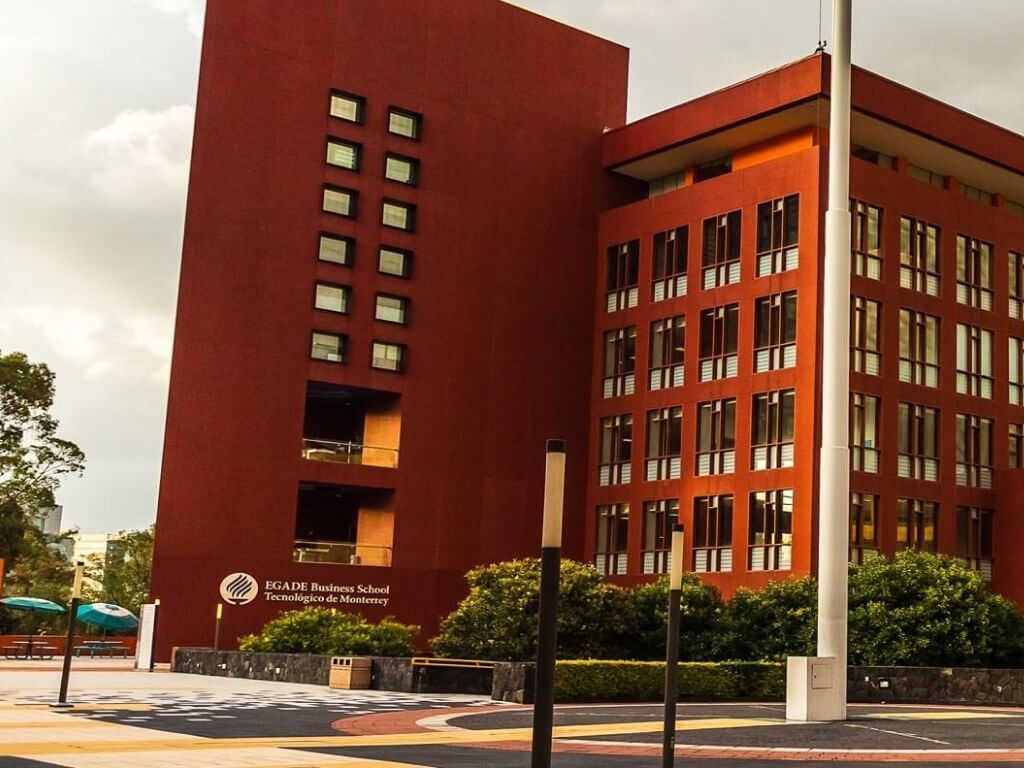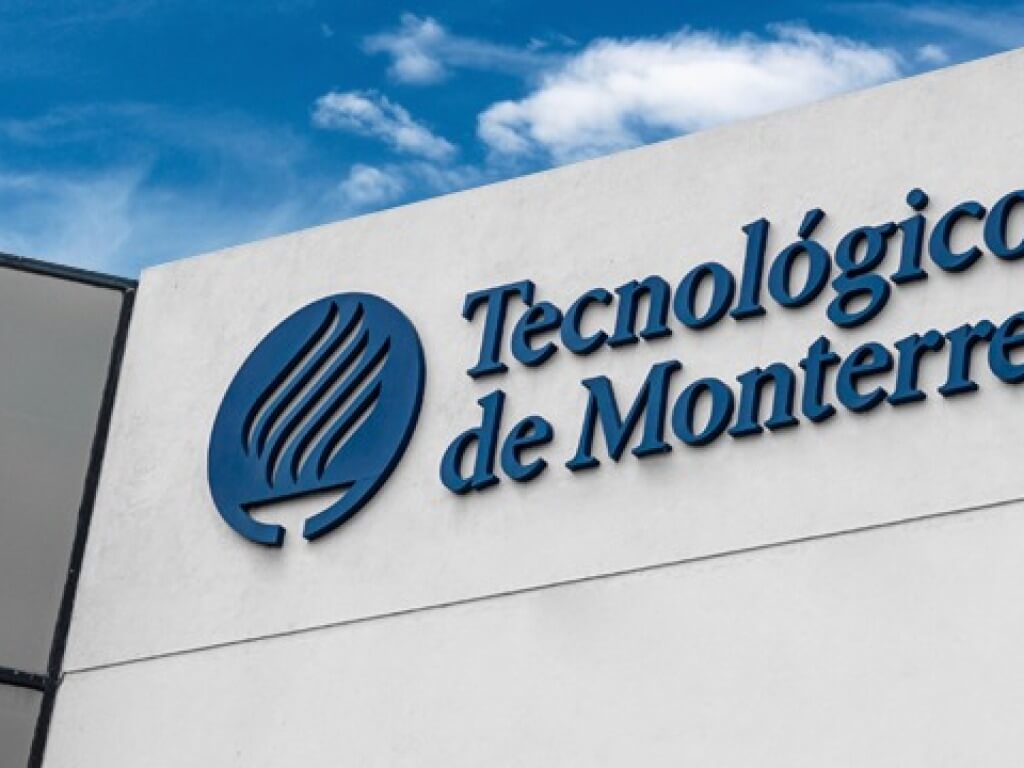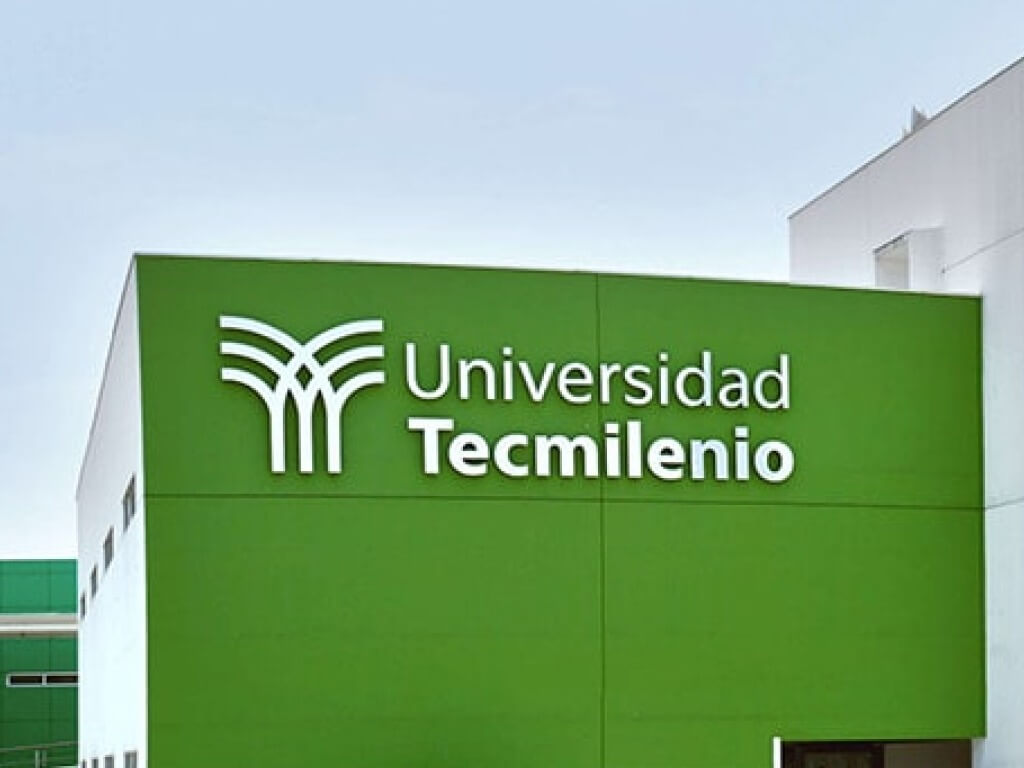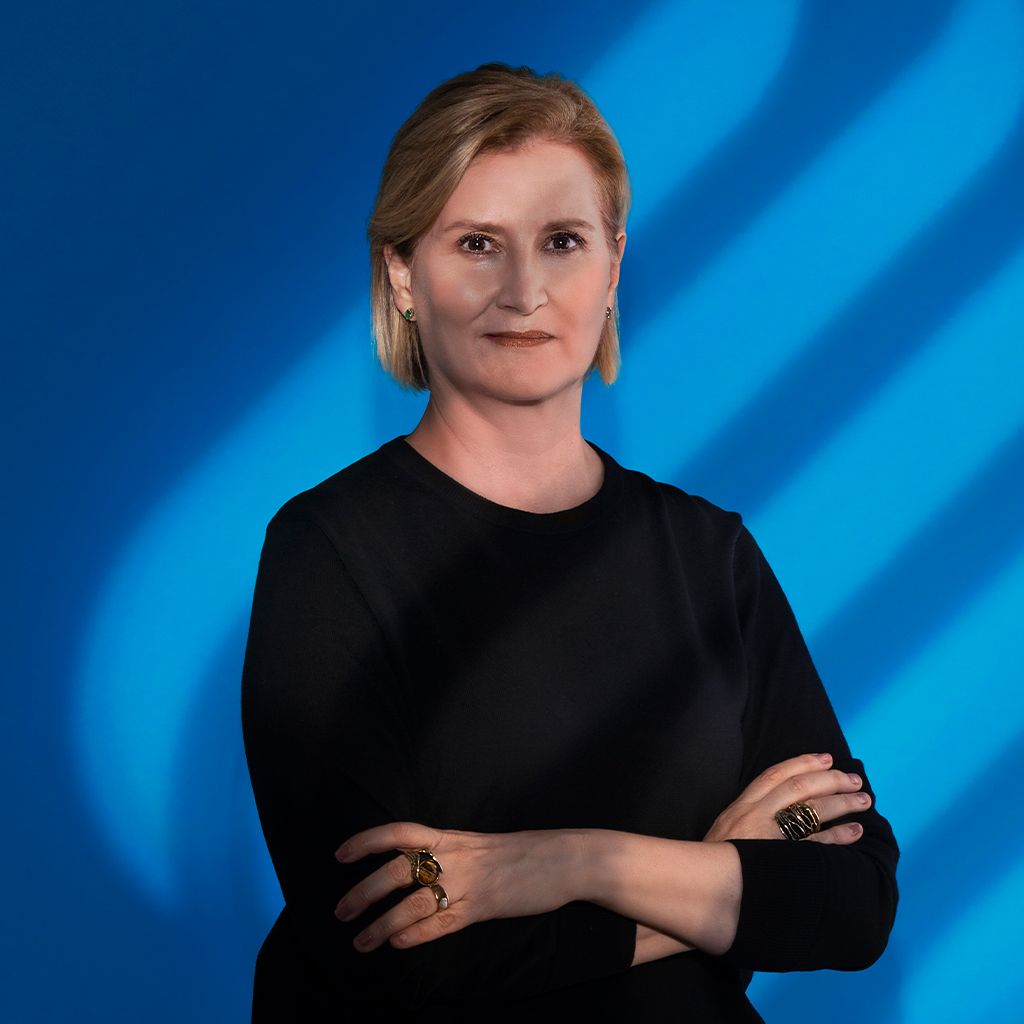R4C-IRG

R4C-IRG Grupo de Investigación Interdisciplinar:
Escalando el pensamiento complejo para todos
Miembros del grupo de investigación

Doctora en Filosofía y Ciencias de la Educación por la Universidad de Salamanca. Coordina los grupos de investigación interdisciplinar “Escalando el razonamiento para la complejidad para todos” y “Unidad de Tecnología Educativa”, en el Instituto para el Futuro de la Educación del Tecnológico de Monterrey (México). Es Chair UNESCO "Movimiento Educativo Abierto para América Latina" y del International Council for Open and Distance Education “Recursos educativos abiertos para América Latina”. Investigadora nivel 3 del Sistema Nacional de Investigadores de México. Sus líneas de investigación son la innovación educativa y la educación abierta. Centra sus actividades en la dinamización de iniciativas educativas, con innovación, investigación y sentido global, como medio de transformación e impacto social para el aprendizaje permanente y el desarrollo sostenible.

Sus principales líneas de Investigación son en Procesamiento de Señales Acústicas y Robótica Social, línea en la cual ha desarrollado en gran parte en los últimos años con enfoque en salud y en educación (desde niveles de preescolar hasta preparatoria), adicional a incursiones con obras de teatro con robots, locución en radio y promoción y fomento de la tecnología. Ha presentado varios artículos de investigación, colaborado en capítulos de libros y ha participado en diferentes congresos.
Actualmente, es Investigador Nivel I en el Sistema Nacional de Investigadores ante CONACYT en la Sección de Ingeniería y Ciencias.

Doctorado en Ingeniería, profesora investigadora de tiempo completo del grupo de investigación de Tecnología Educativa del Instituto del Futuro de la Educación, del Tecnológico de Monterrey. Sus áreas de investigación son Metodologías de Diseño, Diseño para la Innovación Social y la Inclusión, Diseño de Transición. Líder del Programa PULI con Chiba University (Japón) y miembro fundador del Taller Interuniversitario de Diseño. Colaboradora con instituciones como la UNESCO y el INIFED en México. Evaluadora y consultora para el Consejo Mexicano para la Acreditación de Programas de Diseño; jurado de certámenes como la Bienal Nacional de Diseño y el Premio Nacional de Diseño.

Ingeniero en mecatrónica, doctorado en Ingeniería con especialización en Energías Renovables por la Universidad Autónoma de Yucatán. Su área de investigación se centra en IA, aprendizaje automático, gemelos digitales y optimización para la comprensión de sistemas ciber físicos. Actualmente es Profesor Investigador en el grupo de investigación de Tecnología Educativa del Instituto para el Futuro de la Educación del Instituto Tecnológico y de Estudios Superiores de Monterrey. Ha escrito 30+ artículos en revistas, posee 2 patentes y ha presentado 40+ conferencias. Con un índice h de 15, y evaluador en 20+ revistas.

Doctor en Estudios Humanísticos con acentuación en Ética por el Tecnológico de Monterrey. Actualmente es Profesor investigador del Departamento de Estudios Humanísticos de la Escuela de Humanidades y Educación en el Tecnológico de Monterrey Campus Guadalajara. Sus líneas de investigación son los Estudios LGBTIQA, los Estudios de Género, la Ética Económica y la Innovación Educativa. Cuenta con más de 100 artículos publicados en revistas de más de 20 países. Ha llevado a cabo varios estudios sobre el desarrollo de competencias transversales en el ámbito universitario.
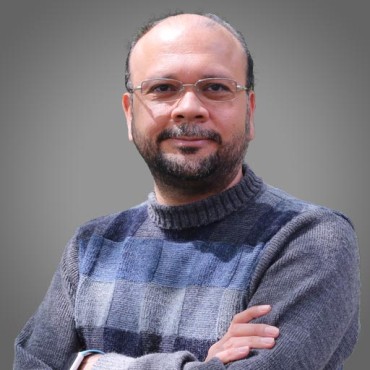
Doctor en Computación y Telecomunicaciones por el INP-LAAS en Toulouse, Francia. Sus intereses son sistemas distribuidos, cómputo en la nube, desarrollo de aplicaciones móviles y arquitecturas de sistemas para la toma de decisiones donde ha asesorado 2 tesis doctorales y 17 tesis de maestría. Autor de más de 30 artículos en JCR, congresos y capítulos de libro. Fue director de los Programas de Posgrado en Ciencias de la Computación del Tecnológico de Monterrey (2007-2015), México. Líder de la iniciativa de Centros para la Toma de Decisiones, donde ha participado en la creación de cuatro centros en México y uno en China.
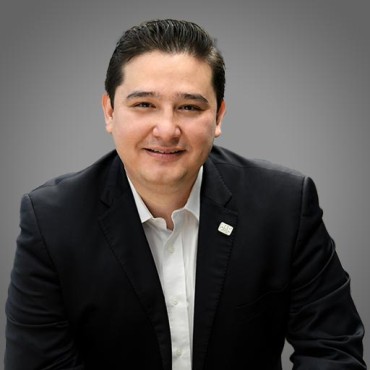
Doctor en Innovación Educativa por el Tecnológico de Monterrey. Director de la Maestría en Emprendimiento Educativo y profesor-investigador en la Escuela de Humanidades y Educación (EHE) del Tecnológico de Monterrey. Sus líneas de investigación son la innovación educativa, así como el desarrollo y uso de tecnología en educación. Enfoca sus actividades de gestión, investigación, docencia y extensión e internacionalización en la promoción de entornos para el aprendizaje que incidan en la transformación social y económica.

Doctor en Administración de Operaciones por el Tecnológico de Monterrey, México. Investigador asociado de la unidad de Tecnología Educativa del Instituto para el Futuro de la Educación del Tecnológico de Monterrey (campus Ciudad de México). Sus intereses son innovación educativa, juegos serios, optimización, logística y cadenas de suministro. Profesor de planta del Departamento de Ingeniería Industrial en Campus Ciudad de México. Creador de la plataforma en línea GOAL Project y diseñador del Simulador Logístico LOST. Ha publicado más de 25 artículos en Revistas y Conferencias Scopus.

Jorge Sanabria obtuvo el doctorado en Ciencias Kansei (Ingeniería Afectiva) en el Centro de Investigación Avanzada en Neurociencias, Comportamiento y Kansei de la Universidad de Tsukuba, Japón. Realizó un postdoctorado en la Universidad de Guadalajara donde desarrolló el Método de Inmersión Gradual, dirigido a potenciar la cognición creativa. Es miembro del Sistema Nacional de Investigadores (SNI) nivel 1, cuyo interés enfoca en temas de cognición creativa y desarrollo de competencias del siglo XXI. Actualmente es miembro del claustro docente del Doctorado en Innovación Educativa y Profesor-investigador Asistente en Diseño, tiempo completo, en la Escuela de Arquitectura, Arte y Diseño (EAAD), ambos en el Tecnológico de Monterrey, Campus Guadalajara.

Doctorado en Informática del Tecnológico de Monterrey (1998). Es Profesor Titular en la Escuela de Ingeniería y Ciencias, Líder del Grupo de Enfoque en Sistemas inteligentes y hasta recientemente, Director del Posgrado en Ciencias Computacionales. El Dr. Terashima-Marín es Miembro activo del Sistemas Nacional de Investigadores, Academia Mexicana de Ciencias, Academia Mexicana de Computación, y Miembro Senior de la IEEE. Sus intereses principales son inteligencia computacional, y la aplicación de inteligencia artificial y aprendizaje automático. Ha sido investigador principal en varios proyectos de investigación y aplicación, y ha publicado más de 110 artículos en revistas y conferencias internacionales.

Investigador miembro del Grupo de Investigación en Innovación de Productos y miembro del Grupo Interdisciplinario de Investigación en Razonamiento para la Complejidad del Tecnológico de Monterrey, en México. Obtuvo el título de Ingeniero Mecatrónico en el Tecnológico Nacional de México, Campus Ciudad-Hidalgo, Michoacán. Sus estudios de posgrado los realizó en el Tecnológico de Monterrey, donde obtuvo una maestría y un doctorado en Ciencias de la Ingeniería con concentración en Sistemas de Manufactura y Diseño de Productos, respectivamente. Durante sus estudios de posgrado, fue becario visitante en el Tecnológico de Costa Rica y en la Universidad de California, Berkeley. Sus intereses de investigación actuales incluyen el diseño de productos, la innovación abierta, el emprendimiento y la innovación educativa. Es coautor de diferentes artículos de investigación, libros y capítulos de libros en los sectores de manufactura y la educación. También tiene una patente concedida en el ámbito del micromecanizado. Es miembro del Sistema Nacional de Investigadores de México.
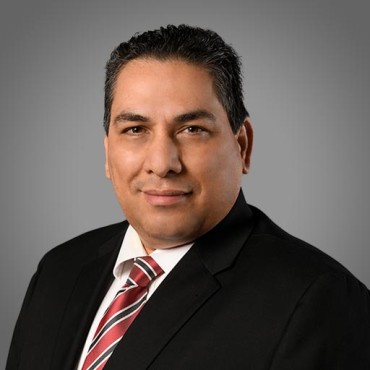
Maestro en Administración de Tecnologías de Información, así como Maestro en Ciencias de Información y Administración del Conocimiento por el Tecnológico de Monterrey (ITESM). Sus líneas de investigación están centradas en el desarrollo de estrategias tecnológicas para la educación, innovación educativa, administración del conocimiento y el movimiento educativo abierto. Es Director Nacional de las Bibliotecas del Tecnológico de Monterrey, miembro de la Cátedra UNESCO: “Movimiento educativo abierto para América Latina”; así como miembro del Consejo del Nodo Regional de Educación Abierta para América Latina - OE LATAM - auspiciado por el Consorcio Global de Educación OEGLOBAL.

Doctor en Inteligencia Artificial por el INSA-LAAS en Toulouse, Francia. Interés en aplicaciones de Machine Learning, Data Management y Visión por Computadora, en las que ha asesorado 11 tesis doctorales y 26 tesis de maestría. Autor de más de 120 artículos en JCR, congresos y capítulos de libro. Se desempeña como profesor-investigador, fue responsable del grupo de Investigación en Sistemas Inteligentes (2007-2015), y director de los Programas de Posgrado en Ciencias de la Computación del Tecnológico de Monterrey (2005-2016), México. El Dr. González Mendoza lidera varios proyectos de investigación de la Comisión Europea y de México (coordinador local), SNI II, es Expresidente de la Sociedad Mexicana de Inteligencia Artificial (2016-2018). Miembro Titular de la Academia Mexicana de Ciencias y Miembro Titular de la Academia Mexicana de Computación, Joven Científico del Foro Económico Mundial.
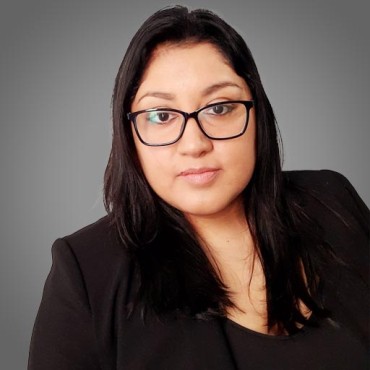
Doctora en tecnología educativa por la facultad de ciencias de la educación en la Université Laval (UL). Investigadora Postdoctoral del grupo de investigación R4C-IRG del Instituto para el Futuro de la Educación (IFE) del Tecnológico de Monterrey. Sus líneas de investigación se enfocan en el aprendizaje a través de juegos digitales, el uso de TICs en la educación formal para el desarrollo de las competencias del siglo XXI, la enseñanza y el aprendizaje de lenguas extranjeras y el uso de tecnologías emergentes en la formación continua.

Doctor en Ciencias de la Educación. Investigador posdoctoral del IRG-R4C del Instituto del Futuro de la Educación del Tecnológico de Monterrey, colabora con el GIEE de Innovación Educativa en la Escuela de Humanidades y Educación, es Líder del Subgrupo Desarrollo y Uso de la Tecnología en la Educación. Asesora proyectos de investigación aplicada (PIA-tesis) en el programa de Maestría en Tecnología Educativa y tesis en el Doctorado en Innovación Educativa.
Es miembro del Sistema Nacional de Investigadores, del Consejo Mexicano de Investigación Educativa (COMIE), de la Sociedad Mexicana de Educación Comparada (SOMEC) y del Grupo de Investigación sobre Tecnologías Emergentes para el Aprendizaje (GITEMA-Cuba). Participa en proyectos de investigación multidisciplinarios en las líneas de: innovación y emprendimiento educativo, alfabetización y competencias digitales para el siglo XXI. Es autor de artículos en revistas de impacto internacional, capítulos de libro y de ponencias en congresos internacionales.

Doctora en Educación por la Universidad Autónoma de Sinaloa, realizó estudios de Maestría en Investigación Educativa y Licenciatura en Ciencias de la Educación por el Instituto Tecnológico de Sonora. Actualmente es investigadora Postdoctoral de la unidad de Tecnología Educativa del Instituto para el Futuro de la Educación del Tecnológico de Monterrey (campus Monterrey). Ha participado en distintos proyectos de investigación relacionados con violencia entre pares en contextos en línea realizando actividades como la validación de escalas de medición y modelos de ecuaciones estructurales. Sus principales líneas de investigación se centran aspectos morales del contexto escolar y familiar, violencia entre pares en contextos en línea y emociones morales.

Posdoctoral de la Unidad de Tecnología Educativa del Institute for the Future of Education. Candidato a Investigador Nacional. Doctor en Genética Humana por la Universidad de Guadalajara, Centro Universitario de Ciencias de la Salud. Licenciado en Química y Farmacobiología por la Universidad de Guadalajara, Centro Universitario de Ciencias Exactas e Ingenierías. Sus líneas de investigación han sido la Genética de las Enfermedades Cardiovasculares, COVID-19, rendimiento deportivo y Cáncer. Actualmente aplica técnicas de Data Science para análisis de bases de datos genómicos y su objetivo es contribuir con estos conocimientos a la generación de herramientas que ayuden a generar y descifrar algoritmos de pensamiento Complejo.

Doctora en Matemática Educativa por el DME del CINVESTAV, IPN. Profesora de Tiempo Completo del Centro Universitario UAEM Valle de Chalco. Sus líneas de investigación: Matemáticas Aplicadas y Educativas, Desarrollo de Sistemas Tutoriales Inteligentes y Formación de Investigadores. Pertenece al Sistema Nacional de Investigadores Nivel 1, Perfil Deseable Prodep (SEP) y es integrante del Cuerpo Académico Consolidado de Cómputo Aplicado (SEP). Asesora en la Maestría y el Doctorado en Ciencias de la Computación, posgrado de excelencia de Conahcyt. Editora asociada de la revista El Cálculo y su Enseñanza y Organizadora de los Encuentros Internacionales sobre la Enseñanza del Cálculo, Ciencias y Matemáticas (EICAL).

Doctora en Ingeniería Química por la escuela Politécnica de Montreal. Posee estudios de maestría y licenciatura en Ingeniería Química por el Instituto Tecnológico de Ciudad Madero. Actualmente es investigadora postdoctoral en el IRG-R4A grupo de investigación interdisciplinar en el Instituto para el Futuro de la Educación (IFE) del Tecnológico de Monterrey (campus Monterrey). Sus líneas de investigación se centran en el pensamiento complejo y sus subcompetencias, así como en la innovación educativa.

Doctor en Psicología con Máster en Neurobiología por la Universidad Nacional Autónoma de México (UNAM). Actualmente es Investigador Posdoctoral en el Institute for the Future of Education del Tecnológico de Monterrey. Miembro actual del Sistema Nacional de Investigadores (CONAHCYT, nivel Candidato) en el área de Ciencias de la Conducta y la Educación. Cuenta con publicaciones científicas sobre cognición, electroencefalografía y trastornos de aprendizaje en la niñez.
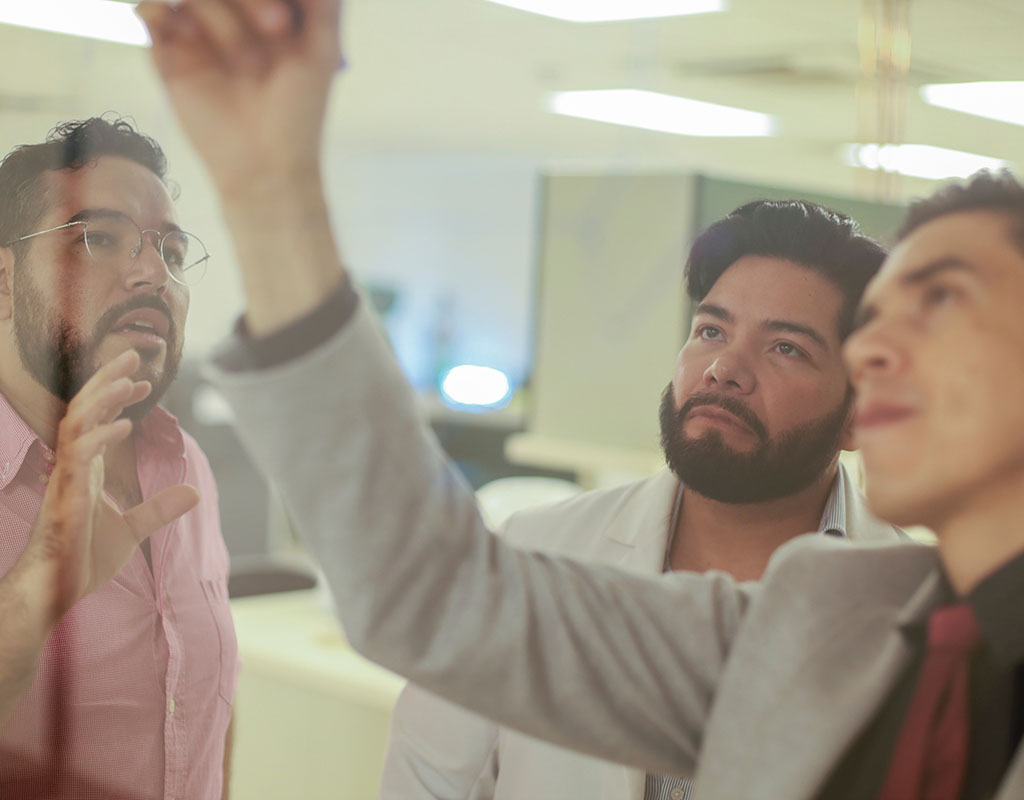
Convocatoria abierta para posiciones de profesores investigadores en el Tecnológico de Monterrey
El Grupo Interdisciplinario de Investigación de Tecnología Educativa del Instituto para el Futuro de la Educación del Tecnológico de Monterrey (México), tiene abierta una convocatoria para posiciones de profesores investigadores en Campus Monterrey.
Los interesados pueden presentar su solicitud en:
Posdoctoral position: Pedagogical and technological approaches that lead to effective learning
Posdoctoral position: Education, Humanities, Statistics, Psychology or similar
Proyectando el pensamiento complejo para todos
El R4C-IRG Grupo de Investigación Interdisciplinar: Escalando el pensamiento complejo para todos presenta sus avances en el 52 Congreso de Investigación y Desarrollo. El evento se lleva a cabo del 01 al 04 de marzo 2022, en Monterrey, Nuevo León, México.
El objetivo es compartir los avances publicaciones y proyectos del R4C-IRG, que engloba las iniciativas de generación y transferencia de conocimiento, el desarrollo de proyectos colaborativos, y el emprendimiento y la transferencia de tecnología, para lograr el objetivo de escalar los niveles de pensamiento complejo en los estudiantes de educación superior.

Ponencia:
Ramírez-Montoya, M.S., Glasserman Morales, L. D., Álvarez-Icaza, I., Sanabria Zepeda, J. C., Miranda Mendoza, J., Terashima-Marín, H.,González Peña, O.I., Morales Menéndez, R., Molina, J.M., González Mendoza, M., Alonso Galicia, P. E., Vázquez Parra, J.C., López Caudana, E.O., Ponce Cruz, P., Burgos Aguilar, J.V., Suárez Brito, P.,Lindín Soriano, C., Hernández Gress, N. (2022). R4C (Research for complexity)-Escalando el razonamiento complejo para todos. In 52 Congreso de Investigación y Desarrollo. Tecnológico de Monterrey. México. Retrieved from: hdl.handle.net/11285/645228
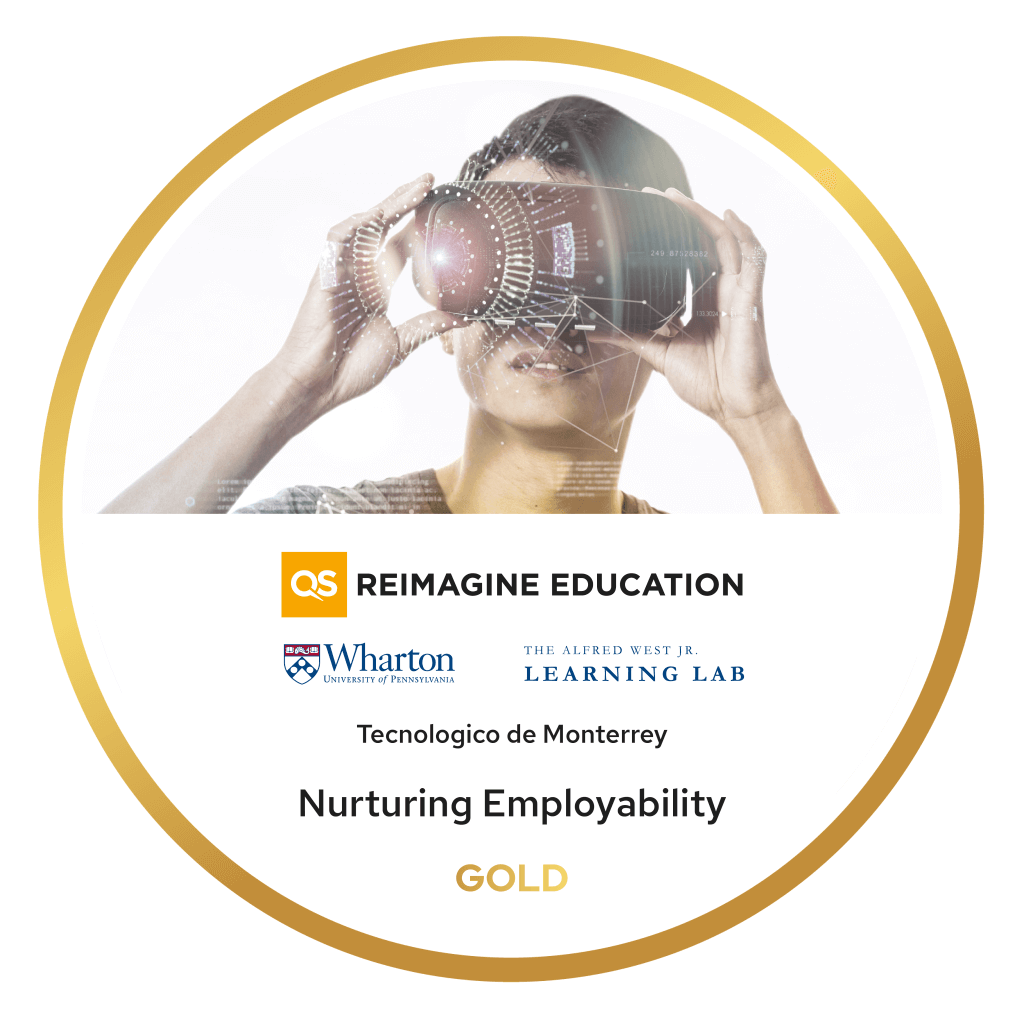
Premio internacional 2021 “QS Reimagine Education Awards”
Otorgado por el QS Quacquarelli Symonds (premio “Nurturing Employability Gold Award” Lista de ganadores), por el proyecto "Education 4.0 Platform to Foster Innovation and Entrepreneurship for All”.
En el evento participaron alrededor de 1,100 proyectos de +100 países, los cuales estuvieron compitiendo en 25 categorías. El criterio de evaluación incluyó, enfoque del proyecto, impacto del proyecto, escalabilidad, innovación y originalidad.
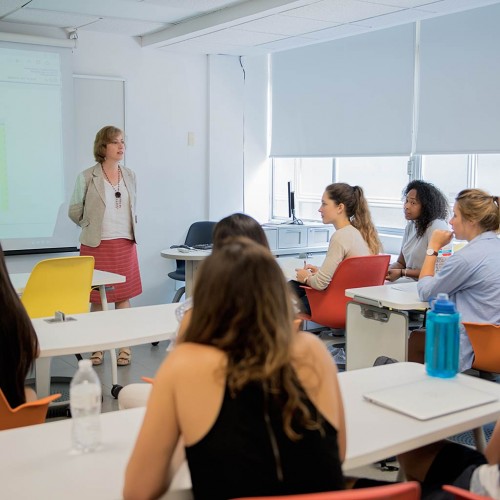
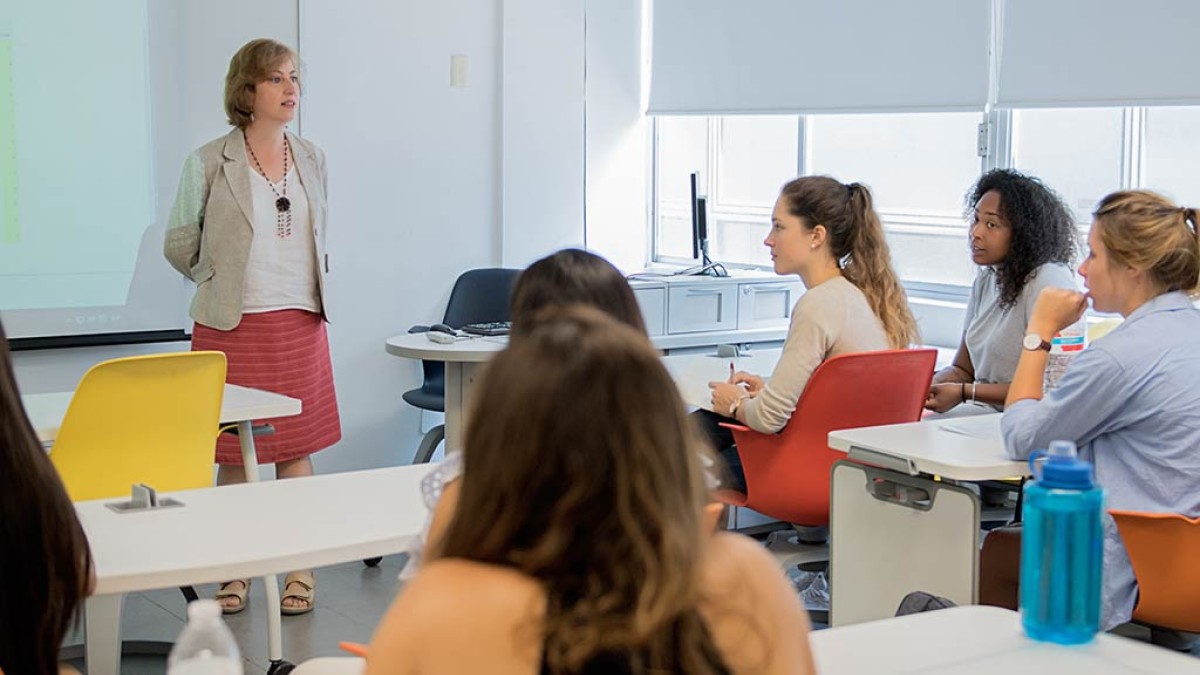
Redes de formación e investigación de la WUN y la UNESCO.
Entidad financiadora: WUN. Fondo: 10,000 libras esterlinas. Periodo: 2021-2022. Responsable técnico: María Soledad Ramírez Montoya. Investigadores del R4C-IRG: José Vladimir Burgos Aguilar, Leonardo David Glasserman Morales, Abel García González e Isolda Margarita Castillo Martínez. Investigadores externos: Joanne Catherine
Weber, Lizbeth Goodman, Constance Blomgren, Mark Pegrum, Glenda Cox y Jako Oliver.


Entidad financiadora: Siemens Stiftung. Fondo: 45,574 euros. Periodo: 2021-2022. Responsable técnico: José Escamilla de los Santos (Tecnológico de Monterrey). Investigadores del R4C-IRG: María Soledad Ramírez-Montoya y José Vladimir Burgos Aguilar. Investigadores del Tecnológico de Monterrey: Genaro Zavala.


Innovación con inteligencia artificial y robótica para escalar niveles de dominio de razonamiento para la complejidad.
Entidad financiadora: Novus. Fondo: 320,000 pesos. Periodo: 2021-2022. Responsable técnico: María Soledad Ramírez Montoya. Investigadores del R4C-IRG: Edgar Omar López Caudana, Jorge Carlos Sanabria Zepeda; Neil Hernández Gress; Leonardo David Glasserman Morales e Isolda Margarita Castillo Martínez. Investigadores del Tecnológico de Monterrey: Gabriela Torres Delgado; Elvira Guadalupe Rincón Flores; Arturo Vargas Olivares; Davis Velarde Camaqui; Israel Ulises Cayetano Jiménez. Investigadores externos: María Rosa García Ruíz; María del Carmen Álvarez Álvarez; Guillermo Rodríguez Abitia; Sandra Martínez Pérez; Antonio Millan Arellano.


Innovación con inteligencia artificial para desarrollar la competencia de emprendimiento social y procesos de vinculación.
Fondo: 320,000 pesos. Novus. Periodo: 2021-2022. Responsable técnico: María Soledad Ramírez Montoya. Investigadores del R4C-IRG: José Carlos Vázquez Parra; Patricia Esther Alonso Galicia, Jhonattan Miranda Mendoza y Abel García González. Investigadores del Tecnológico de Monterrey: Jan Rehak, Arturo Molina Gutiérrez y Omar Olmos López. Investigadores externos: José María Romero Rodríguez; Alicia García Holgado; Francisco García Peñalvo y Laura Icela González.


Analítica visual y machine learning para toma de decisiones en ecosistemas de salud
Entidad financiadora: Agencia Estatal de Investigación en el marco de los Programas Estatales de Generación de Conocimiento y Fortalecimiento Científico y Tecnológico del Sistema de I+D+i y de I+D+i Orientada a los Retos de la Sociedad, del Plan Estatal de Investigación Científica y Técnica y de Innovación 2017-2020. Fondo: 78,166 euros. Periodo: 2021-2025. Responsable técnico: Francisco José García-Peñalvo (Universidad de Salamanca). Investigadora del R4C-IRG: María Soledad Ramírez-Montoya.
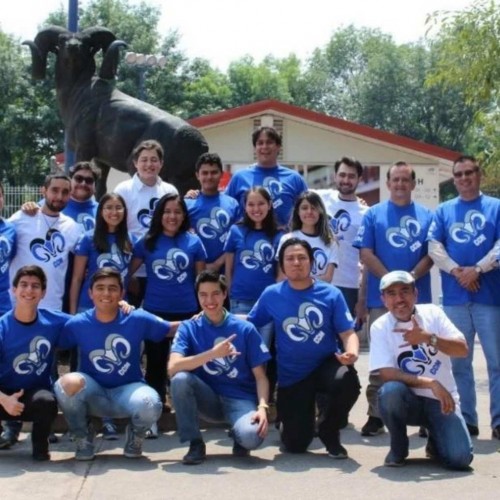
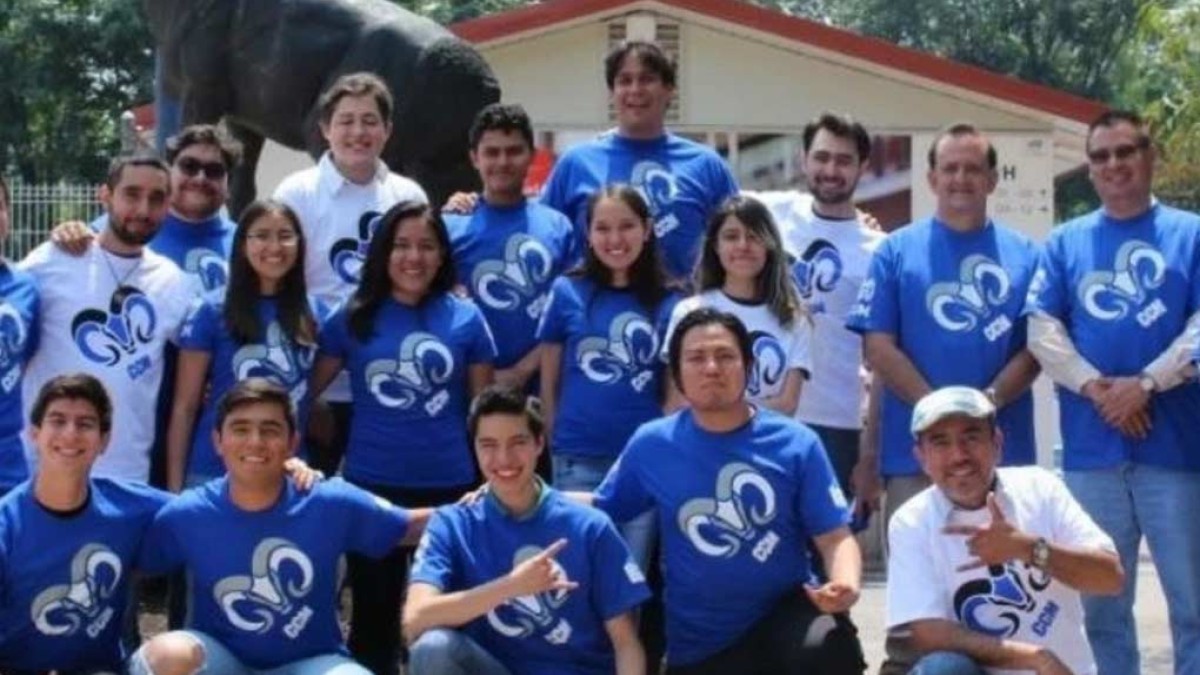
Proyecto Social Robotics Research Team
Entidad financiadora: Novus. Fondo: 200,000 pesos. Periodo: 2018-2022.Responsable técnico: Edgar Omar López Caudana. Investigadores del R4C: María Soledad Ramírez Montoya, Pedro Ponce Cruz. Investigadores del Tecnológico de Monterrey: Omar Mata Juárez, David Balderas, Jesus E. Chong, David Navarro Durán, Raul Crespo, Luis Montesinos. Investigadores externos: Nancy C Mazón Parra; Guillermo Rodríguez Abitia; Sandra Martínez Pérez, Carlos Moreno García.


Collaborative Online International Learning (COIL) Project
Entidad financiadora: Apoyo a nuevas iniciativas de internacionalización del Vicerrectorado de Internacionalización de la Universidad de Granada. Fondo: 180 euros. Periodo: 2021. Responsable técnico: José María Romero (Universidad de Granada). Investigadores R4C: María Soledad Ramírez Montoya y Leonardo David Glasserman Morales.


MERIT: Programa de Movilidad de Bohemia Central para la Excelencia en Investigación, Innovación y Tecnología
Entidad financiadora: Cofinanciación de programas regionales, nacionales e internacionales Acciones Marie Skłodowska-Curie, convocatoria HORIZON-MSCA-COFUND-2021. Fondo total asignado al Centro de Innovación de Bohemia Central (SIC), República Checa: 3.582.000 euros; Fondo del socio asociado asignado al Tecnológico de Monterrey: 56.860 euros. Periodo: 2022-2027. Responsable técnico: Martina Vycudilíková Outlá (SIC). Investigador principal del R4C-IRG: Jorge Carlos Sanabria Zepeda. Investigadores del R4C-IRG: María Soledad Ramírez Montoya, Rubén Morales Menéndez, Edgar Omar López Caudana, Miguel González Mendoza, Omar Israel González Peña, José Carlos Vázquez Parra, Inés Álvarez Icaza Longoria, Patricia Esther Alonso Galicia, José Vladimir Burgos Aguilar, José Martín Molina Espinosa.
Convocatorias abiertas:
- Frontier in Education (Q2). Special Issue “Artificial intelligence (AI) in the complexity of the present and future of education: research and applications”.
https://www.frontiersin.org/research-topics/60814/artificial-intelligence-ai-in-the-complexity-of-the-present-and-future-of-education-research-and-applications
Convocatorias cerradas:
- Convocatoria abierta para Bootcamp "Construyendo juntos el futuro de la educación: innovación, investigación interdisciplinaria y ciencia abierta". Límite: 5 de mayo 2024.
https://www.research4challenges.world/future-education-bootcamp - Measuring the impact on the teaching/learning process derived from the introduction and experimentation with remote laboratories in higher education
https://ifelldh.tec.mx/en/virtual-labs-experimentation-call - Creating innovative pedagogical materials for the development and deployment of virtual labs for multidisciplinary higher education courses in hybrid learning environments
https://ifelldh.tec.mx/en/virtual-labs-development-call - Frontier in Education (Q2). Special Issue “Building the Future of Education Together: Innovation, Complexity, Sustainability, Interdisciplinary Research and Open Science ”. Límite: 15 de febrero 2024.
https://www.frontiersin.org/research-topics/59267/building-the-future-of-education-together-innovation-complexity-sustainability-interdisciplinary-research-and-open-science - Education Research International. Special Issue “Competencies for Complex Reasoning in the Framework of Education 4.0 and Open Science”. Límite: de 22 julio 2022.
https://www.hindawi.com/journals/edri/si/672472/ - Sustainability (Q2). Special Issue "Education 4.0: Mobilizing for Sustainable Development". Límite: 31 de octubre 2021.
https://www.mdpi.com/journal/sustainability/special_issues/edu_mobiliz_sus - Future internet (Q2). Special Issue "Education 4.0 in the Transformation of Universities: Educational and Research Applications". Límite: 30 de noviembre 2021.
https://www.mdpi.com/journal/futureinternet/special_issues/Education_4_TUERA - Frontier in Education (Q3). Special Issue “Open Education for Sustainable Development: Contributions from Emerging Technologies and Educational Innovation”. Límite: 31 diciembre 2021.
https://www.frontiersin.org/research-topics/21472/open-education-for-sustainable-development-contributions-from-emerging-technologies-and-educational - RIED (WoS). Revista gratuita que acepta en español, inglés y portugués. Special Issue “Transformación digital y educación 4.0 según recomendaciones UNESCO: oportunidades para ambientes blended y a distancia”.
https://blogderied.blogspot.com/2021/04/call-for-papers-monografico-ried.html “Digital Transformation and Education 4.0 Following UNESCO Recommendations: Opportunities for Blended and Distance Environments”.
https://blogderied.blogspot.com/2021/04/digital-transformation-and-education-40.html Límite: 30 de noviembre 2021.
- R4C Pensamiento complejo
-
Baena-Rojas, J. J., Ramírez-Montoya,M.S., Mazo-Cuervo, D.M. & López-Caudana, E. O. (2022). Traits of Complex Thinking: A Bibliometric Review of a Disruptive Construct in Education. Journal of Intelligence 10(37). https://doi.org/10.3390/jintelligence10030037 Retrieved from: https://hdl.handle.net/11285/648509
Cruz-Sandoval, M., Vázquez-Parra, J.C. & Alonso-Galicia, P. (2022). Student Perception of Competencies and Skills for Social Entrepreneurship in Complex Environments: An Approach with Mexican University Students. Social Sciences, 11(7), Art.314. https://doi.org/10.3390/socsci11070314 Retrieved from: https://repositorio.tec.mx/handle/11285/648721
Cruz-Sandoval, M., Vázquez-Parra, J.C. & Carlos-Arroyo, M. (2023). Complex Thinking and Social Entrepreneurship. An approach from the methodology of compositional data analysis. Heliyon. https://doi.org/10.1016/j.heliyon.2023.e13415 Retrieved from: https://hdl.handle.net/11285/650173
George-Reyes, C. E., Ramírez-Montoya, M. S., & López-Caudana, E. O. (2023). Imbrication of the Metaverse in the complexity of education 4.0: Approach from an analysis of the literatura [Imbricación del Metaverso en la complejidad de la educación 4.0: Aproximación desde un análisis de la literatura]. Pixel-Bit. Revista de Medios y Educación (66), 199–237. https://doi.org/10.12795/pixelbit.97337 Retrieved from: https://hdl.handle.net/11285/650030 y https://hdl.handle.net/11285/650031
George-Reyes, C., López-Caudana, E.O., Ramírez-Montoya, M.S. y Ruiz-Ramírez, J. (2023). Pensamiento computacional basado en realidad virtual y razonamiento complejo: caso de estudio secuencial. RED. Revista de Educación a Distancia, 23(73). http://dx.doi.org/10.6018/red.540841 Retrieved from: https://hdl.handle.net/11285/650112
Miranda, J., Molina, A., Ramírez Montoya, M.S., López Caudana, E.O. & Escalera, J. (2022). Collaborative Networks and Sustainability in Education 4.0: An Approach to Achieve Complex Thinking Competencies in Higher Education. Collaborative Networks in Digitalization and Society 5.0. Springer Nature. Retrieved from: https://hdl.handle.net/11285/649752
Pacheco-Velázquez, E.A, Vázquez-Parra, J.C., Cruz-Sandoval, M., Salinas-Navarro, D.E. & Carlos-Arroyo, M. (2023). Business Decision-Making and Complex Thinking: A Bibliometric Study. Administrative Sciences 13(3), 80. https://doi.org/10.3390/admsci13030080 Retrieved from: https://hdl.handle.net/11285/650303
Patiño, A., Ramírez-Montoya, M.S. & Buenestado-Fernández, M. (2023). Active learning and education 4.0 for complex thinking training: analysis of two case studies in open education. Smart Learning Environments 10(8). https://doi.org/10.1186/s40561-023-00229-x Retrieved from: https://hdl.handle.net/11285/650100
Ponce, P., Ramirez, R., Ramirez-Montoya, M.S., Molina, A., MacCleery, B. & Ascanio, M. (2022). From understanding a simple DC motor to developing an electric vehicle AI controller rapid prototype using MATLAB-Simulink, real-time simulation and complex thinking. Frontiers in Education 7, 941972. doi: 10.3389/feduc.2022.941972 Retrieved from: https://hdl.handle.net/11285/649925
Ramírez-Montoya, M. S., Álvarez-Icaza, I., Sanabria-Zepeda, J.C., López-Caudana, E.O. Alonso, P. E. & Miranda, J. (2021). Scaling Complex Thinking for Everyone through Open Science: A Conceptual and Methodological Framework. In Proceedings of the 9th International Conference on Technological Ecosystems for Enhancing Multiculturality (TEEM 2021). University of Barcelona. Retrieved from: https://hdl.handle.net/11285/638023
Ramírez-Montoya, M. S., Castillo-Martínez, I.M., Sanabria-Zepeda, J.C., & Miranda, J. (2022). Complex Thinking in the Framework of Education 4.0 and Open Innovation—A Systematic Literature Review. Journal of Open Innovation: Technology, Market, and Complexity 8(4).https://doi.org/10.3390/joitmc8010004 Retrieved from: https://repositorio.tec.mx/handle/11285/643380
Ramírez-Montoya, M. S., McGreal, R., y Obiageli Agbu, J.F. (2022). Horizontes digitales complejos en el futuro de la educación 4.0: luces desde las recomendaciones de UNESCO [Complex Digital Horizons in the Future of Education 4.0: Insights from UNESCO Recommendations]. RIED-Revista Iberoamericana de Educación a Distancia, 25(2). https://doi.org/10.5944/ried.25.2.33843 Retrieved from: https://repositorio.tec.mx/handle/11285/648468 https://repositorio.tec.mx/handle/11285/648469
Rodríguez-Abitia, G., Ramírez-Montoya, M. S., Martínez-Pérez, S. & López-Caudana, E.O. (2022). Cultural differences in complexity reasoning in higher education. In Proceedings of the 10th International Conference on Technological Ecosystems for Enhancing Multiculturality (TEEM 2022). Salamanca University. Spain. https://hdl.handle.net/11285/649751
Romero-Rodríguez, J. M., Ramirez-Montoya, M.S., Glasserman-Morales, L.D. & Ramos Navas-Parejo, M. (2022). Collaborative online international learning between Spain and Mexico: a microlearning experience to enhance creativity in complexity. Education + Training. https://doi.org/10.1108/ET-07-2022-0259 Retrieved from: https://hdl.handle.net/11285/649994
Sanabria-Z, J. C., Molina Espinosa, J. M., Alfaro Ponce, B., & Vycudilíková-Outlá, M. (2022). Umbral para proyectos de ciencia ciudadana: el pensamiento complejo como impulsor de desarrollo holístico [A Threshold for Citizen Science Projects: Complex Thinking as a Driver of Holistic Development]. RIED-Revista Iberoamericana De Educación a Distancia, 25(2), 113–131. https://doi.org/10.5944/ried.25.2.33052 Retrieved from: https://hdl.handle.net/11285/648713
Sanabria-Z, J.; Alfaro-Ponce, B.; González Peña, O.I.; Terashima-Marín, H.; & Ortiz-Bayliss, J.C. (2022). Engagement and Social Impact in Tech-Based Citizen Science Initiatives for Achieving the SDGs: A Systematic Literature Review with a Perspective on Complex Thinking. Sustainability, 14, 10978. https://doi.org/%2010.3390/su141710978 Retrieved from: https://repositorio.tec.mx/handle/11285/648805
Suárez-Brito, P., López-Caudana, E.O., Baena-Rojas, J.J., & Ramírez-Montoya, M.S. (2022). Eliciting Complex Thinking through Open Educational Resource Projects. Journal of Social Studies Education Research, 13(4), 56-77. https://jsser.org/index.php/jsser/article/view/4472 Retrieved from: https://hdl.handle.net/11285/650033
Suárez-Brito, P.; Baena-Rojas, J.; López-Caudana, E.; Glasserman-Morales, L. (2022). Academic literacy as a component of complex thinking in higher education: A scoping review. European Journal of Contemporary Education 11(3), 931-945. DOI: 10.13187/ejced.2022.3.931 Retrieved from: https://hdl.handle.net/11285/649750
Vázquez-Parra, J.C., Cruz-Sandoval, M. & Carlos-Arroyo, M. (2022). Social Entrepreneurship and Complex Thinking: A Bibliometric Study. Sustainability 14(20). https://doi.org/10.3390/su142013187 Retrieved from: https://hdl.handle.net/11285/649765
Vázquez-Parra, J.C.; Castillo-Martínez, I.M.; Ramírez-Montoya, M.S.; Millán, A. (2022). Development of the perception of achievement of complex thinking: A disciplinary approach in a Latin American student population. Education Sciences 12, Art. 289 https://doi.org/10.3390/educsci12050289 https://hdl.handle.net/11285/648187
Vázquez-Parra, J.C., Carlos-Arroyo, M. & Cruz-Sandoval, M. (2023) Social entrepreneurship and complex thinking. Validation of methodology for the scaling of the perception of competence achievement. Ed.Sc. 13(2). https://doi.org/10.3390/educsci13020186 Retrieved from: https://hdl.handle.net/11285/650172
- Artículos
-
Abreu-Pederzini, J. R., Martínez-Mascorro, G. A., Ortiz-Bayliss, J. C., Terashima-Marín, H. (2021) Exploring the Knowledge Embedded in Class Visualizations and their Application in Dataset and Extreme Model Compression, Applied Sciences, Volume 11, Issue 20 10.3390/app11209375
Álvarez-Icaza, I., Bustamante-Bello, R., Ramírez-Montoya, M.S., Molina, A. (2022). Systematic Mapping of Digital Gap and Gender, Age, Ethnicity, or Disability. Sustainability 14, 1297. https://doi.org/10.3390/su14031297
Arredondo-Trapero, F.G., Vázquez-Parra, J.C. and González-Arredondo, A.S. (2021). Organizational citizenship behavior and job flexibility in Family-Responsible Companies: a study from the perspective of employee family situation. International Journal of Social Economics, Vol. ahead-of-print No. ahead-of-print.
https://doi.org/10.1108/IJSE-05-2021-0270Azofeifa, J. D., Noguez, J., Ruiz, S., Molina-Espinosa, J. M., Magana, A. J., Benes, B. (2022). Systematic Review of Multimodal Human–Computer Interaction. Informatics 9, no. 1: 13. https://doi.org/10.3390/informatics9010014
Brena, R. F., Zuvirie, E., Preciado, A., Valdiviezo, A., Gonzalez-Mendoza, M., Zozaya-Gorostiza, C. (2021/9). Automated evaluation of foreign language speaking performance with machine learning. International Journal on Interactive Design and Manufacturing (IJIDeM), 15, 317-331.
Cruz-Duarte J. M., Amaya, I., Ortiz-Bayliss, J. C., Conant-Pablos, S. E., Terashima-Marín, H. (2021) Hyper-heuristics to Customise Metaheuristics for Continous Optimization, Swarm and Evolutionary Computation, Volume 66 10.1016/j.swevo.2021.100936
De la Rosa-Rivera, F., Nunez-Varela, J. I., Ortiz-Bayliss, J. C., Terashima-Marín, H. (2021) Algorithms Selection for Solving Educational Timetabling Problems, Expert Systems with Applications, Volume 174 10.1016/j.eswa.2021.114695
Dieck-Assad, G., Ávila-Ortega, A., González Peña, O. I. (2021). Comparing Competency Assessment in Electronics Engineering Education with and without Industry Training Partner by Challenge-Based Learning Oriented to Sustainable Development Goals. Sustainability, 13(19), 10721.
https://doi.org/10.3390/su131910722Dieck-Assad, G., González Peña, O. I., Rodríguez-Delgado, J. M. (2021). Evaluation of Emergency First Response’s Competency in Undergraduate College Students: Enhancing Sustainable Medical Education in the Community for Work Occupational Safety. International Journal of Environmental Research and Public Health, 18(15), 7814.
Dieck-Assad, G., Rodríguez-Delgado, J. M., González Peña, O. I. (2021). Excel Methods to Design and Validate in Microelectronics (Complementary Metal–Oxide–Semiconductor, CMOS) for Biomedical Instrumentation Application. Sensors, 21(22), 7486.
Dieck-Assad, G., Rodríguez-Delgado, J.M., & González Peña, O. I. (2021). Learning on Excel Methods to Perform Complementary Metal–Oxide–Semiconductor (CMOS) Microelectronics Conceptual Design and Validation of Biomedical Instrumentation Applications.
Farias-Gaytan, S., Aguaded, I., Ramirez-Montoya, M.S. (2021). Transformation and digital literacy: Systematic literature mapping. Education and Information Technologies. https://doi.org/10.1007/s10639-021-10624-x.
https://hdl.handle.net/11285/637468Forte-Celaya, J., Ibarra, L., Glasserman-Morales, L.D. (2021). Analysis of Creative Thinking Skills Development under Active Learning Strategies. Education Sciences, 11(10), 621. https://doi.org/10.3390/educsci11100622
González Peña, O. I., López Zavala, M. Á., Cabral Ruelas, H. (2021). Pharmaceuticals Market, Consumption Trends and Disease Incidence Are Not Driving the Pharmaceutical Research on Water and Wastewater. International Journal of Environmental Research and Public Health, 18(5), 2532.
https://doi.org/10.3390/ijerph18052533Guerra-Leal, E., Arredondo-Trapero, F. & Vázquez-Parra, J.C. (2021). Financial inclusion and digital banking on an emergent economy. Review of Behavioral Finance. (In Press)
Gutiérrez-Martínez, Y., Bustamante-Bello, R., Navarro-Tuch, S.A., López-Aguilar, A.A., Molina, A., Álvarez-Icaza Longoria, I. (2021) A Challenge-Based Learning Experience in Industrial Engineering in the Framework of Education 4.0.Sustainability (Switzerland),13, 9867.
Lopez-Caudana, E., Lopez-Orozco, C. F., Bárbara, C. M., Reyes, G. E. B., Ponce, P., & Chong-Quero, J. E. (2021). Physical therapy using robotics: A project-based learning experience for undergraduate students. Australasian Journal of Educational Technology, 37(5), 32-42.
López-Guajardo, E. A., Delgado-Licona, F., Álvarez, A.J., Nigam, K. D. P., Montesinos-Castellanos, A., Morales-Menendez, R. Process intensification 4.0: A new approach for attaining new, sustainable and circular processes enabled by machine learning, Chemical Engineering and Processing - Process Intensification, 2021, 108671, ISSN 0255-2701, https://doi.org/10.1016/j.cep.2021.108671.
Miranda, J., Navarrete, C., Noguez, J., Molina-Espinosa, J. M., Ramírez-Montoya, M. S., Navarro-Tuch, S. A & Molina, A. (2021). The core components of education 4.0 in higher education: Three case studies in engineering education. Computers & Electrical Engineering, 93, 107278.
Montes-Martínez, R., Ramírez-Montoya, M. S. (2021). Systematic Mapping: Educational and Social Entrepreneurship Innovations (2015-2020). Education + Training. Vol. ahead-of-print No. ahead-of-print. https://doi.org/10.1108/ET-04-2021-0133
Olivas, F., Amaya, I., Ortiz-Bayliss, J. C.,Conant-Pablos, S. E., Terashima-Marín, H. (2021) Enhancing Hyperheuristics for the Knapsack Problem through Fuzzy Logics, Computational Intelligence and Neuroscience, Volume 2021 10.1155/2021/8834325
Peña, O. I. G., Contreras-Saenz, M., Camacho-Leon, S., Rodríguez-Delgado, J. M., Gaviria-Pastore, G., Gordillo, J. L. (2021). Fabrication of an Active PCB-MEMS Microfluidic Chip for CHO Cells Characterization by Electrochemical Impedance Spectroscopy. Journal of The Electrochemical Society.
https://doi.org/10.1149/1945-7111/ac0603Ponce, P., López-Orozco, C. F., Reyes, G. E. B., Lopez-Caudana, E., Parra, N. M., & Molina, A. (2022). Use of Robotic Platforms as a Tool to Support STEM and Physical Education in Developed Countries: A Descriptive Analysis. Sensors, 22(3), 1037.
Ramírez-Montoya, M. S. (2021). Obsolescencia del conocimiento vs formación para el desarrollo sostenible: voces de protagonistas en el marco de la COVID 19. Texto Livre: Linguagem E Tecnologia, 14(2), Art. e33840. 10.35699/1983-3652.2021.33840
Ramírez-Montoya, M.S., Andrade-Vargas, L., Rivera-Rogel, D., Portuguez-Castro, M. (2021). Trends for the Future of Education Programs for Professional Development. Sustainability 13(13), Art 7244. https://doi.org/10.3390/su13137244
Ramírez-Montoya, M.S., González-Padrón, J.G. (2021). Arquitectura de horizontes en emprendimiento social: innovación con tecnologías emergentes. Texto Livre: Linguagem E Tecnologia, 15(2), Art. e25716.10.35699/1983-3652.2022.25716
Ramirez-Montoya, M.S., Martínez-Pérez, S., Rodríguez-Abitia, G., Lopez-Caudana, E.(2022). Digital accreditations in MOOC-based training on sustainability: Factors that influence terminal efficiency. Australasian Journal of Educational Technology, 38(2), 164-183
Reyes, G.E.B., López, E., Ponce, P., Mazón, N. (2021). Role Assignment Analysis of an Assistive Robotic Platform in a High School Mathematics Class, Through a Gamification and Usability Evaluation. International Journal of Social Robotics, 13(5), pp. 1063–1079
Rodríguez-Abitia, G., Ramírez-Montoya, M.S., López-Caudana, E.O., Romero-Rodríguez, J.M. (2021). Factores Para El Desarrollo Del Pensamiento Computacional En Estudiantes De Pregrado. Campus Virtuales, 10(2), 153- 164.
Ruiz-Ramírez, J.A., Glasserman, L.D. (2021). Características del aseguramiento de la calidad educativa. Revista Complutense de Educación, 23(3), 337-348.
https://doi.org/10.5209/rced.70183Ruiz-Ramírez, J.A., Olarte-Arias, Y.A., Glasserman-Morales, L. D. (2021). Educational Processes for Health and Disease Self-Management in Public Health: A Systematic Review. International Journal of Environmental Research and Public Health, 18(12). https://doi.org/10.3390/ijerph18126449
Sánchez-Díaz, X., Ortiz-Bayliss, J. C., Amaya, I., Cruz-Duarte J. M., Conant-Pablos, S. E., Terashima-Marín (2021) H. A Feature-Independent Hyper-heuristic Approach or Solving the Knapsack Problem, Applied Sciences, Volume 11, Issue 21. 10.3390/app112110210
Sarango, P., Mena, J. J., Ramírez-Montoya, M.S. (2021). Evidence-based educational innovation model in the framework of Education 4.0: promoting digital information competencies for teachers. Sustainability 13(18), 10034. https://doi.org/10.3390/su131810034. https://hdl.handle.net/11285/638405
Torres-Arcadia, C., Nava-Lara, S., Rodríguez-Uribe, C., Glasserman-Morales, L. D. (2021). What we know about successful principals in Mexico. Journal of Educational Administration. https://doi.org/10.1108/JEA-04-2021-0101
Valdivia-Vázquez, J. V., Ramirez-Montoya, M. S., & Valenzuela González, J. V. (2021). Psychometric assessment of a tool to evaluate motivation and knowledge of an energy-related topic MOOC. Educational Media International, 58(3), 280-295. https://doi.org/10.1080/09523987.2021.1976827
Vázquez-Parra, J. C., García-González, A., Ramírez-Montoya, M. S. (2021). Ethical Education and its Impact on the Perceived Development of Social Entrepreneurship Competency. Higher Education, Skills and Work-Based Learning. https://hdl.handle.net/11285/637500
- Proceedings
-
Alvarez-Icaza Longoria I., Molina A., Bustamante-Bello R. (2021) Smart and Connected Systems for the Non-typical User: Design Methodology to Observe the Outliers. In: Shin C.S., Di Bucchianico G., Fukuda S., Ghim YG., Montagna G., Carvalho C. (eds) Advances in Industrial Design. AHFE 2021. Lecture Notes in Networks and Systems, vol 260. Springer, Cham. https://doi.org/10.1007/978-3-030-80829-7_32
Bello, G. A., Hurtado, C. R. R., López, J. S. R., Montesinos, L., López-Caudana, E. (2021, November). A wearable, cloud-based system to enable Alzheimer's disease analysis, diagnosis, and progression monitoring. In 2021 IEEE URUCON (pp. 566-570). IEEE.
Escobar, C. A., Chakraborty, D., Arinez, J., Morales-Menendez, R. (2021). Augmentation of Body-in-White Dimensional Quality Systems through Artificial Intelligence. In IEEE International Conference on Big Data (Big Data), 2021, pp. 1611-1618, doi: 10.1109/BigData52589.2021.9671610.
García-González, A. & Ramírez-Montoya, M. S. (2021). Formación en emprendimiento social como competencia transversal en la universidad: análisis en el marco del aprendizaje experiencial. XVI Congreso Nacional de Investigación Educativa. Consejo Mexicano de Investigación Educativa A. C., Puebla, México. Retrieved from:
https://repositorio.tec.mx/handle/11285/637501García-González, A., Ramírez-Montoya, M. S.. (2019). Educación en emprendimiento social desde una mirada transdisciplinar. 7° Congreso Internacional de Innovación Educativa (CIIE 2020). https://hdl.handle.net/11285/636942
George-Reyes, C.E., Rocha-Estrada, F.J., Glasserman-Morales, L.D. (2021, octubre). Interweaving Digital Literacy with Computational Thinking. 9th International Conference on Technological Ecosystems for Enhancing Multiculturality, TEEM 2021. Barcelona, España: ACM International Conference Proceedings Series.
Glasserman-Morales, L.D. y Portugez-Castro, M. (2021, octubre). Analysis of teaching work culture oriented to the development of entrepreneurship skills. 9th International Conference on Technological Ecosystems for Enhancing Multiculturality, TEEM 2021. Barcelona, España: ACM International Conference Proceedings Series.
Guillén-Yparrea, N., Ramírez-Montoya, M. S. (2021). Intercultural Competencies Development for Professional Collaboration: a Systematic Literature Mapping from 2015 to 2020. In Proceedings of the 9th International Conference on Technological Ecosystems for Enhancing Multiculturality (TEEM 2021). University of Barcelona. Spain. https://hdl.handle.net/11285/639058
Honorato-Errázuriz, J., Ramírez-Montoya, M. S. (2021). Randomized Evaluation of Reading Skills: an Opportunity for Systematic Literature Review. In Proceedings of the 9th International Conference on Technological Ecosystems for Enhancing Multiculturality (TEEM 2021). University of Barcelona. Spain.
https://hdl.handle.net/11285/639057López-Caudana, E.O., Rodríguez-Abitia, G., Martínez-Pérez, S., Antón-Ares, P., Ramírez-Montoya, M. S. (2021). Scenarios of the use of robotics as a support tool for teaching: challenges, learning and experiences in Mexico. In Proceedings of the 9th International Conference on Technological Ecosystems for Enhancing Multiculturality (TEEM 2021). University of Barcelona. Spain. https://hdl.handle.net/11285/639038
López-Esquivel, A. A., Gonzalez-Mendoza, M., Chang, L., Marin-Hernandez, A. (2021). Real Time Distraction Detection by Facial Attributes Recognition. En Mexican International Conference on Artificial Intelligence(265-276). Mexico: Springer, Cham.
Minga-Vallejo, R. E., Ramírez-Montoya, M. S. & Rodríguez-Conde, M. J. (2021). Methods for the evaluation of social learning (2017-2021): systematic literature review. In Proceedings of the 9th International Conference on Technological Ecosystems for Enhancing Multiculturality (TEEM 2021). University of Barcelona. Spain.
https://hdl.handle.net/11285/639059Molina, A., Villegas, B., Ochoa, C. P., Miranda, J. (2022). Academic Continuity During the Covid-19 Global Health Emergency: Education 4.0 and the Flexible-Digital Model of Tecnologico de Monterrey University in Mexico Supporting Secondary Education. In University and School Collaborations during a Pandemic (pp. 149-163). Springer, Cham.
Pérez-Guerrero, C., Palacios, A., Ochoa-Ruiz, G., Mata, C., Gonzalez-Mendoza, M., Falcón-Morales, L. E. (2021). Comparing Machine Learning Based Segmentation Models on Jet Fire Radiation Zones. In Mexican International Conference on Artificial Intelligence(161-172). Mexico: Springer, Cham.
Ramírez-Montoya, M. S., Tenorio-Sepúlveda, G.C. (2021). Expert validation of e-Open for assessing open education competencies: An instrument designed within the framework of UNESCO recommendations. In Proceedings of the 9th International Conference on Technological Ecosystems for Enhancing Multiculturality (TEEM 2021). University of Barcelona. Spain. https://repositorio.tec.mx/handle/11285/638967
Ramírez-Sánchez, J. E., Anguiano-Rodríguez, A., González-Mendoza, M. (2021). Real-Time Mexican Sign Language Interpretation Using CNN and HMM. In Mexican International Conference on Artificial Intelligence(55-68). Mexico: Springer, Cham.
Riofrío-Calderón, G., Ramírez-Montoya, M. S., Rodríguez-Conde, M. J. (2021). Data analytics to predict dropout in a MOOC course on energy sustainability. In Proceedings of the 9th International Conference on Technological Ecosystems for Enhancing Multiculturality (TEEM 2021). University of Barcelona. Spain.
https://hdl.handle.net/11285/639060Sainz-Tinajero, B. M., Otero-Argote, D., Orozco-Mora, E., Gonzalez-Mendoza, M. (2021). Facing a Pandemic: A COVID-19 Time Series Analysis of Vaccine Impact. In Mexican International Conference on Artificial Intelligence(303-314). Mexico: Springer, Cham.
Stracke, C. M., Bozkurt, A., Burgos, D., Mason, J., Ossiannilsson, E., Sharma, R. C., Wan, M., Agbu, J.-F., Cangialosi, K., Conole, G., Cox, G., Nascimbeni, F., Nerantzi, C., Ramírez Montoya, M. S., Sgouropoulou, C., Shon, J. G., Boulet, P., Inamorato dos Santos, A., Downes, S., Farrow, R., Proudman, V., Varoglu, Z., Weller, M., Xiao, J., Santos-Hermosa, G., Karakaya, Ö., Truong, V., Swiatek, C. (2021a). Global study on Open Education and Open Science: Practices, use cases and potentials during the COVID-19 pandemic and beyond. Open Education Global Conference 2021 (OE Global 2021, online). Université de Nantes, France.
https://doi.org/10.5281/zenodo.5546183Stracke, C. M., Bozkurt, A., Conole, G., Nascimbeni, F., Ossiannilsson, E., Sharma, R. C., Burgos, D., Cangialosi, K., Cox, G., Mason, J., Nerantzi, C., Agbu, J.-F., Ramírez Montoya, M. S., Santos-Hermosa, G., Sgouropoulou, C., Shon, J. G. (2020). Open Education and Open Science for our Global Society during and after the COVID-19 Outbreak. In Proceedings of the Open Education Global Conference 2020 (s.p., 4 p.). https://doi.org/10.5281/zenodo.4275670
Stracke, C. M., Sharma, R. C., Swiatek, C., Burgos, D., Bozkurt, A., Karakaya, Ö., A. Inamorato dos Santos, A., Mason, J., Nerantzi, C., Obiageli Agbu, J. F., Ossiannilsson, E., Ramírez Montoya, M. S., Santos-Hermosa, G., Shon, J. G., Wan, M., Conole, G., Farrow, R. (2021b). How Covid-19 has an impact on formal education: A collective international evaluation of open education in distance learning. In Proceedings of 14th annual International Conference of Education, Research and Innovation (ICERI2021) (pp. 4270-4275). 8th - 9th of November, 2021, Virtual, Spain. http://dx.doi.org/10.21125/iceri.2021.0992
Suarez-Ramirez, C. D., Duran-Vega, M. A., Sanchez-C, H. M., Gonzalez-Mendoza, M., Chang, L., Marshall, J. M. (2021). Deep Learning Architectures Applied to Mosquito Count Regressions in US Datasets. In Mexican International Conference on Artificial Intelligence(99-212). Mexico: Springer, Cham.



